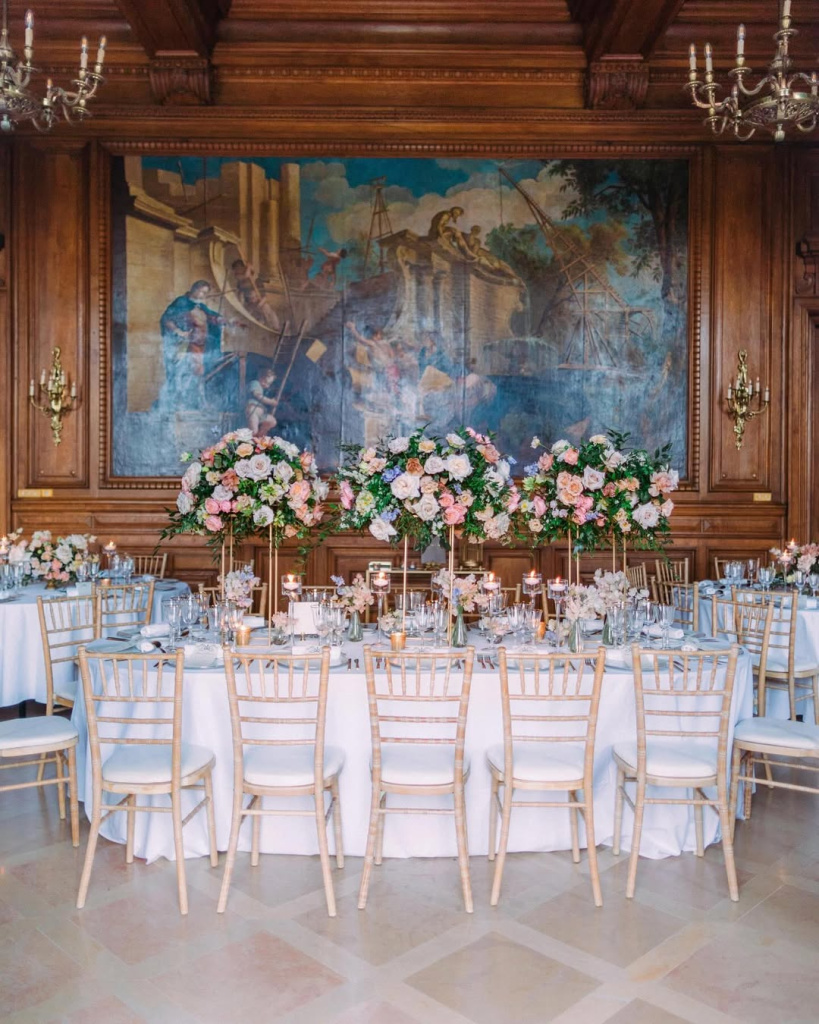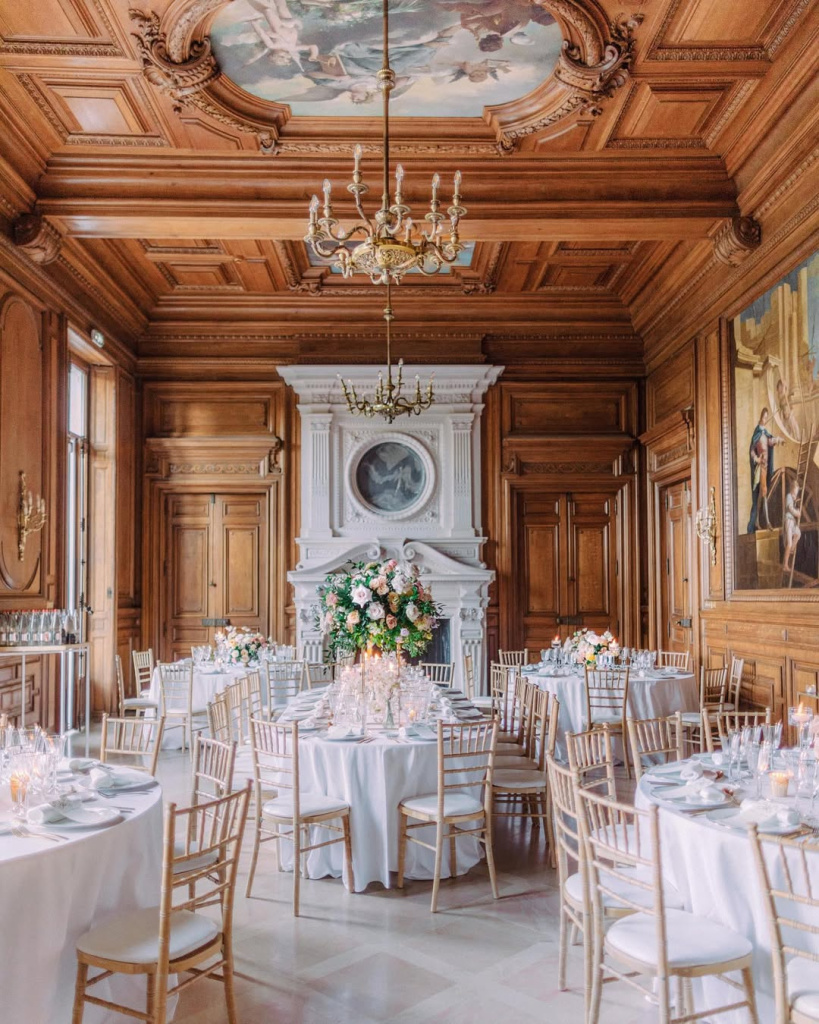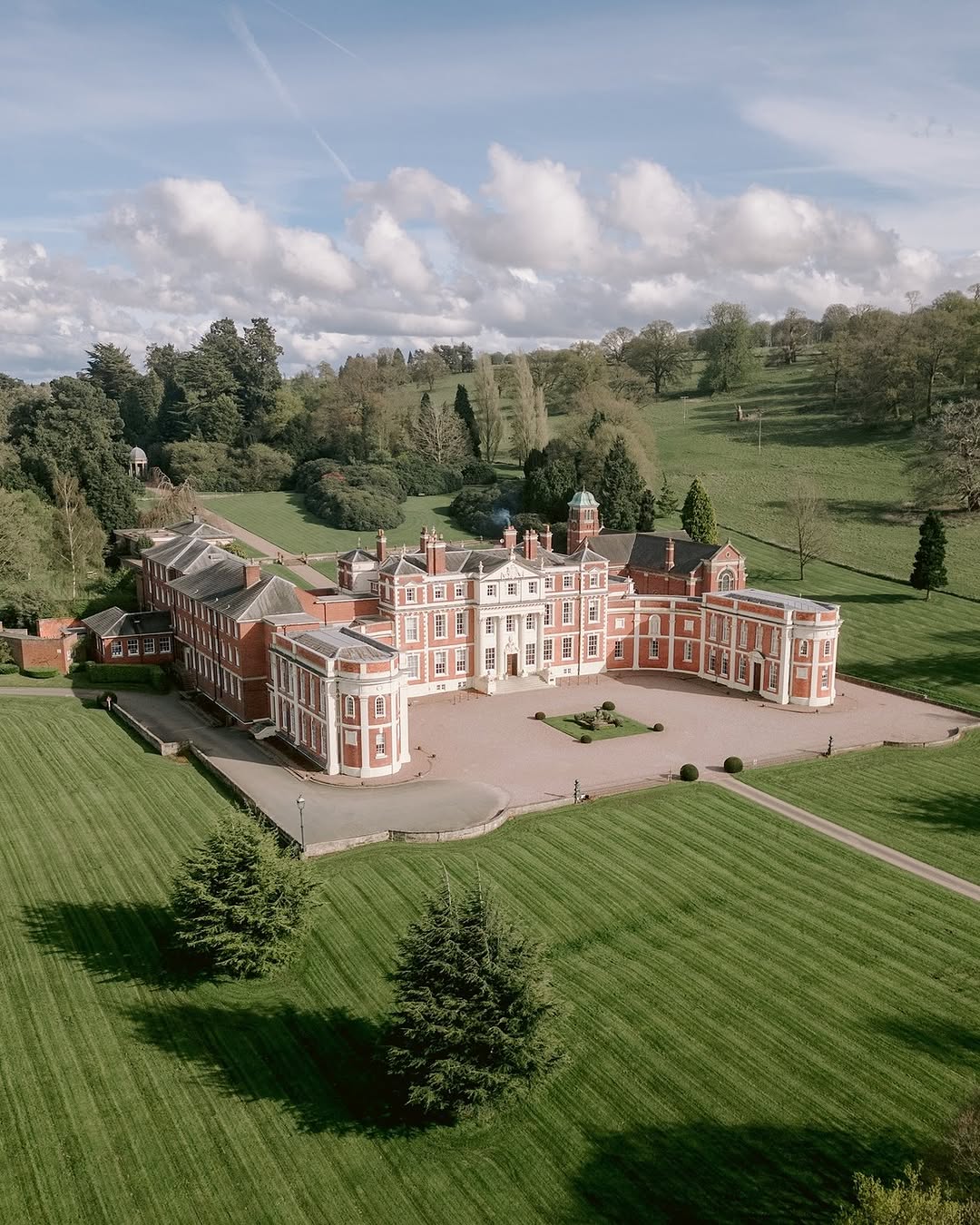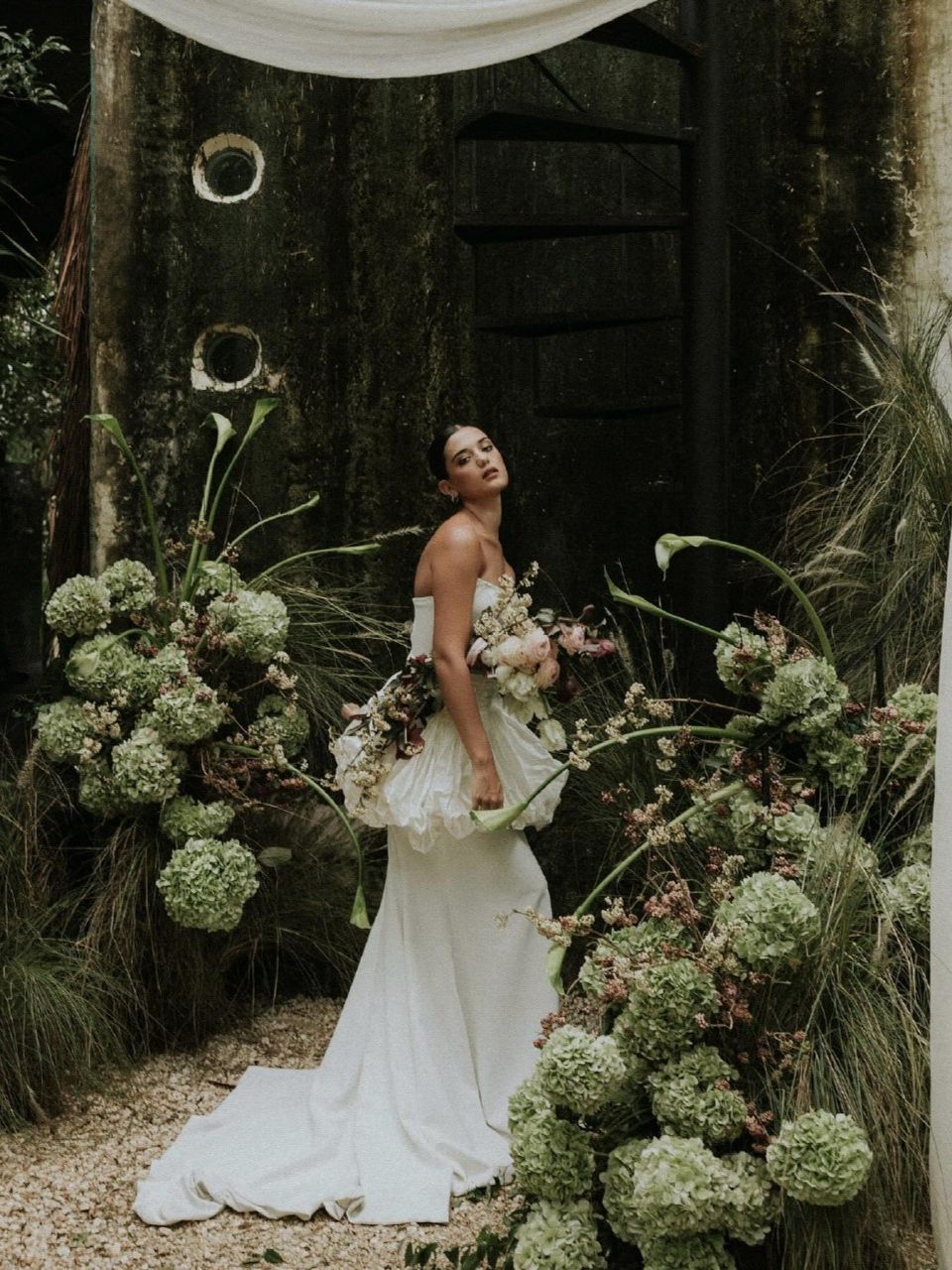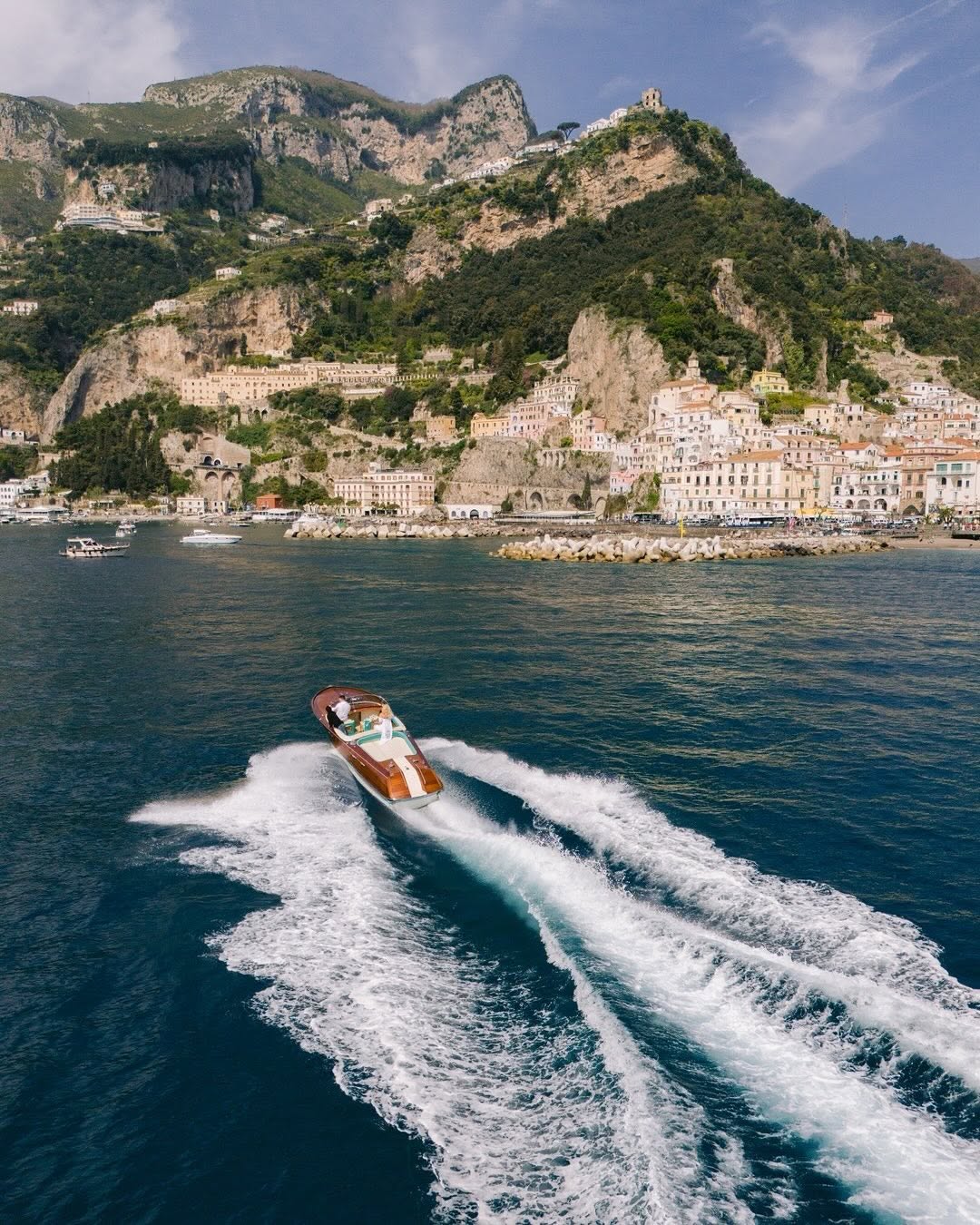Essential France Destination Wedding Planning Guide
- Author: Natali Grace Levine
- Reading time: 36 min 29 sec
- Publication date: 01/18/2025
- Updated: 09/09/2025
- Why Choose France for Your Destination Wedding?
- Best Locations for Weddings in France
- Legal Requirements for Getting Married in France
- Budgeting for a Destination Wedding in France
- French Destination Wedding Planning Guide: Choosing the Right Planner
- The Ultimate Guide to Destination Weddings in France: Selecting the Perfect Venue
- Photography and Videography Tips for Your French Wedding
- Making the Most of Scenic Backdrops When Planning Your French Dream Wedding
- Essentials for Planning a Destination Wedding: Finding the Perfect Florist
- French Destination Wedding Planning Tips: Music and Entertainment Options
- Destination Wedding Essentials: Crafting an Authentic French Wedding Menu
- Ensuring Seamless Communication with Vendors
- Personalized Wedding Décor and Themes
- Sustainable and Eco-Friendly Wedding Ideas
- Exploring French Wedding Dress Trends
- Incorporating French Traditions and Customs
- The Essential Guide to Planning Your Dream Destination Wedding in France: Cultural Etiquette and Expectations
- Steps to Planning a Destination Wedding in France: Understanding the Seasonal Weather
- Accommodation Options for You and Your Guests
- Transportation Logistics for Your Wedding Party
- Creating Memorable Wedding Favors
- Planning Pre-Wedding and Post-Wedding Activities in France
- How to Plan a Dreamy Destination Wedding: Navigating Language Barriers
- Health and Safety Considerations
- Packing Essentials for a French Wedding
- Making the Most of French Honeymoon Destinations
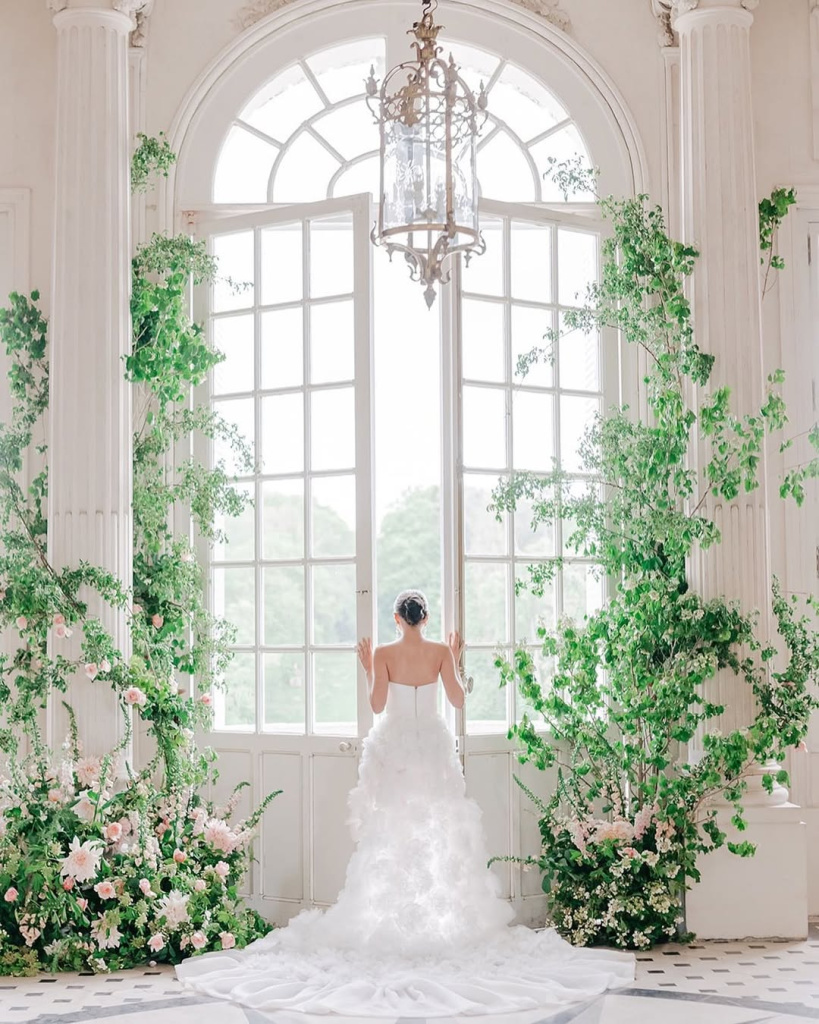
Dreaming of a fairytale wedding in the rolling vineyards of Bordeaux or under the chandeliers of a majestic château? France, with its rich history, stunning architecture, and world-renowned gastronomy, presents the perfect backdrop for an unforgettable destination wedding. This ultimate guide to planning your dream wedding in France will walk you through everything from choosing the ideal location and navigating legalities to selecting the right vendors to make your French wedding truly magical. So grab a croissant and settle in as we transport you to the romantic landscapes of France, where your dream wedding awaits!

Why Choose France for Your Destination Wedding?
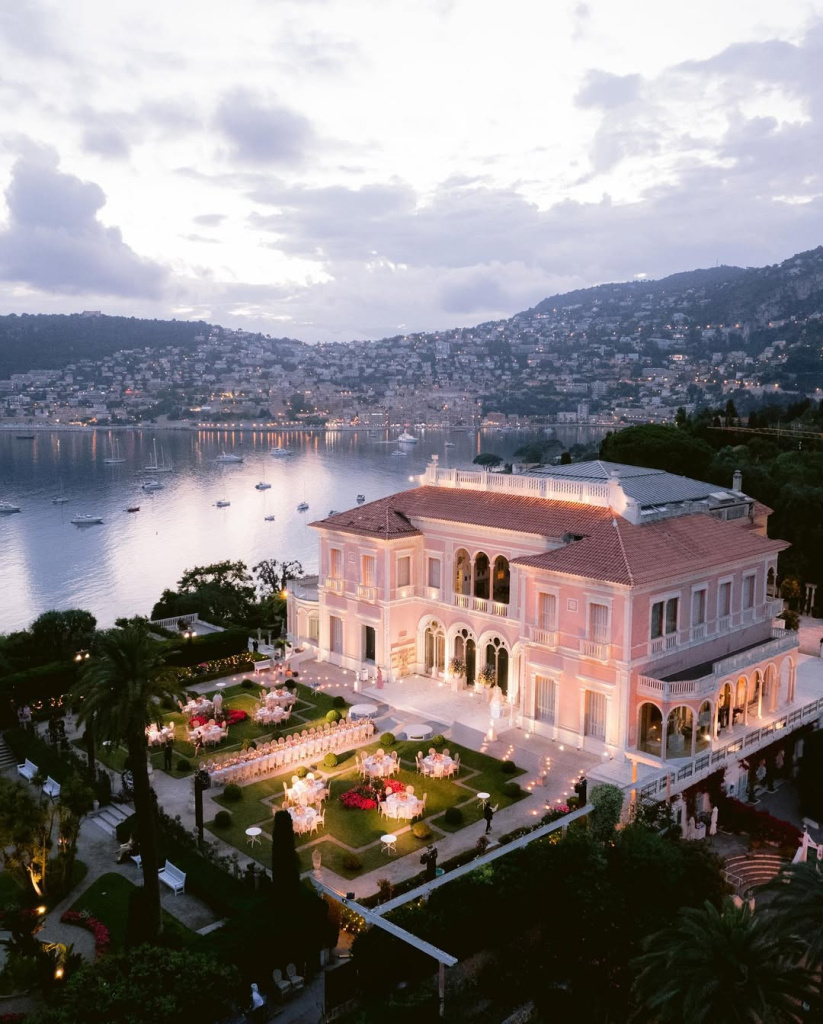
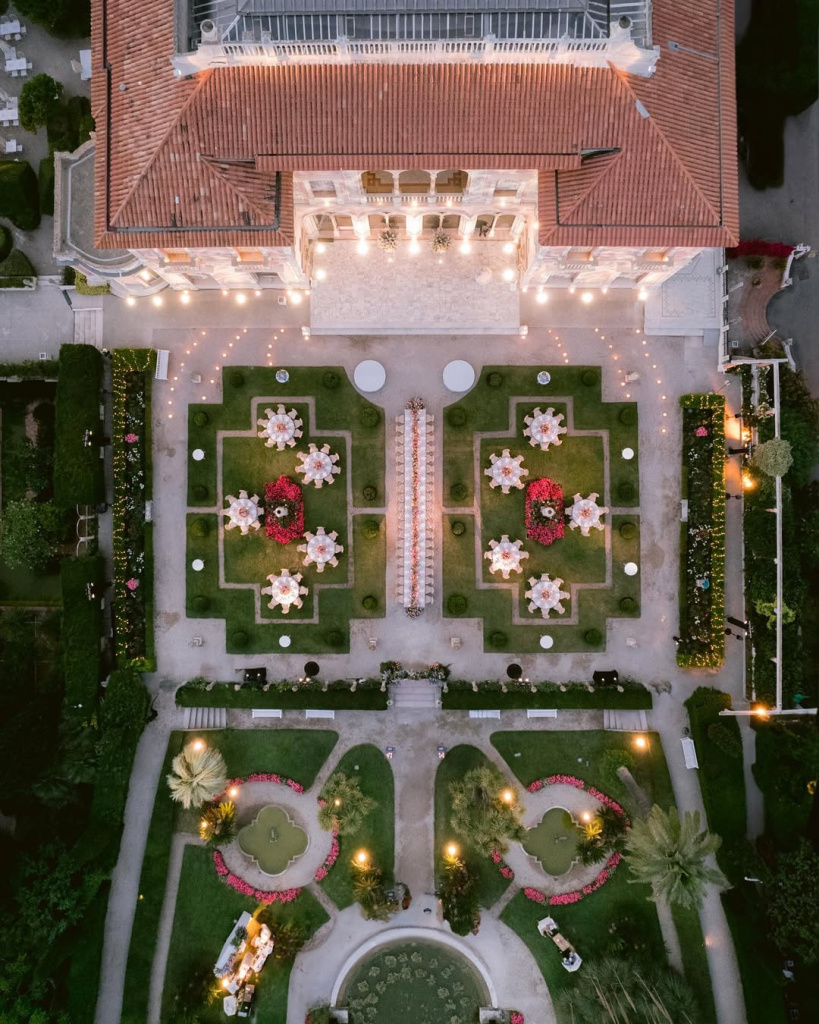
France is not just a place; it's a mood and setting that promises romance and enchantment. The allure of its cities and countryside offers diverse settings that cater to every style, from rustic charm to luxe sophistication. Whether it's the allure of Paris, the lavender fields of Provence, or the glamorous French Riviera, France offers a picturesque stage where your wedding narrative can unfold beautifully.
Best Locations for Weddings in France
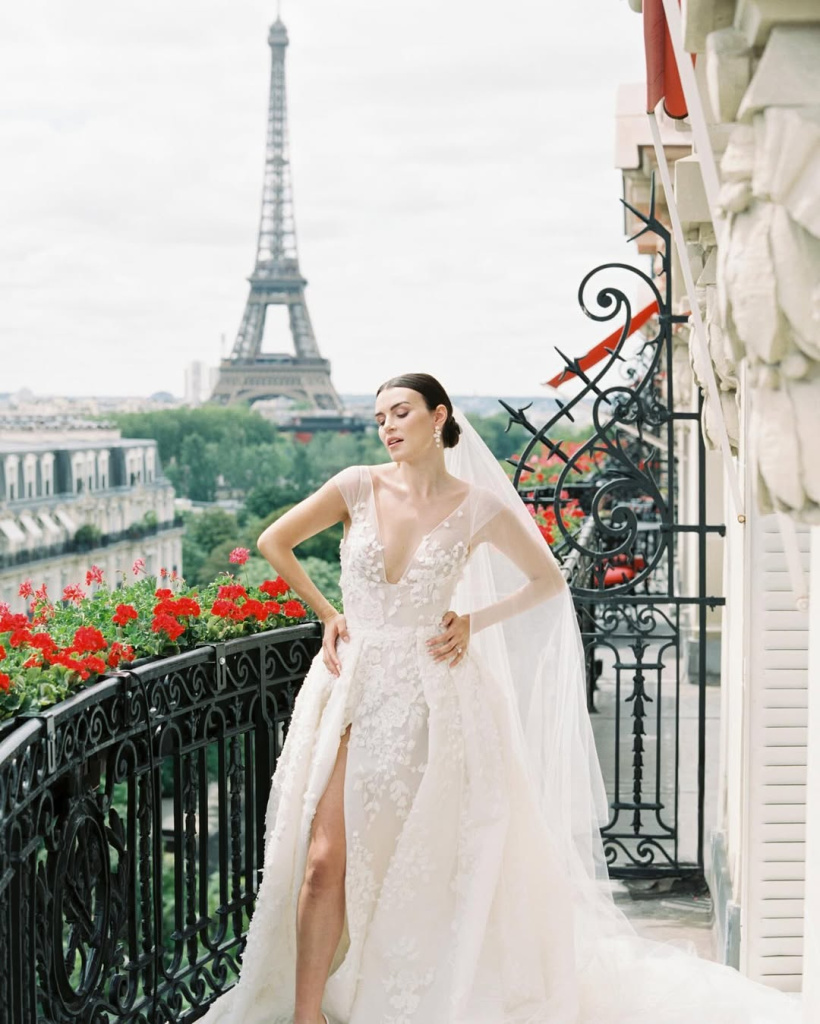
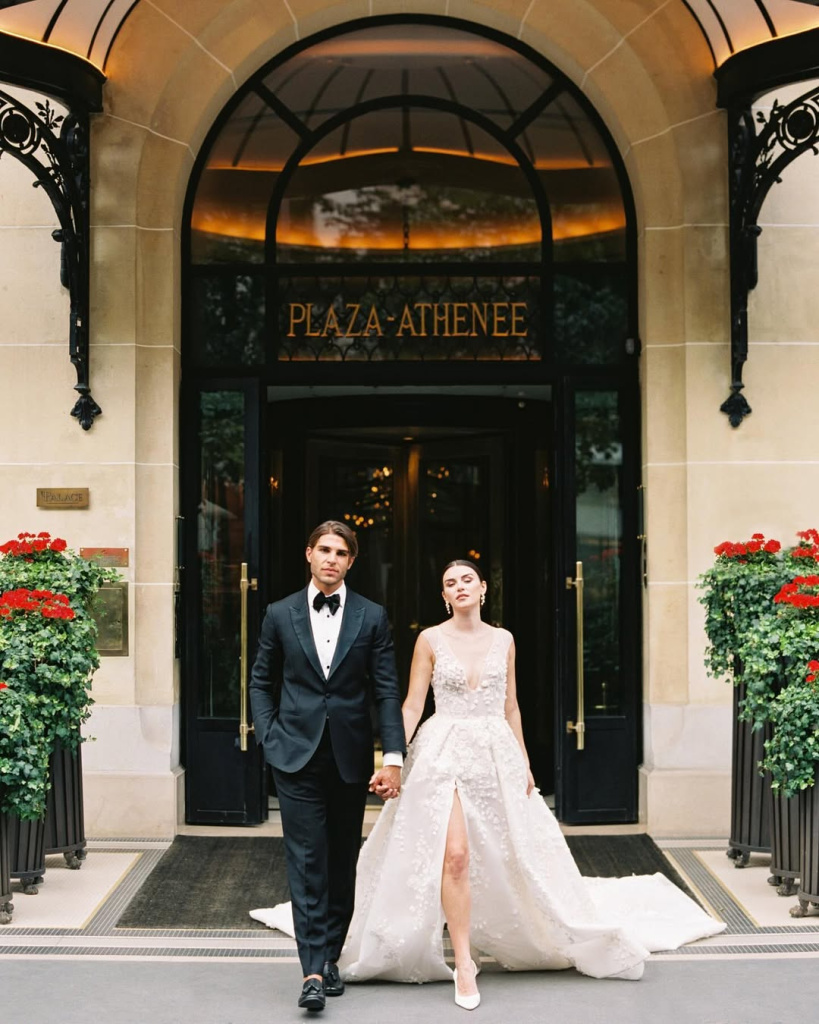
Each of these locations offers its own unique blend of beauty, charm, and romance, ensuring that whatever your vision for your wedding day, France has a locale that can make your dreams a reality.
Paris: The City of Love
Paris is not only the capital city but also the epitome of romance and elegance, making it a top choice for a destination wedding. Celebrate your love surrounded by iconic landmarks such as the Eiffel Tower, Notre Dame, or along the banks of the Seine. Luxurious hotels, charming boutiques, and exquisite restaurants offer endless possibilities for wedding venues. The city’s vibrant art, culture, and history add a profound sense of grandeur to your wedding celebration.
French Riviera: Glamour and Mediterranean Charm
The French Riviera, or Côte d'Azur, is famed for its stunning coastline, luxurious resorts, and mild Mediterranean climate. Cities like Nice, Cannes, and Saint-Tropez are perfect for a glamorous wedding by the sea. The Riviera combines the allure of golden beaches, lavish yachts, and chic celebrations. Opt for a beachfront ceremony or a reception in a high-end villa overlooking the azure waters, all while enjoying the region’s famous seafood and vibrant nightlife.
Provence: Rustic Elegance Amidst Lavender Fields
Provence offers a picturesque setting characterized by rolling vineyards, olive groves, and lavender fields that bloom spectacularly in the summer. The region is ideal for couples looking for a tranquil, natural setting with a touch of rustic charm. Venues range from renovated farmhouses to medieval castles, providing a romantic backdrop that is both casual and elegant. The local cuisine, infused with herbs and accompanied by Provence’s famous rosé wine, adds a flavorful touch to your wedding feast.
Loire Valley: Château Weddings in the Garden of France
Often referred to as the "Garden of France," the Loire Valley is renowned for its lush landscapes and majestic châteaux. It is an excellent choice for those dreaming of a fairytale wedding in a historic castle surrounded by gardens, rivers, and vineyards. The region’s châteaux offer a mix of Renaissance and Gothic architecture, providing a spectacular setting for both ceremonies and receptions. The Loire Valley is also noted for its fine wines, making it a fantastic spot for wine-loving couples.
Bordeaux: Sophisticated Urban Charm with Vineyard Luxe
Bordeaux is a UNESCO World Heritage Site, known for its classical and neoclassical architecture which has remained largely unspoiled through the ages. It’s the perfect locale for couples who appreciate fine wine and sophisticated urban settings. The city’s elegant squares, grand mansions, and notable landmarks such as the Place de la Bourse offer stunning urban scenery for wedding photos. Surrounding the city, the vineyards of Bordeaux provide a beautiful, serene countryside setting ideal for intimate ceremonies and lavish receptions alike.
Normandy: Dramatic Coastlines and Rich History
Normandy presents a blend of beautiful landscapes and historical sites. From the dramatic cliffs of Étretat to the medieval abbey on Mont-Saint-Michel, the region offers a variety of breathtaking backdrops for your wedding day. It’s perfect for those who love the sea and historical ambiance. The local cuisine features delightful seafood and famous Norman cheeses, providing a unique culinary experience for your wedding guests.
Alsace: Storybook Settings with Cultural Fusion
Alsace is characterized by its charming half-timbered houses, vibrant flower displays, and the influence of both French and German cultures. This region is ideal for couples looking for a storybook setting with a touch of European fairy tale charm. The picturesque villages and the scenic wine route that winds through the region make it a lovely choice for intimate weddings with a focus on gastronomy and wine.
Legal Requirements for Getting Married in France
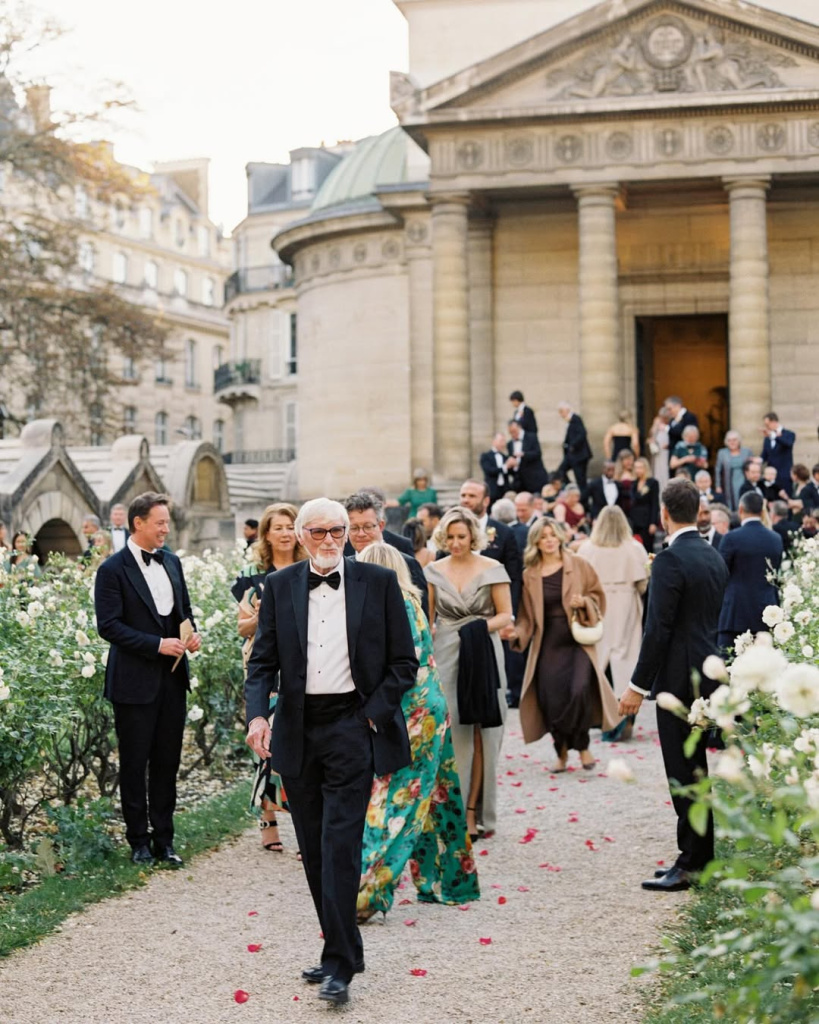
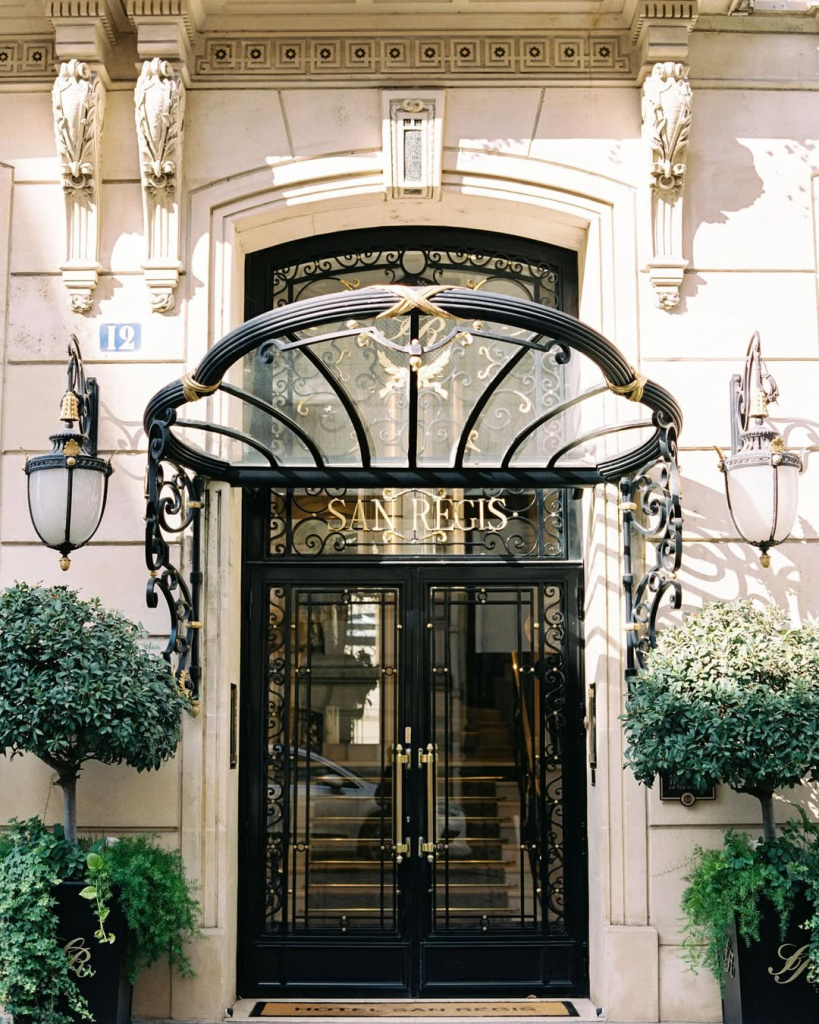
As part of the ultimate guide to planning a wedding in France, it's crucial to understand the legal requirements. Marrying in the enchanting backdrop of France comes with specific obligations that must be meticulously followed to ensure that your marriage is recognized both domestically and internationally. This comprehensive guide covers everything from residency requirements to the all-important civil ceremony, ensuring that you navigate these legalities seamlessly.
Residency Requirement
One of the primary legal requirements for getting married in France is the residency requirement. At least one of the parties to the marriage must reside in the town where the wedding will take place for a minimum of 30 days immediately preceding the date of the marriage. This residency period is intended to allow the publication of banns—public announcements of the intent to marry, which must be displayed at the town hall for ten days before the wedding.
Civil Ceremony
In France, the only legally binding type of wedding ceremony is the civil ceremony, which must be conducted by a French civil authority, typically the mayor or an appointed civil officer, at the town hall (mairie). This means that if you wish to have a religious or symbolic ceremony, it should be planned as a separate event following the official civil ceremony. The civil ceremony itself is relatively brief, typically lasting about 20 minutes and conducted in French. It’s important to schedule your civil ceremony directly with the town hall where you meet the residency requirements.
Required Documentation
The documentation required for getting married in France can vary slightly by commune, but generally, the following documents are needed:
- A valid passport or a national ID card for both parties.
- Birth certificates (extrait d’acte de naissance): These must be less than three months old if issued in France, or less than six months old if issued outside of France. For foreign nationals, a ‘multilingual standard form’ might be needed to accompany foreign birth certificates.
- Proof of residency (justificatif de domicile) for the party residing in France, showing at least 30 days of continuous residence in the town of the marriage.
- Certificate of Celibacy (certificat de célibat) showing that you are not already married. This may not be required in all countries.
- Certificate of Custom and Law (certificat de coutume): This attests to the laws regarding marriage in your home country and your eligibility to marry. It’s typically issued by your home country’s embassy or consulate in France.
- Certificate of Prenuptial Medical Examination (certificat médical prénuptial): While no longer mandatory, some communes may still require this. It must be issued within two months of the wedding date, confirming both parties are fit to be married.
- Affidavit of Law (affidavit de droit) similar to the certificate of custom, which states the laws of your home country concerning marriage and confirms there are no impediments to your marriage.
Translations
All documents not in French must be officially translated by a certified translator and sometimes legalized with an Apostille stamp or through the French consulate to be valid in France.
Publication of Banns
The banns must be publicly posted at the town hall for a minimum of ten days before the wedding can occur. This public notice includes both parties' names and the intended date of marriage and is a traditional formality to allow anyone with knowledge of a legal impediment to the marriage to notify the authorities.
Witness Requirement
You will need to have two to four witnesses for the civil ceremony, and their names must be given to the town hall before the wedding. Witnesses must be over 18 years of age and can be of any nationality, but they must have valid identification.
After the Ceremony
Following the ceremony, the couple will receive a family record book (livret de famille), which includes official records of any children born to the marriage and future marriage certificates.
Budgeting for a Destination Wedding in France
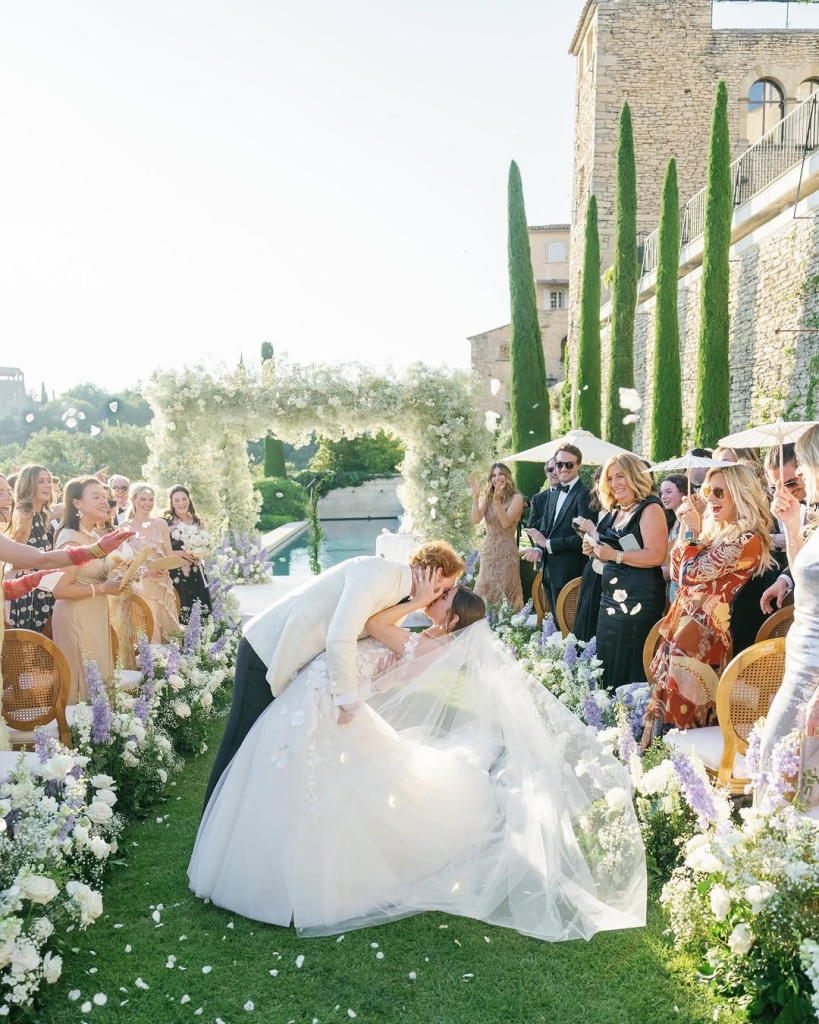
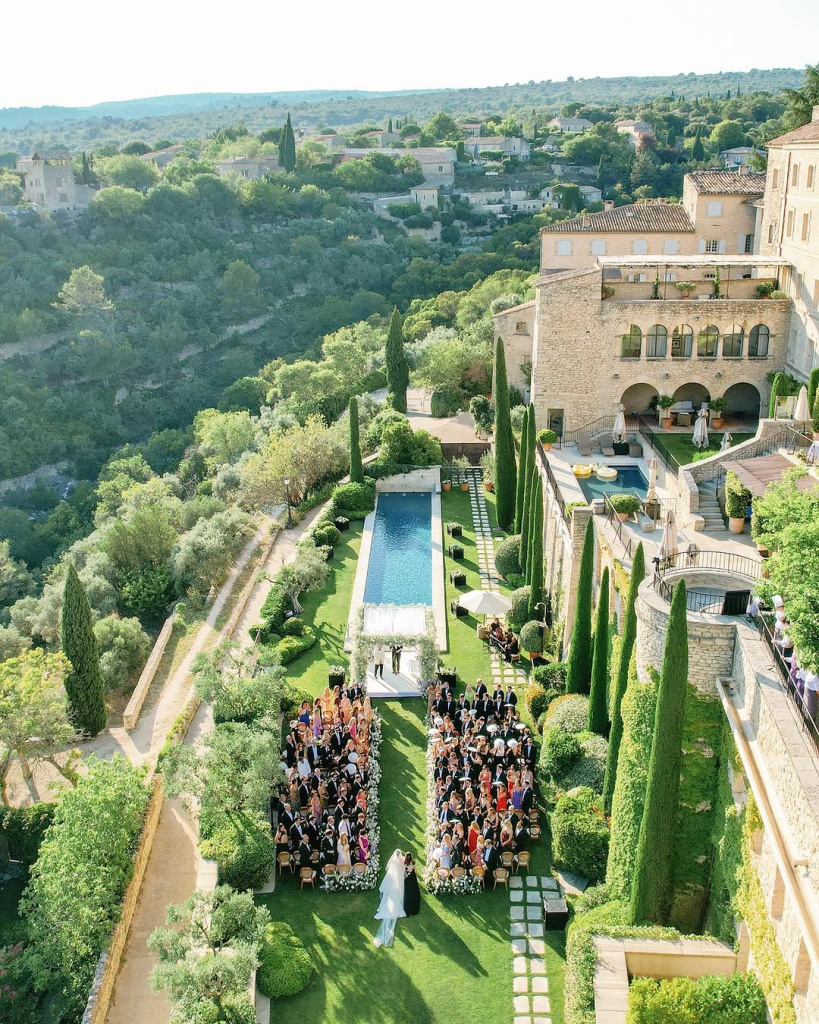
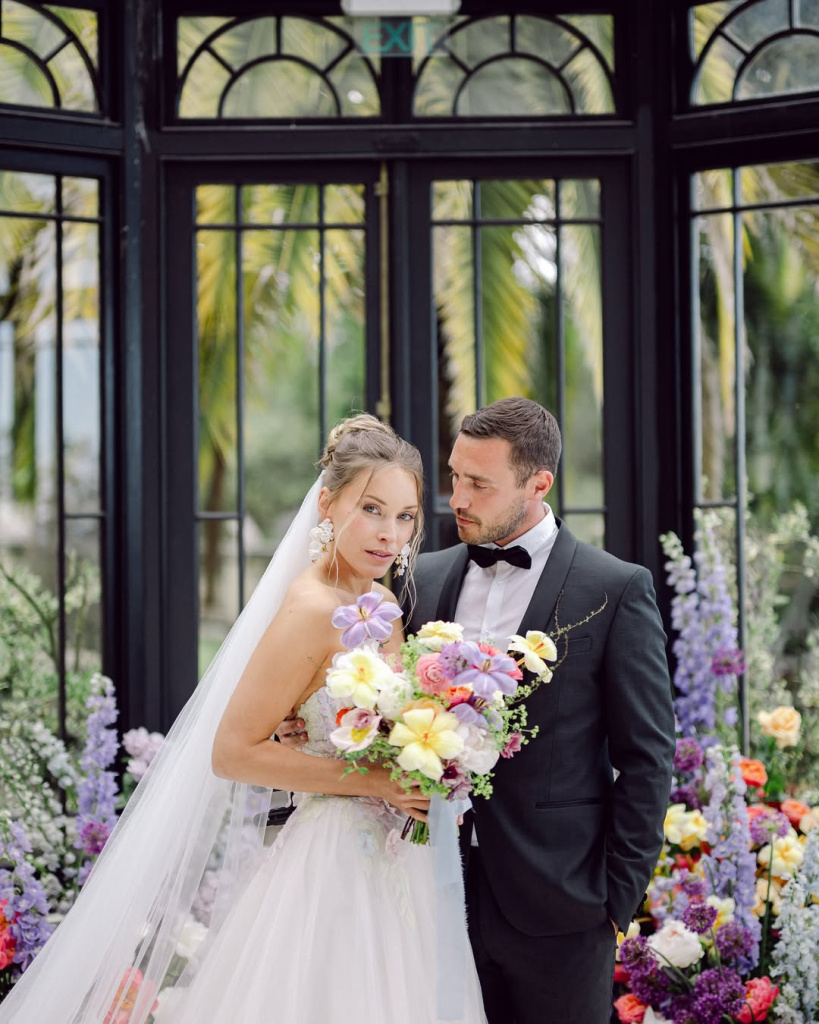
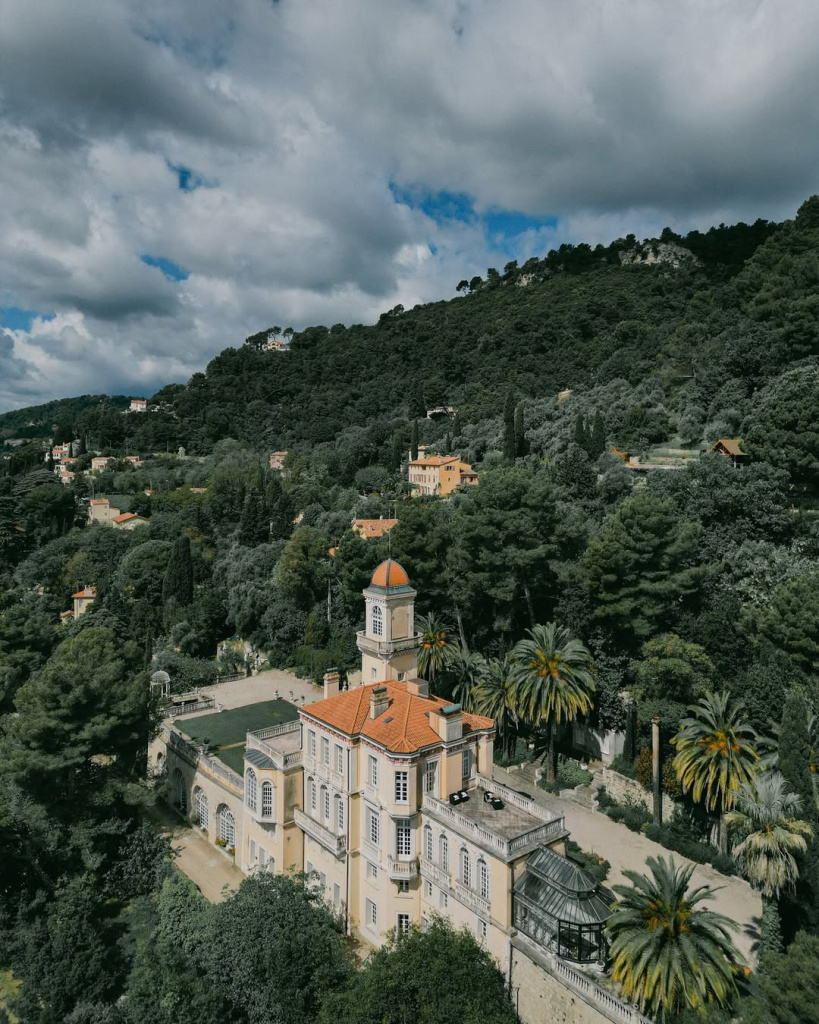
When planning your dream wedding in France, it's crucial to approach budgeting with a detailed and informed strategy. France offers a range of venues and services that cater to various budgets, but understanding the potential costs will help you manage your resources effectively. Here’s a breakdown of the typical expenses you might encounter, along with some tips for keeping your finances in check.
Venue Costs
- Low Range (Rural or less popular regions): $3,000 - $5,000
- Mid Range (Popular locations, smaller estates): $5,000 - $15,000
- High Range (Luxurious châteaux or exclusive venues in Paris or the Riviera): $15,000 - $50,000+
Catering
The cost of catering will depend largely on the number of guests and the type of menu you choose. French cuisine can be a highlight of your wedding.
Per Person: $150+
Accommodation
- Budget Options: $100 - $200 per night
- Mid-Range Hotels: $200 - $400 per night
- Luxury Accommodations: $400 - $1,000+ per night
Photography and Videography
Capturing your wedding beautifully is essential, and prices can vary based on the reputation and package inclusions of the service provider.
- Photography: $2,000 - $40,000
- Videography: $2,000 - $15,000
Decor and Floral Arrangements
The costs here can vary widely based on your aesthetic preferences and the size of your venue.
- Basic setups: $1,500 - $3,000
- Elaborate designs: $3,000 - $10,000+
Entertainment
This can include DJs, bands, or unique local entertainment like French musicians or cabaret performers.
- DJ: $500 - $1,500
- Live Band: $2,000 - $10,000
- Special Acts: $500 - $5,000
Transportation
Transportation costs will depend on the location of your wedding and the type of transportation you choose (luxury cars, buses for guests, etc.).
- Local Transportation: $300 - $1,000
- Luxury Car Rental: $500 - $2,000
Additional Expenses
These can include invitations, wedding favors, makeup and hairdressing services, and attire.
- Invitations: $500 - $1,500
- Favors: $300 - $1,000
- Bridal Attire: $1,000 - $10,000+
- Makeup and Hair: $300 - $1,000
Tips for Budget Management
- Prioritize What’s Most Important: Decide what aspects of your wedding are most important to you and allocate your budget accordingly.
- Be Flexible with Dates: Consider off-peak seasons for better rates on venues and accommodations.
- Explore Package Deals: Some venues offer packages that include catering, decoration, and other services at a discounted rate.
- Negotiate with Vendors: Don’t hesitate to negotiate prices or ask for adjustments to services that better fit your budget.
- Consider Exchange Rates: Keep an eye on currency fluctuations as they can affect your overall budget when paying for services abroad.
Properly planning and understanding the financial aspects of a destination wedding in France can help you manage costs effectively, ensuring that your special day remains both magical and within budget.
French Destination Wedding Planning Guide: Choosing the Right Planner
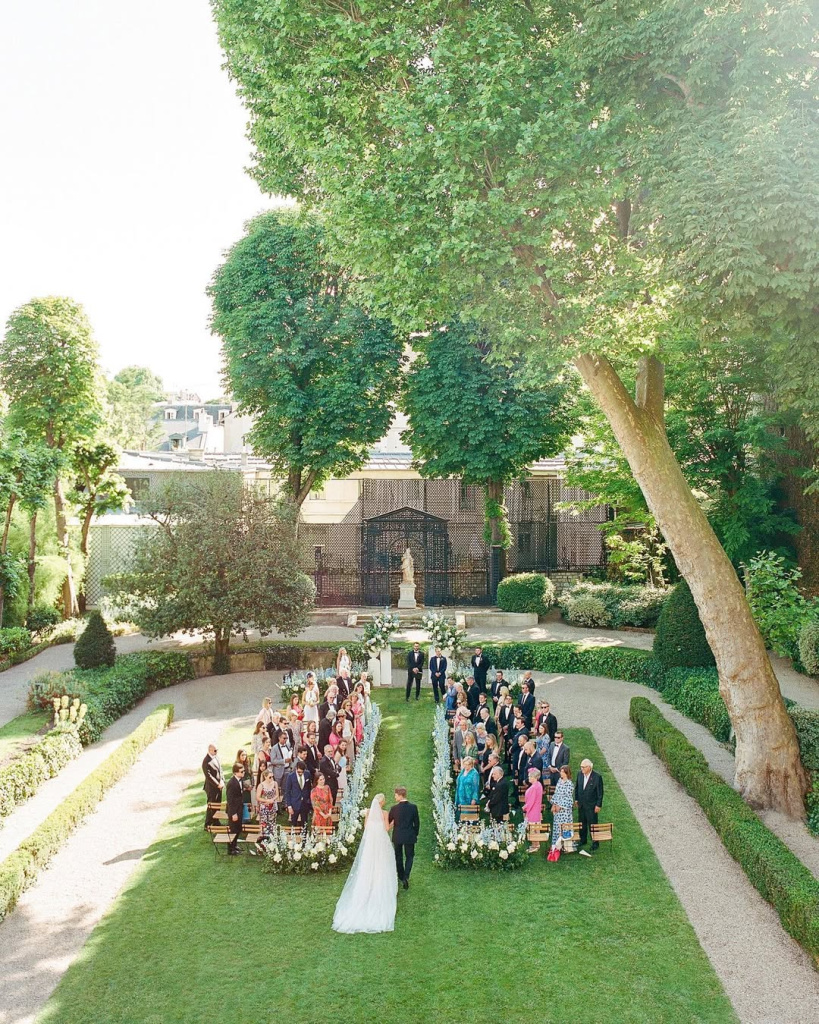
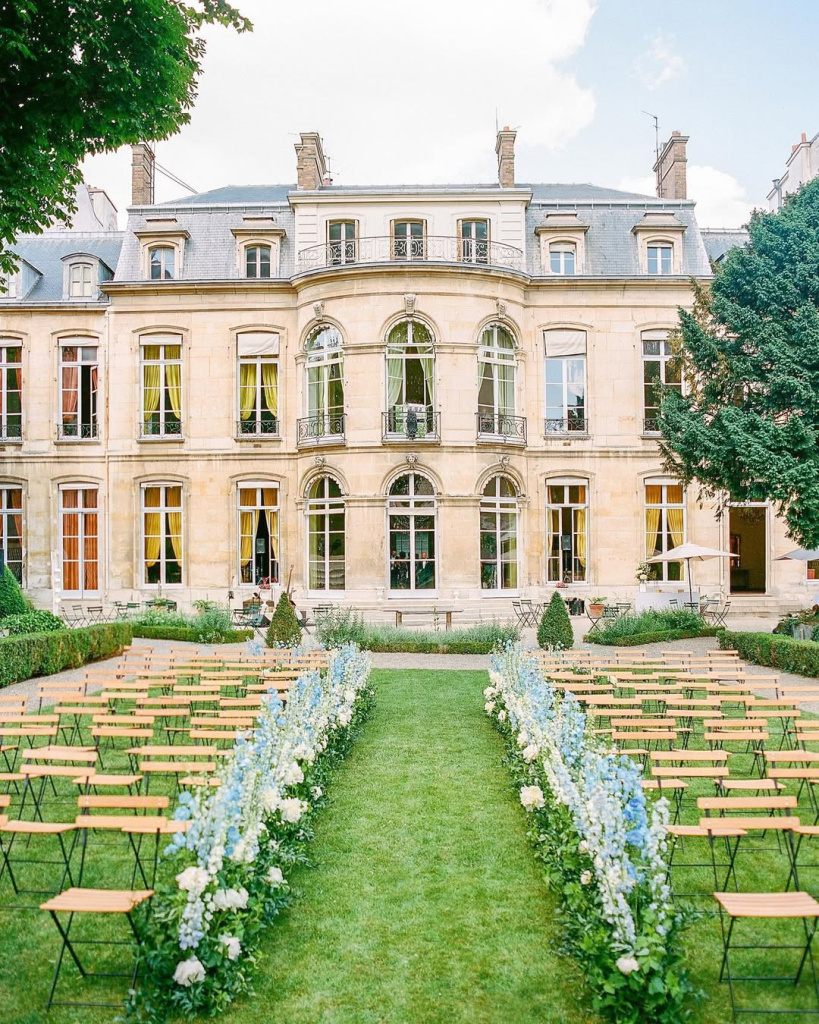
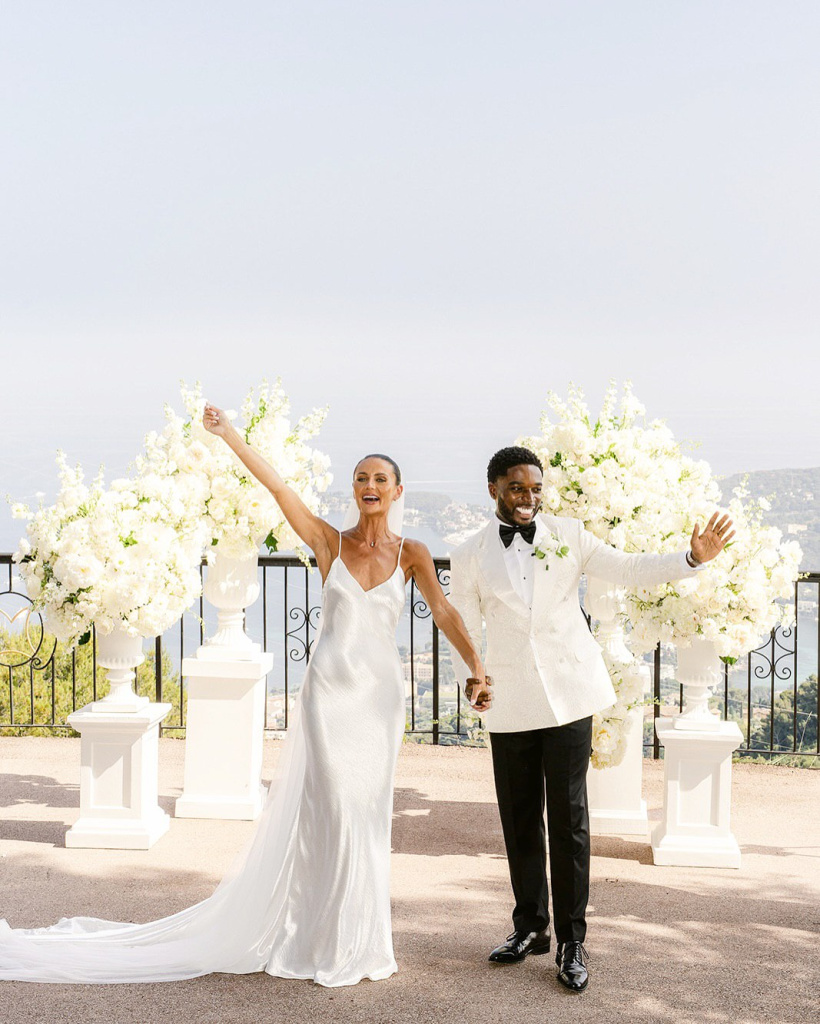
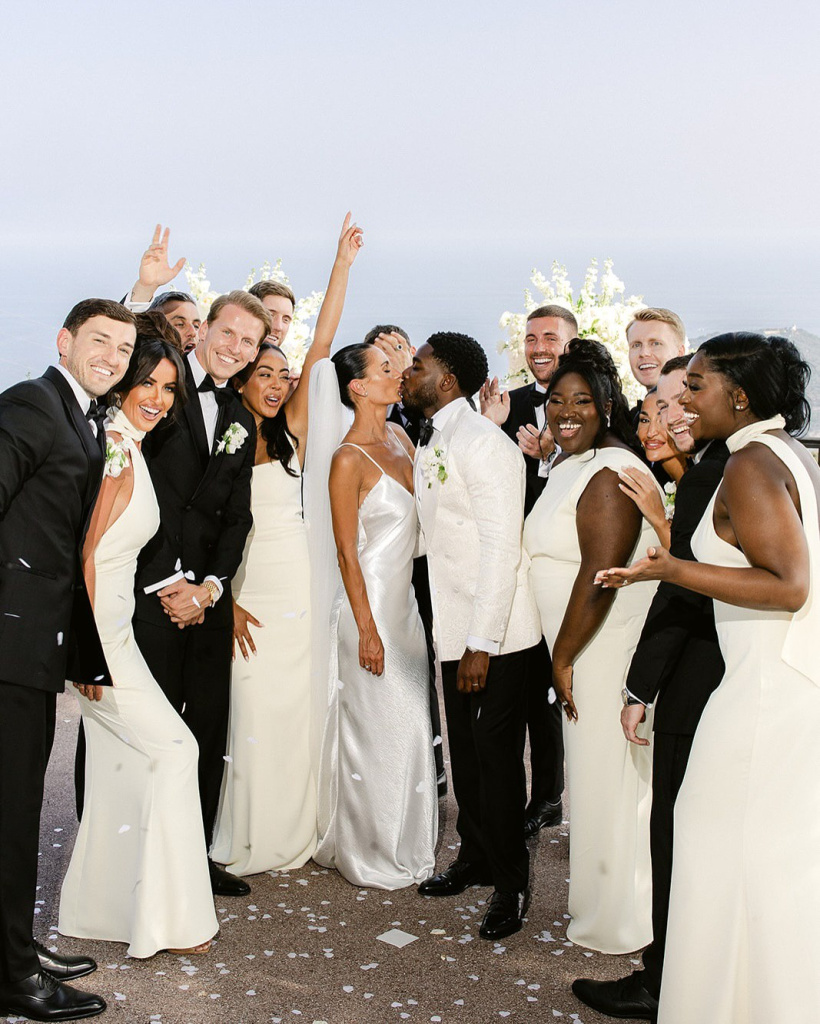
Selecting the right wedding planner is pivotal for ensuring your destination wedding in France goes smoothly. A good planner not only coordinates the logistics and details but also understands your vision, making your dream wedding a reality. Here are some essential tips to help you choose the ideal planner for your French wedding.
Look for Experience in France
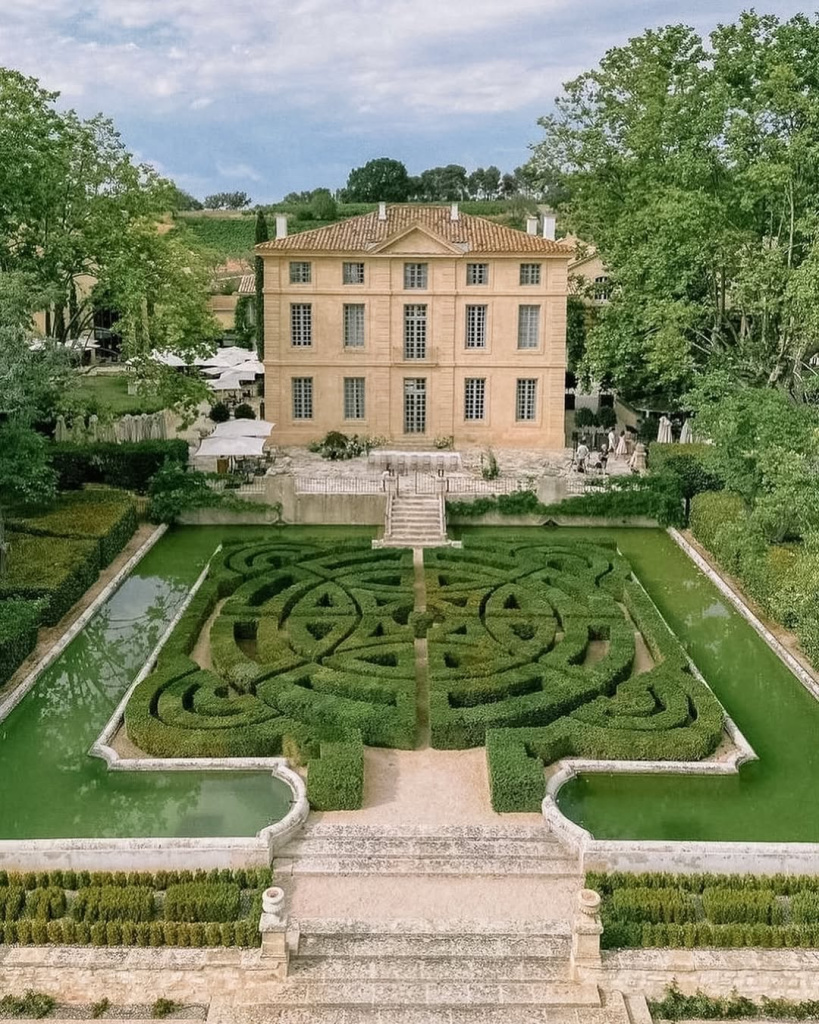
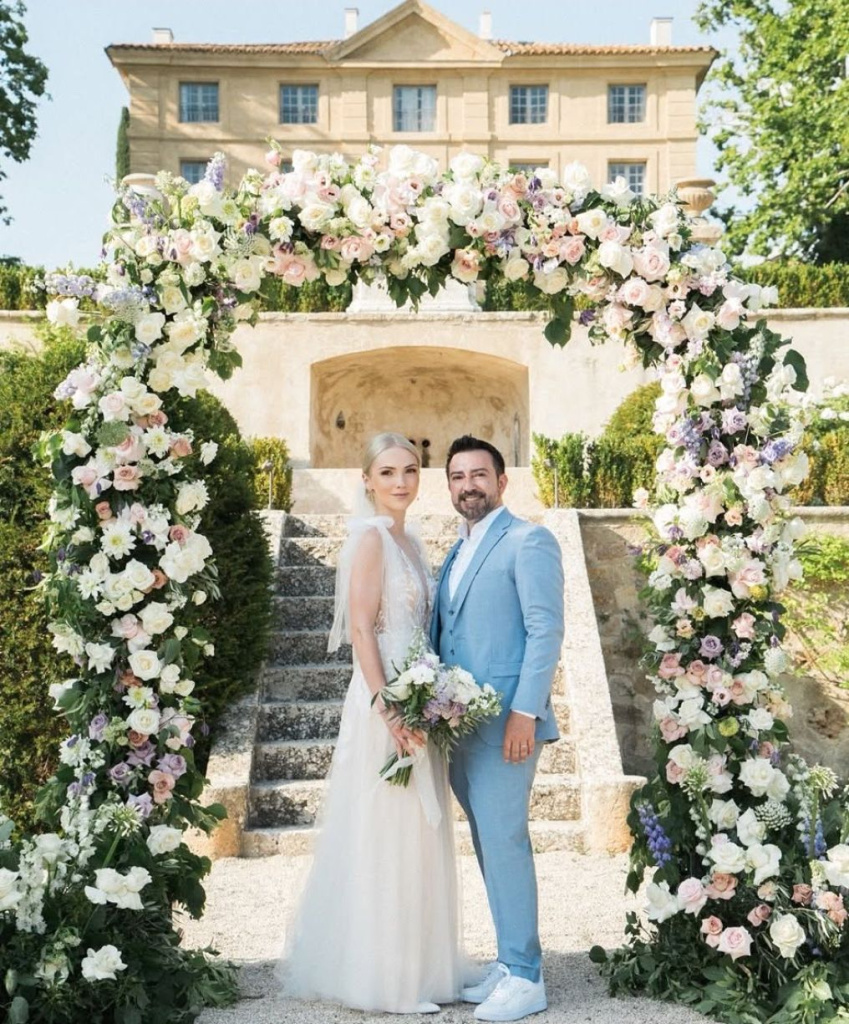
Ensure your planner has extensive experience specifically in France. A planner familiar with the local customs, venues, and vendor networks will be invaluable. Review their portfolio to see the types of weddings they have managed, particularly those at your chosen location or similar settings.
Check References and Reviews
Ask for references and check online reviews to understand other couples' experiences with the planner. This will give you insights into their reliability, responsiveness, and quality of service. Inquire about their relationships with local vendors. A well-connected planner can negotiate better deals and ensure high-quality services.
Communication Skills
If you’re not fluent in French, ensure your planner is bilingual or has a team that can communicate effectively in both French and your language. Consider their promptness in responding to your inquiries. Regular and clear communication is essential, especially when planning from abroad.
Services Offered
Determine whether the planner offers full-service planning or just day-of coordination. Make sure their services align with your needs. Choose a planner who is flexible and willing to tailor their services to fit your specific requirements and vision.
Compatibility
Ensure the planner’s style and aesthetic align with your own. This harmony will help in creating a wedding that truly reflects your personality and taste. Since you’ll be working closely with them, it’s important that you feel comfortable and connected with your planner.
Understanding of Legal and Logistical Issues
Your planner should have a solid understanding of the legal requirements for getting married in France to help navigate paperwork and residency requirements. They should be adept at managing the complexities of destination weddings, including transportation logistics, accommodation arrangements, and local regulations.
Budget Management
Discuss budget constraints and get an itemized list of all costs. A good planner will provide transparent pricing and can help manage your budget effectively. Ensure they offer good value for the services provided, not just in terms of cost but also in the quality and reliability of the services.
The Ultimate Guide to Destination Weddings in France: Selecting the Perfect Venue
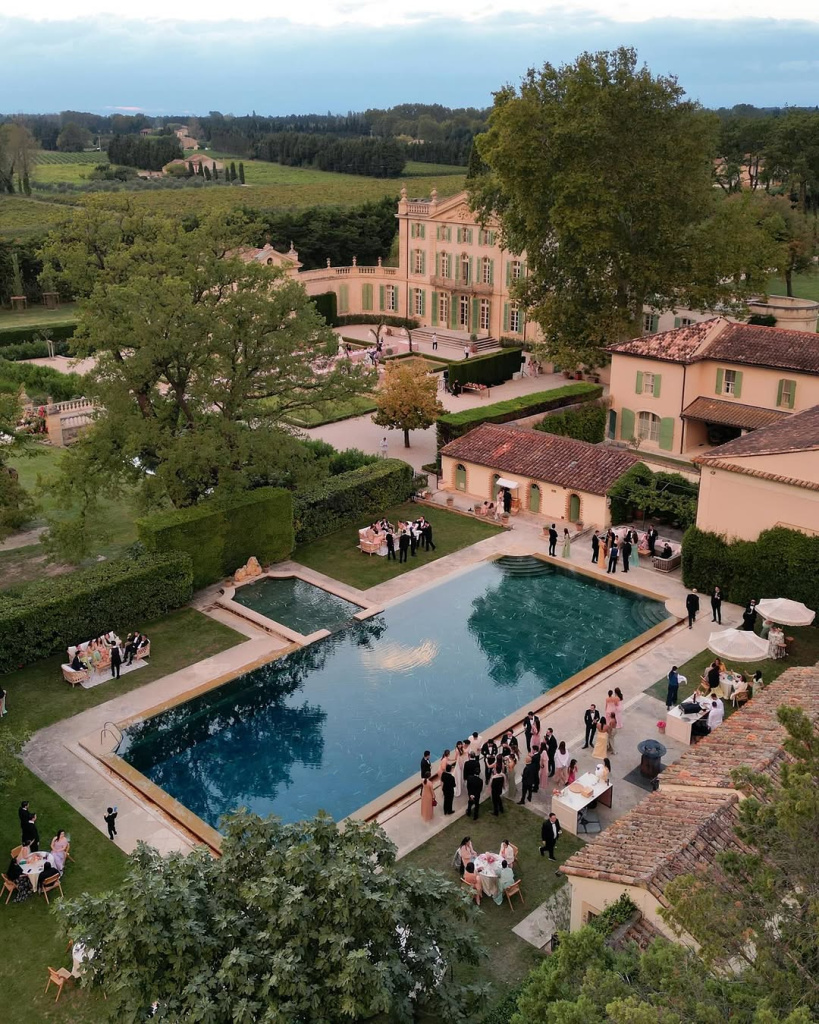
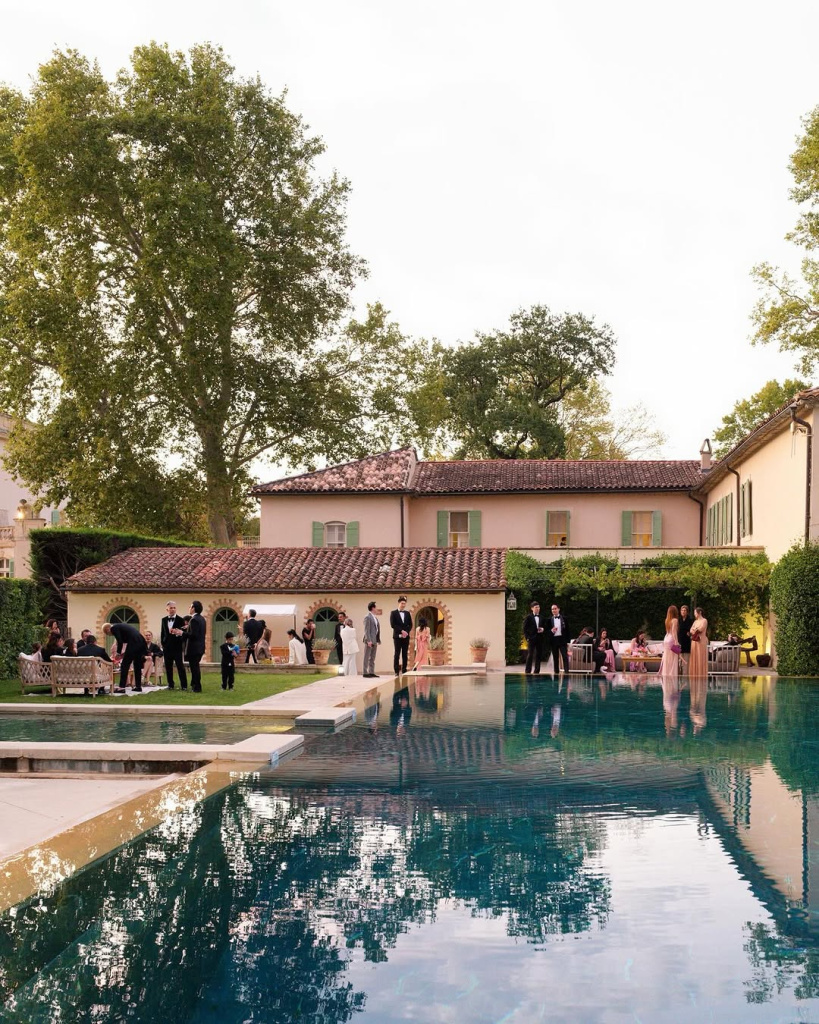
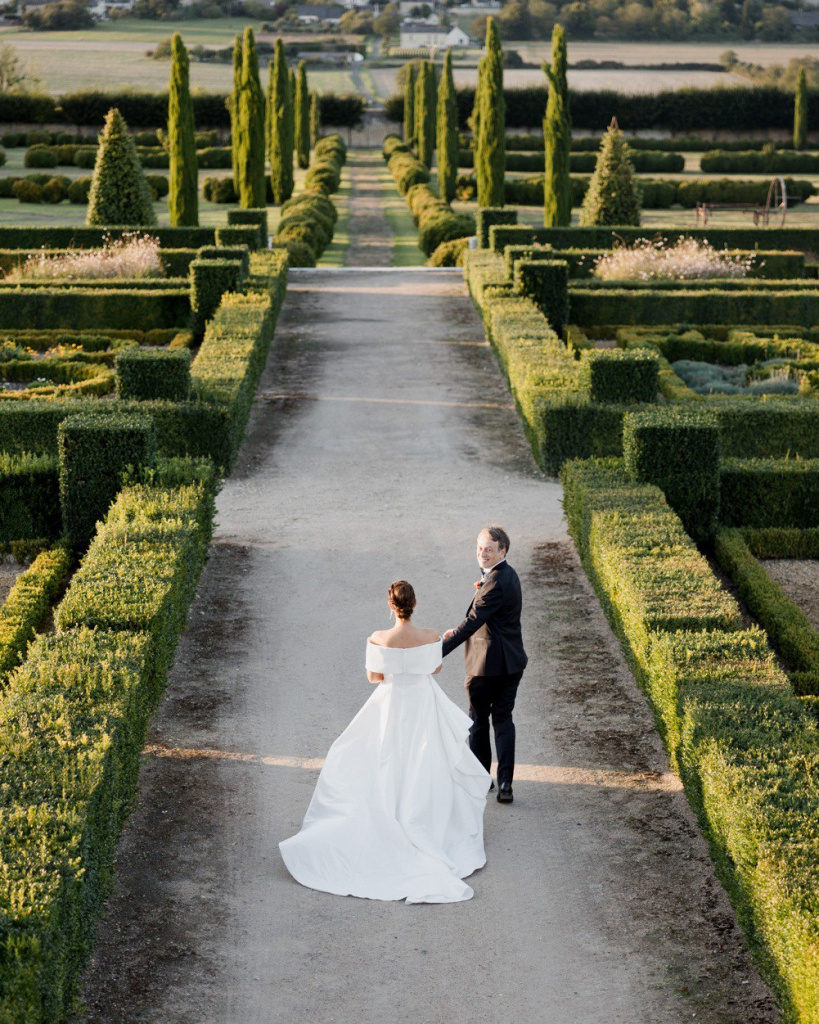
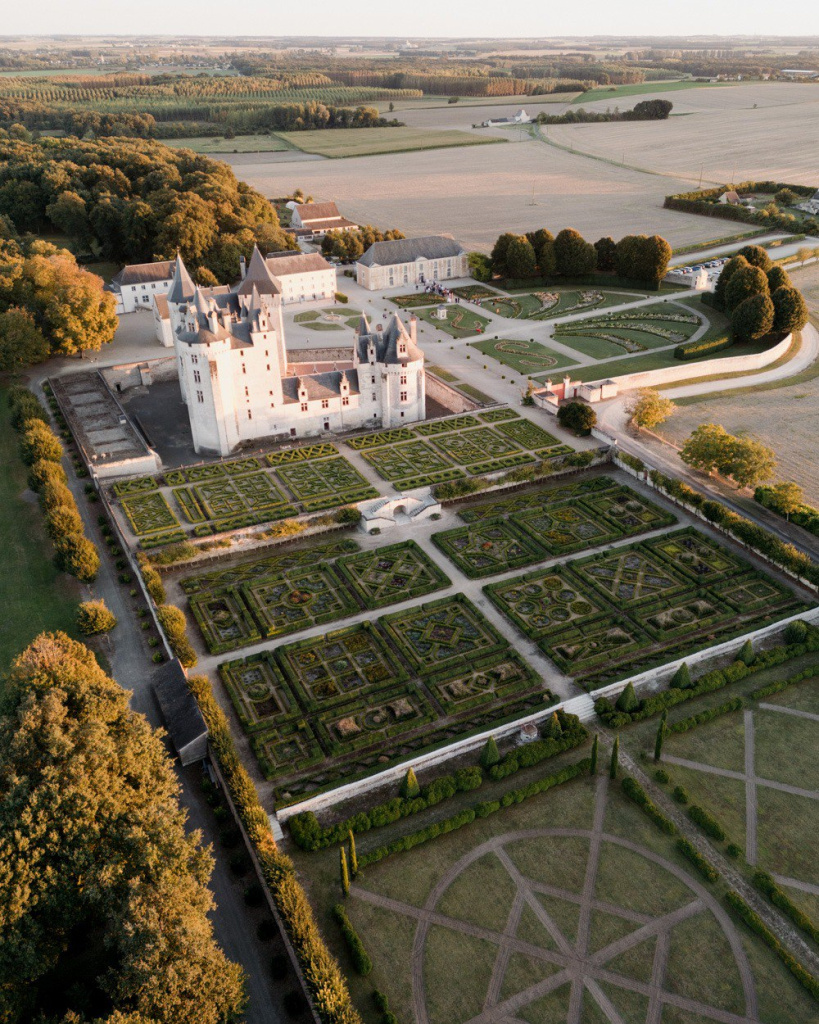
Selecting the ideal venue is a key step in planning your destination wedding in France. Each choice you make in terms of venue reflects a piece of your vision, transforming it into a reality that you and your guests will cherish.
Define Your Style and Mood
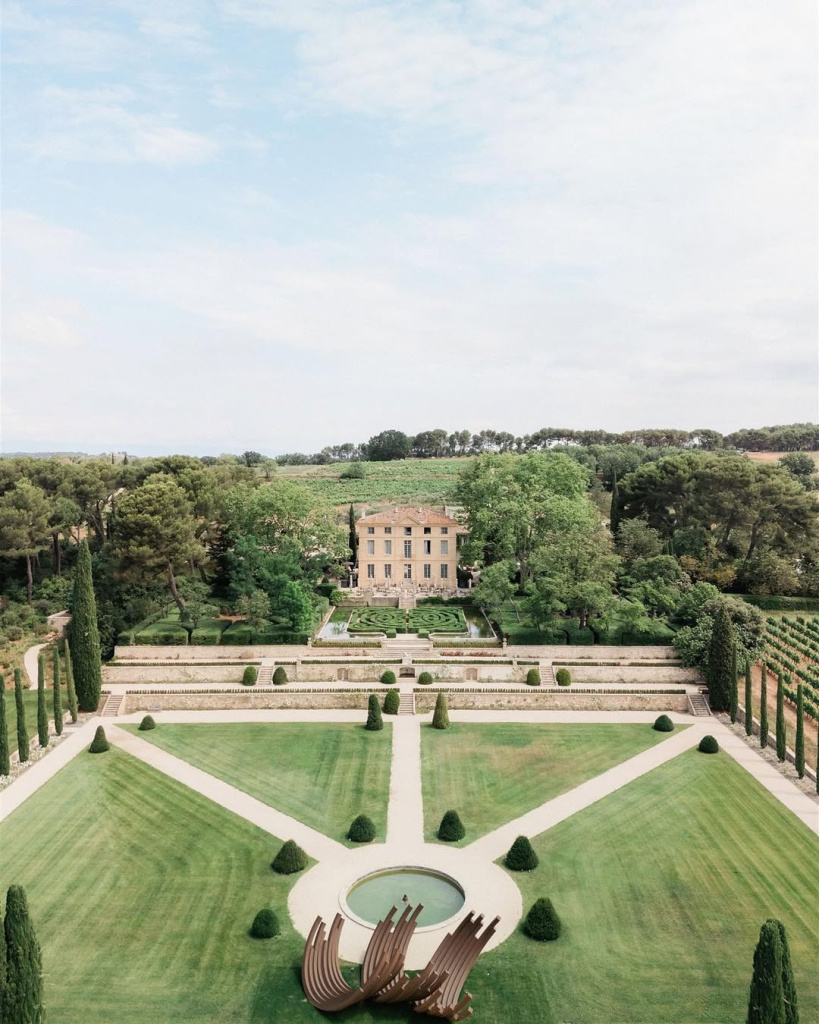
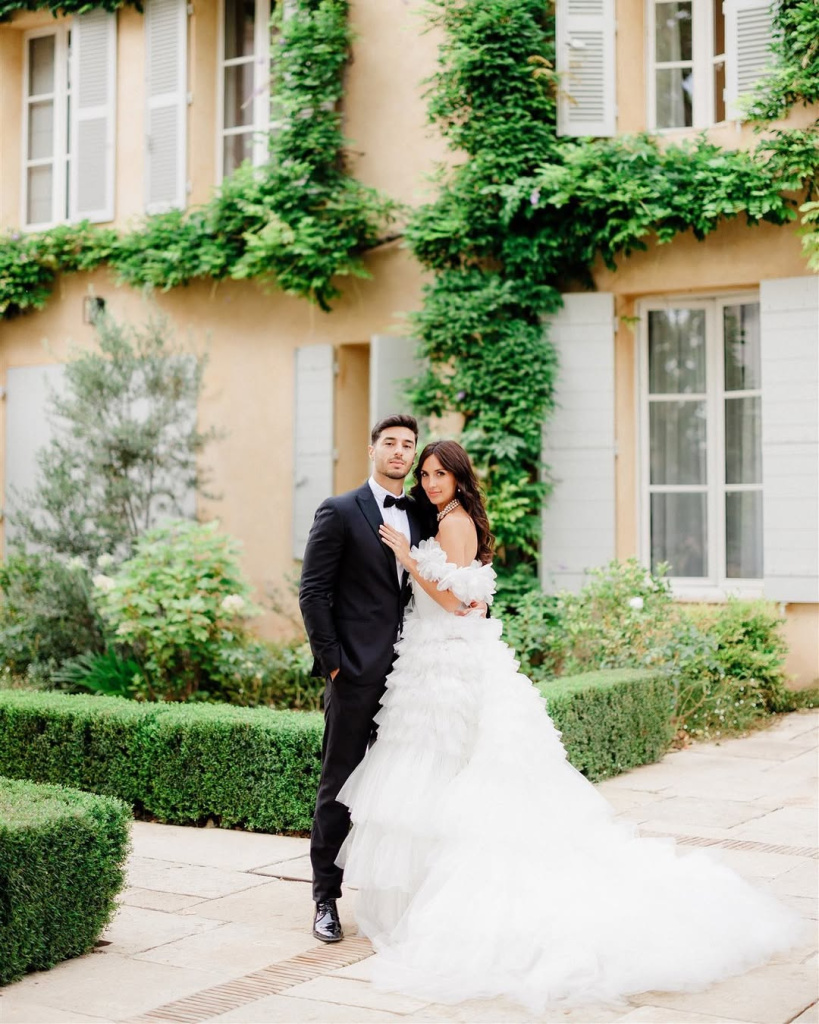
Start by determining the style and atmosphere you want for your wedding. France offers diverse venue options, from glamorous coastal resorts on the Riviera to charming rustic estates in Provence or sophisticated urban settings in Paris. Aligning the venue with your personal style will set the tone for the entire event.
Consider Size and Scope
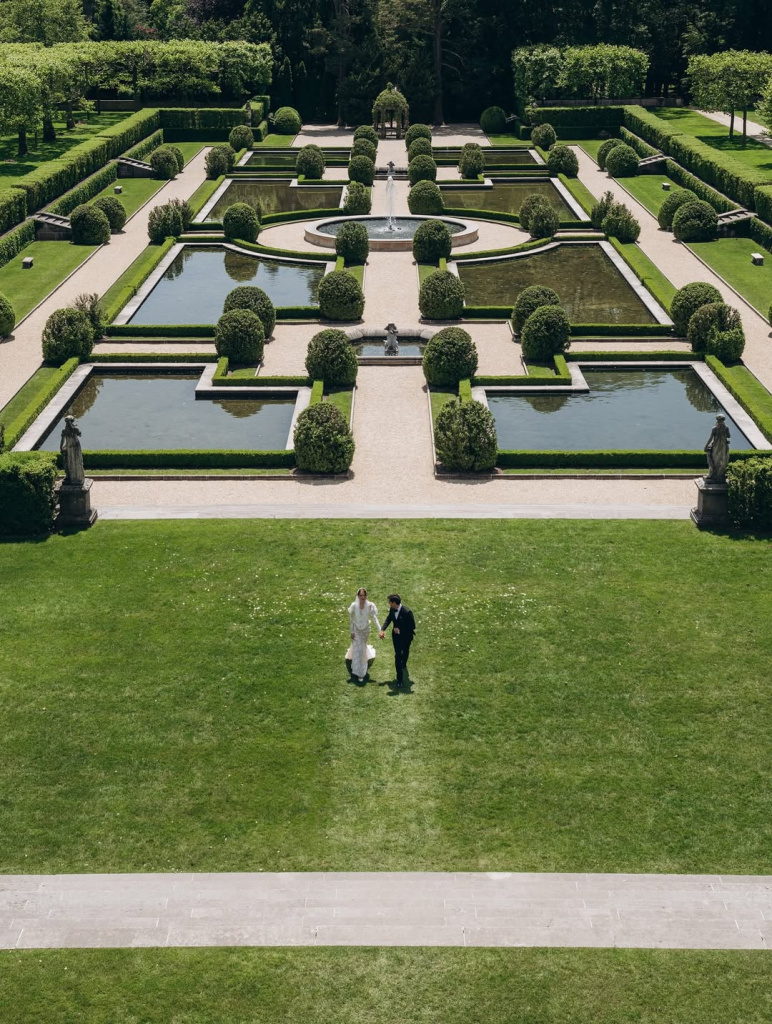
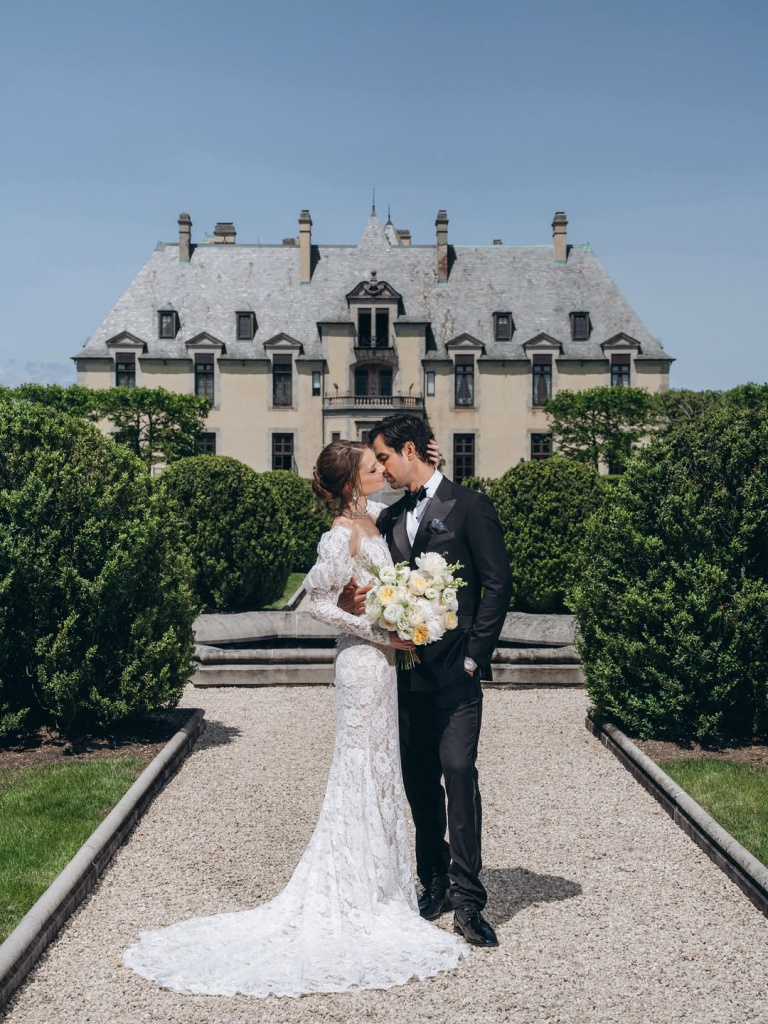
Think about the number of guests you're inviting and what kind of activities you plan to include. The venue should comfortably accommodate your party and facilitate the flow of events. The right size will enhance the guest experience and ensure the venue feels intimate yet spacious enough for all planned activities.
Evaluate the Location
The venue’s location will affect guest accessibility and the overall logistics of your day. Venues in remote areas offer stunning views and privacy but consider the ease of transport and nearby accommodation for guests. Urban venues offer convenience and accessibility, though they may come at a higher cost.
Assess Amenities and Services
Different venues offer varying levels of service. Some may provide full packages including catering and decor, while others might require you to hire external vendors. Choosing a venue with the right amenities can simplify planning and coordination, especially important when organizing a wedding from afar.
Think About Seasonality
The time of year you choose to marry can greatly influence your venue selection. Factors like availability, pricing, and guest comfort are all season-dependent. For instance, a vineyard wedding in Bordeaux is ideal in the autumn, while a winter celebration might be magical in a snowy Alpine retreat.
Visit the Venue
If possible, visit your top venue choices in person. This allows you to experience the space, understand its layout, and meet the staff. A site visit can provide insights that photos and descriptions cannot, ensuring the venue matches your expectations and needs.
Photography and Videography Tips for Your French Wedding
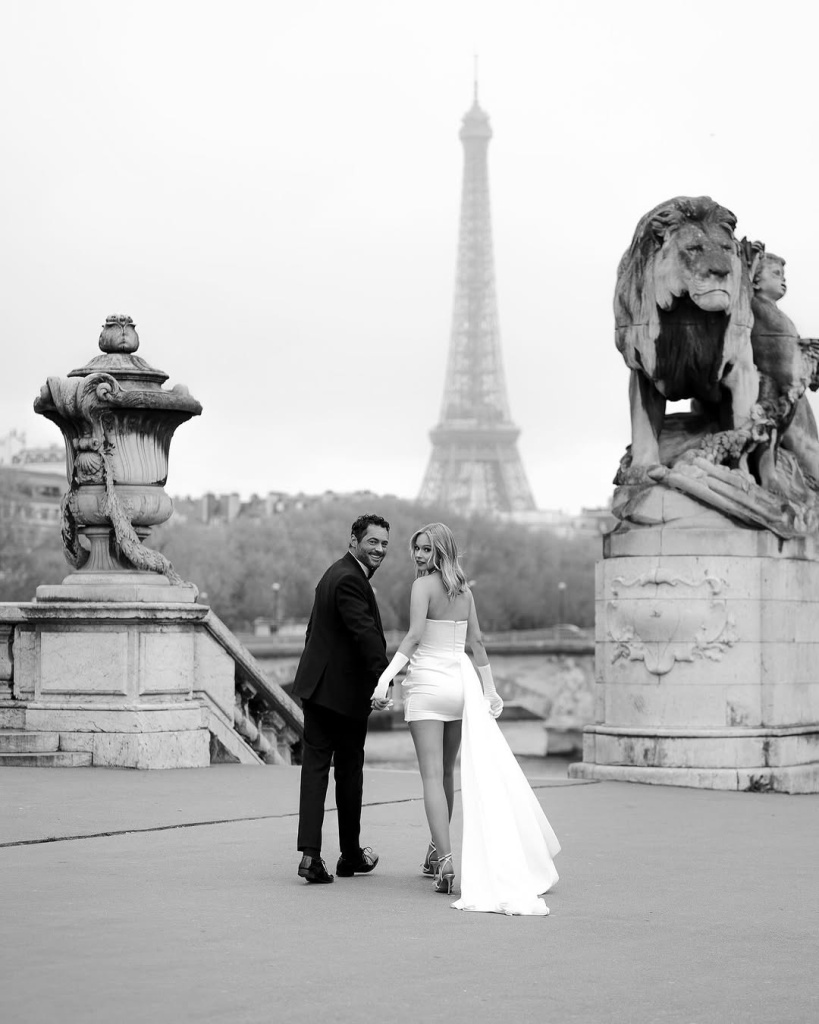
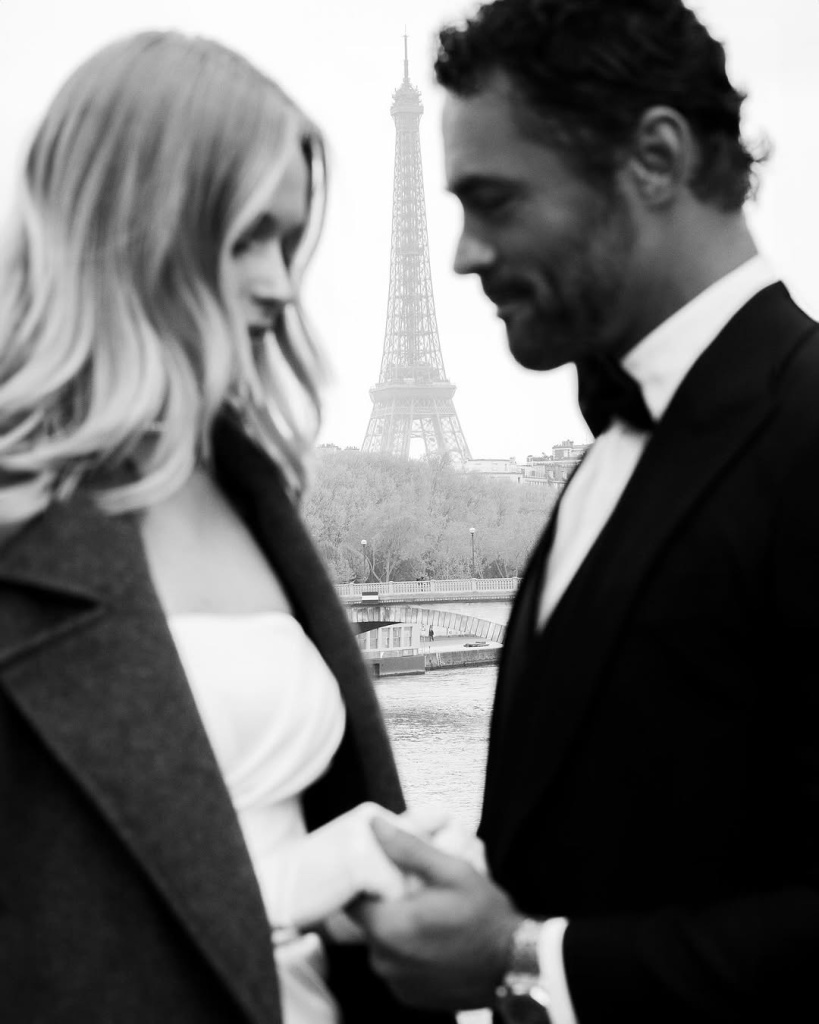
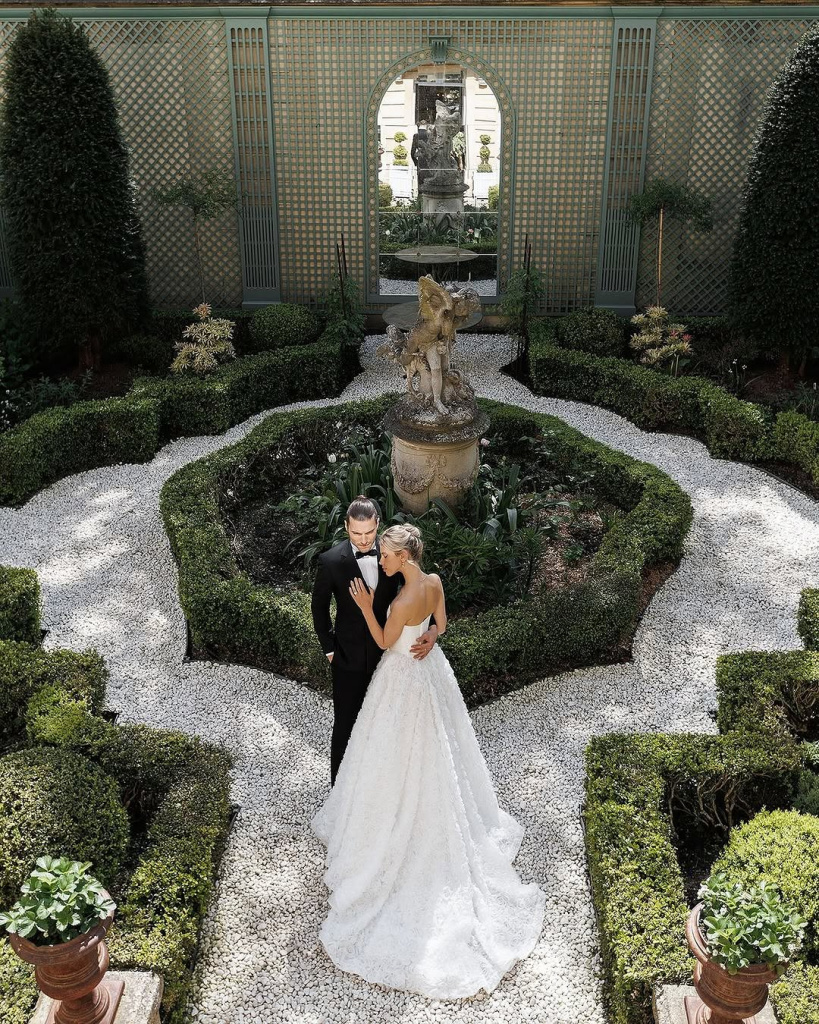
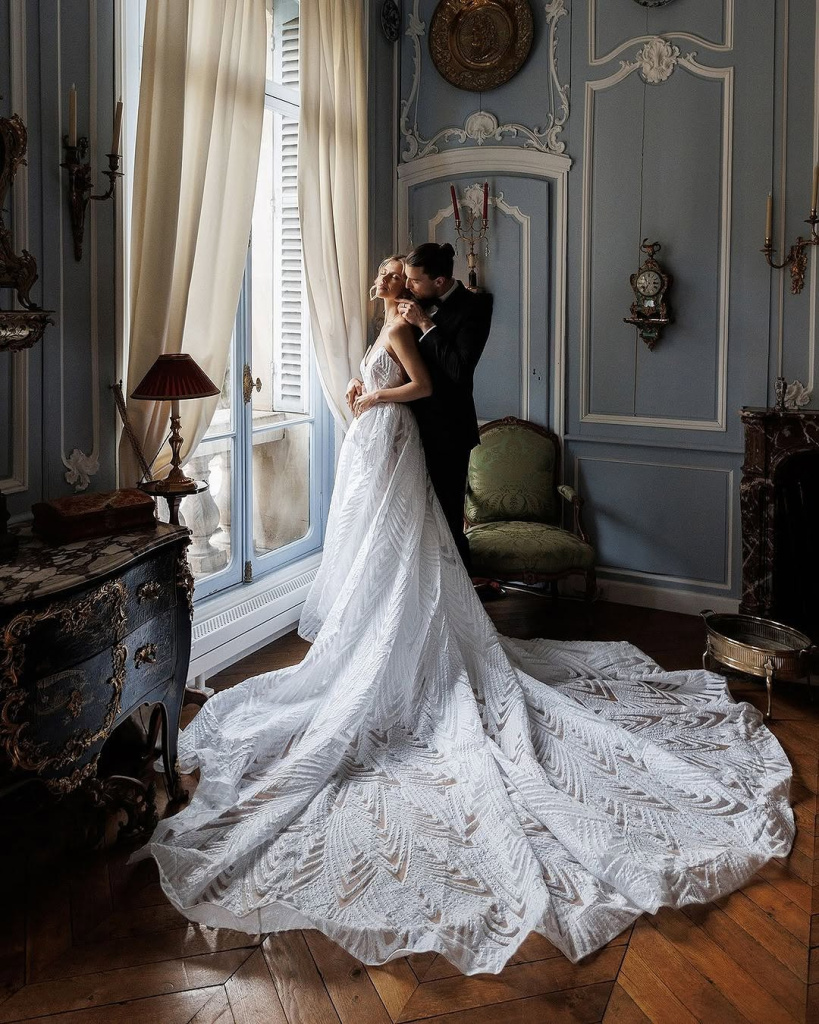
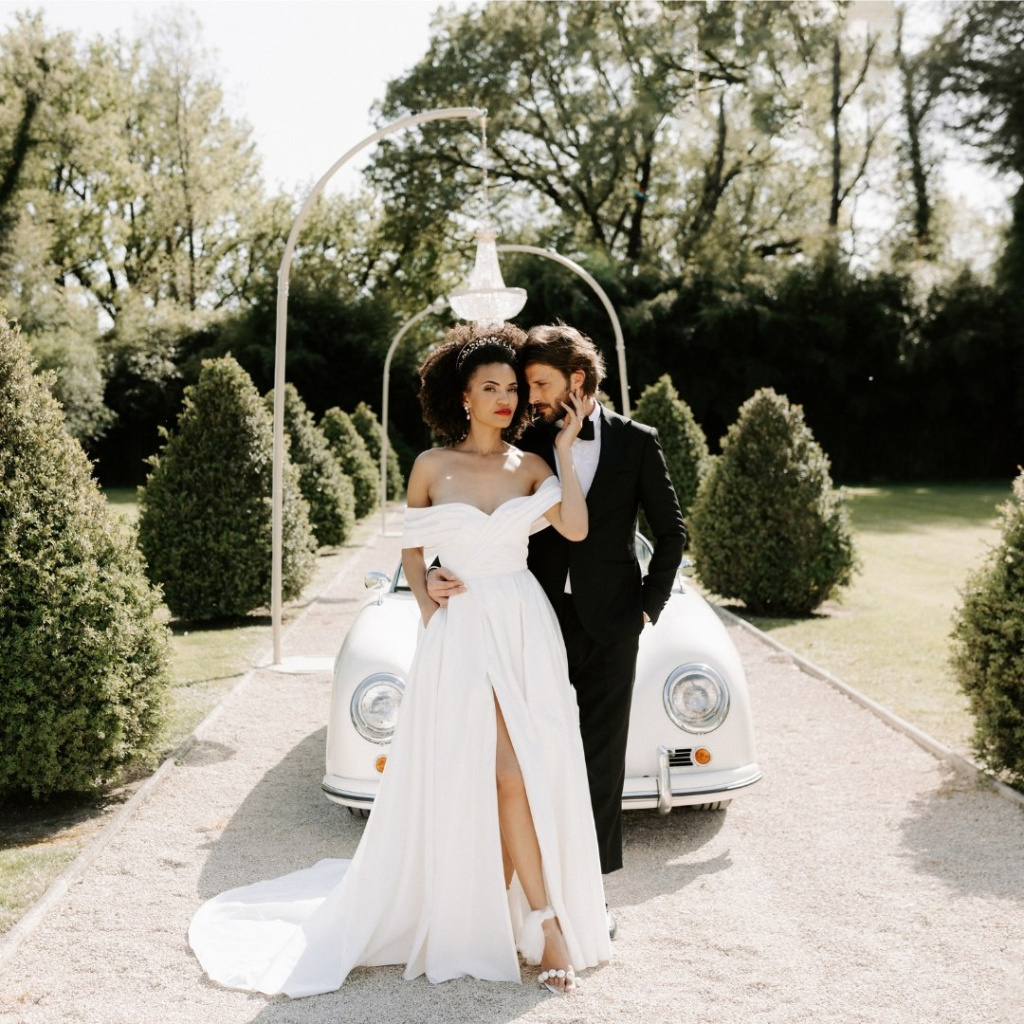

Capturing the essence of your French wedding through photography and videography is essential, as these memories will be cherished for a lifetime. In this section of our ultimate guide to planning a destination wedding in France we explore some valuable tips to ensure that the visual documentation of your day is as magical as the setting itself.
Choose the Right Professionals
Select photographers and videographers who not only have experience with destination weddings but also resonate with your aesthetic vision. Look for professionals who have previously worked in France or are familiar with the specific region where you'll be getting married. Their familiarity with the local light, scenery, and logistics can greatly enhance the quality of your photos and videos.
Review Portfolios Thoroughly
When selecting your photographer and videographer, spend time reviewing their portfolios to understand their style and approach. Look for consistency in quality, attention to detail, and the ability to capture intimate moments as well as grand landscapes. A good portfolio should tell a story that resonates with the kind of memories you want to create.
Plan Your Photography Timeline
Work with your photographer to plan the photography timeline of the day. Discuss important moments that you want to capture and make sure they align with the day’s schedule. Consider the best time for outdoor photos, especially in terms of natural lighting. For example, golden hour — just after sunrise or before sunset — offers soft, flattering light that can make your wedding photos look stunning.
Consider the Venue and Location
The choice of venue and its surroundings plays a significant role in the outcome of your photos and videos. Discuss with your photographer the best spots within and around the venue for beautiful shots. French settings such as vineyards, chateaus, and historic streets provide picturesque backdrops that are perfect for romantic and elegant shots.
Include a Pre-Wedding Shoot
Consider scheduling a pre-wedding shoot a day or two before the ceremony. This can not only help you feel more comfortable in front of the camera but also take advantage of more locations across the French landscape without the time constraints of the wedding day.
Use Drones for Unique Perspectives
For a truly spectacular recording of your venue and celebration, consider hiring a videographer who uses drone technology. Drones can capture expansive aerial views of your stunning French location, adding a dramatic and cinematic element to your wedding video.
Communicate Clearly
Ensure clear communication with your photographer and videographer. Discuss your expectations, preferred styles, key moments, and any specific requests you have for your wedding day. Effective communication will help them tailor their services to your needs.
Backup Plans for Weather
French weather can be unpredictable. Discuss with your photographer and videographer about backup plans for rain or harsh sunlight, especially if you're planning outdoor photography. They should be prepared to adapt to changing conditions to capture beautiful moments under any circumstances.
Prioritize Videography
While photography is essential, don't underestimate the power of a professionally-produced wedding video. Videos capture the movement and sound of your day, from the music at the ceremony to the laughter during speeches, preserving the atmosphere of your wedding day in a way that photos alone cannot.
Making the Most of Scenic Backdrops When Planning Your French Dream Wedding
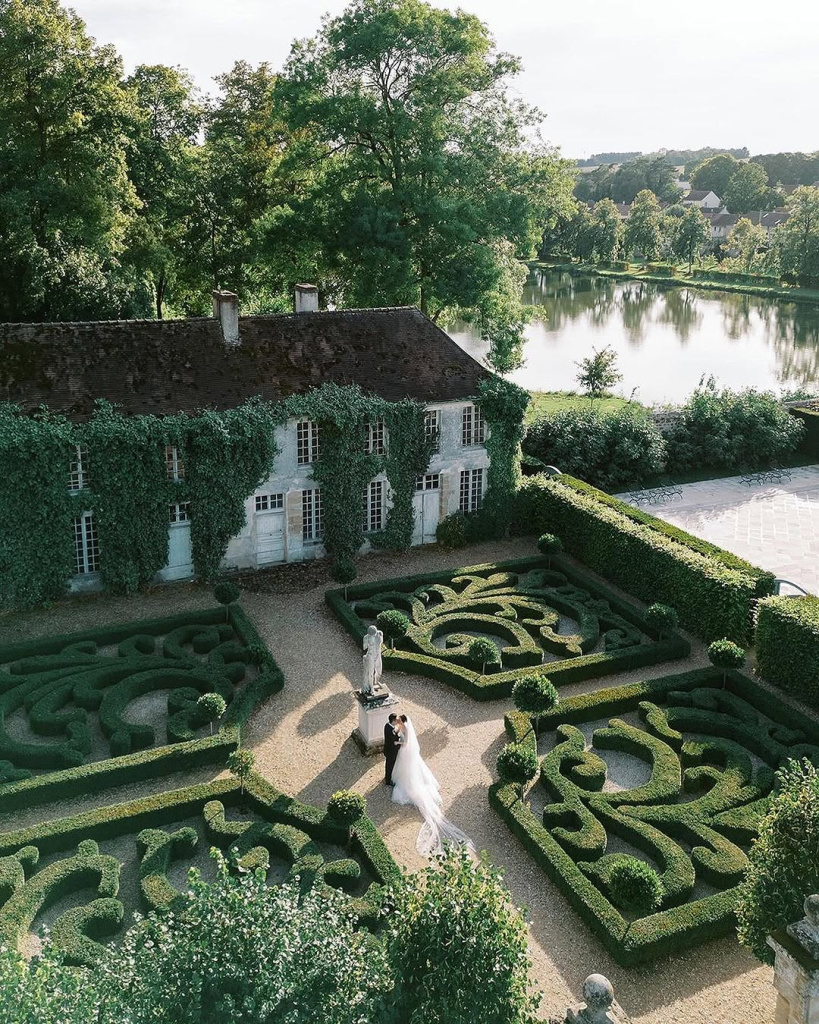
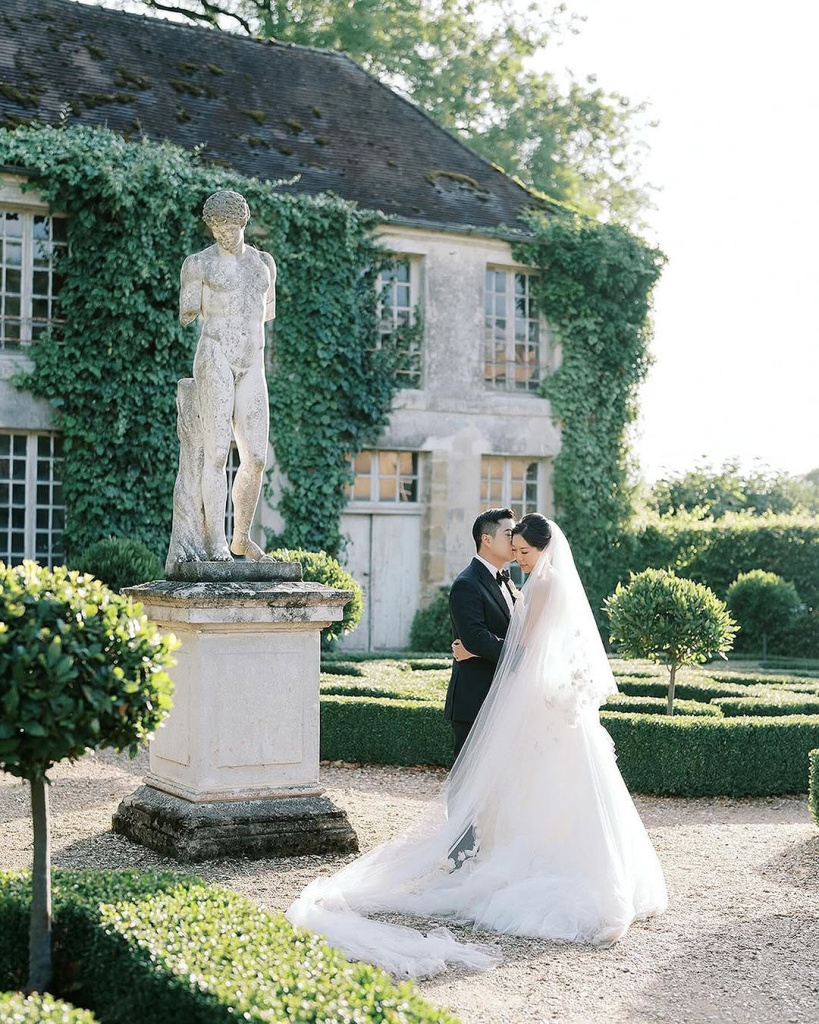
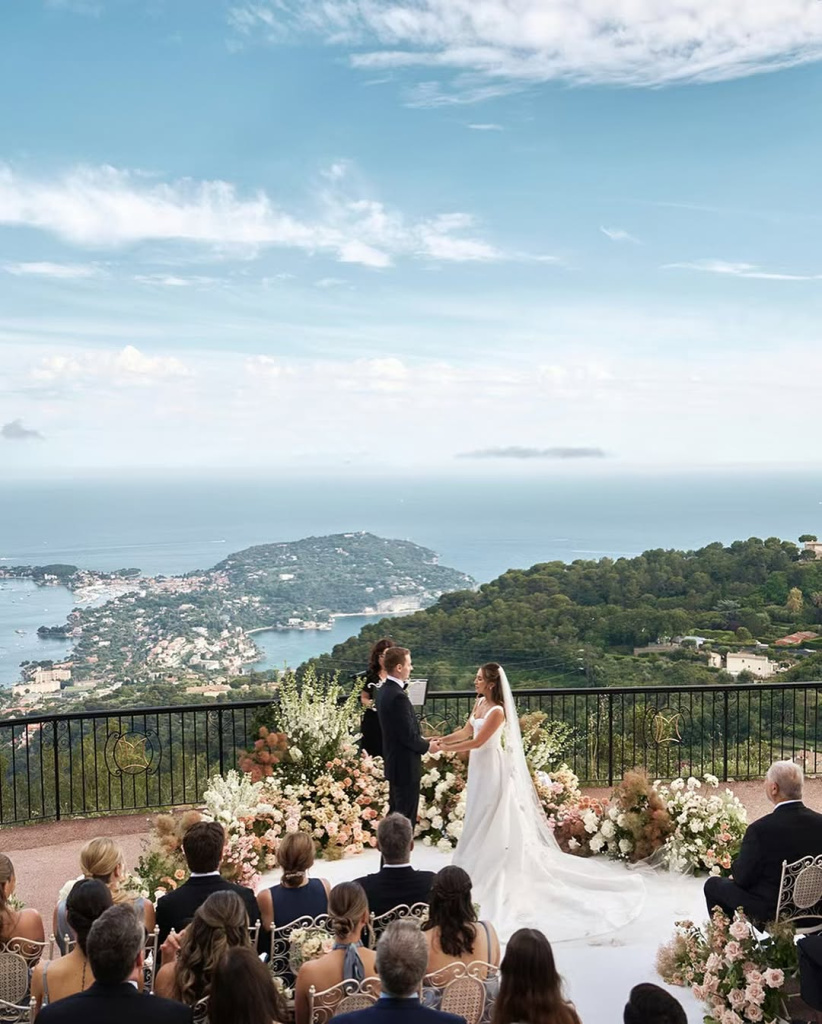
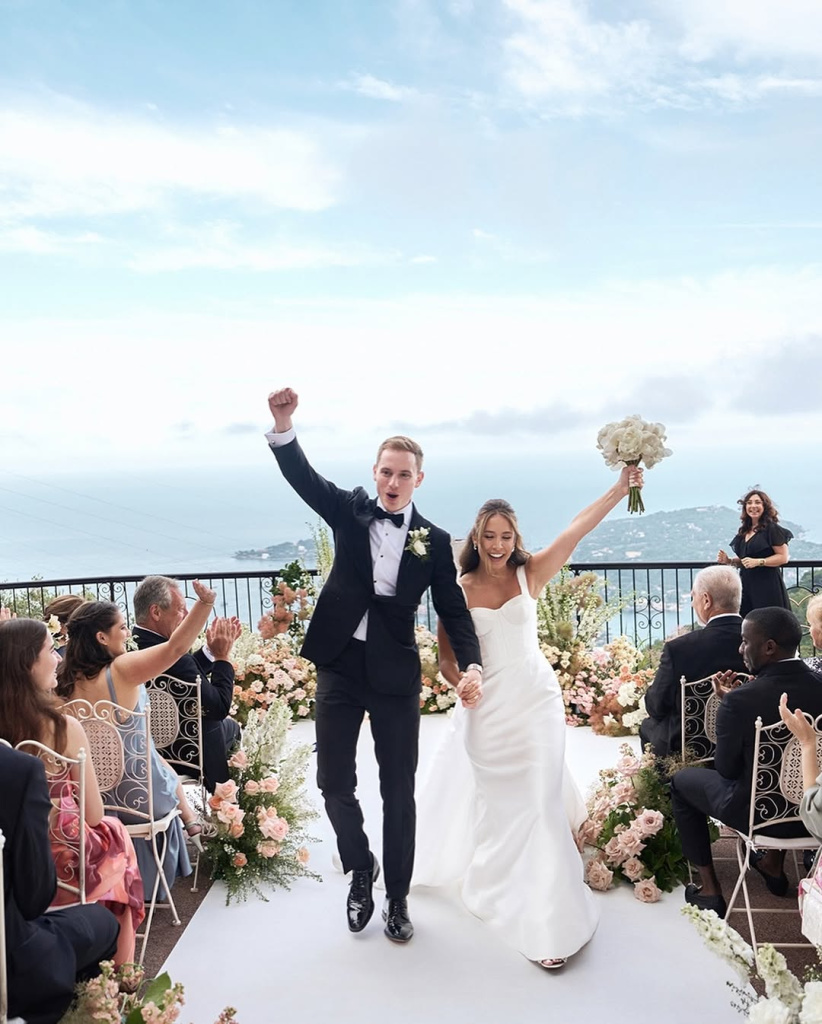
France offers an array of breathtaking landscapes that can transform your wedding into a visually stunning event. From the lush vineyards of Bordeaux to the sparkling coastlines of the Riviera, the country's diverse scenery provides endless opportunities for beautiful and memorable wedding settings.
Time Your Ceremony with Natural Lighting
The right lighting can dramatically enhance the natural beauty of your venue and create stunning photographs. Plan your ceremony around the time of day when the light is most flattering. Many photographers recommend scheduling important photo sessions during the golden hour—the first hour after sunrise or the last hour before sunset—when the light is soft and golden, perfect for adding a magical touch to your backdrop.
Incorporate Local Nature into Your Decor
Incorporating elements of the local scenery into your wedding decor can create a cohesive and immersive environment. Use local flowers, plants, and materials that reflect the landscape. For example, adorn your tables with olive branches and lavender in Provence, or use sea shells and driftwood for a wedding on the French Riviera.
Plan for the Weather
The diverse regions of France can have very different weather patterns, and it’s important to plan accordingly. If you’re getting married in a northern region like Normandy, have contingencies for rain. For a summer wedding in the south, consider ways to keep guests cool, like providing parasols or hosting the ceremony in a shaded area.
Use Scenic Views for Dramatic Effect
Consider the layout and viewing angles of your venue to maximize the impact of its scenic surroundings. Arrange the seating or the focal point of the ceremony in a way that overlooks a breathtaking view, such as a cliffside vista of the ocean or a panoramic view of the Alps. This not only enhances the guest experience but also provides a stunning backdrop for your ceremony and photographs.
Highlight Regional Architecture
France's architecture is as varied as its landscapes, offering another layer of aesthetic appeal. Whether it’s the quaint cottages of Alsace or the grand châteaux of the Loire Valley, incorporating these architectural elements into your wedding visuals can add a sense of place and history to your celebration.
Plan Scenic Excursions for Guests
Make the scenic backdrop a part of the overall wedding experience by planning pre-wedding or post-wedding excursions that showcase the region’s beauty. Whether it's a wine tasting in Bordeaux’s vineyards or a boat trip along the Côte d'Azur, these activities not only entertain guests but also allow them to fully experience the charm and beauty of your wedding location.
Essentials for Planning a Destination Wedding: Finding the Perfect Florist
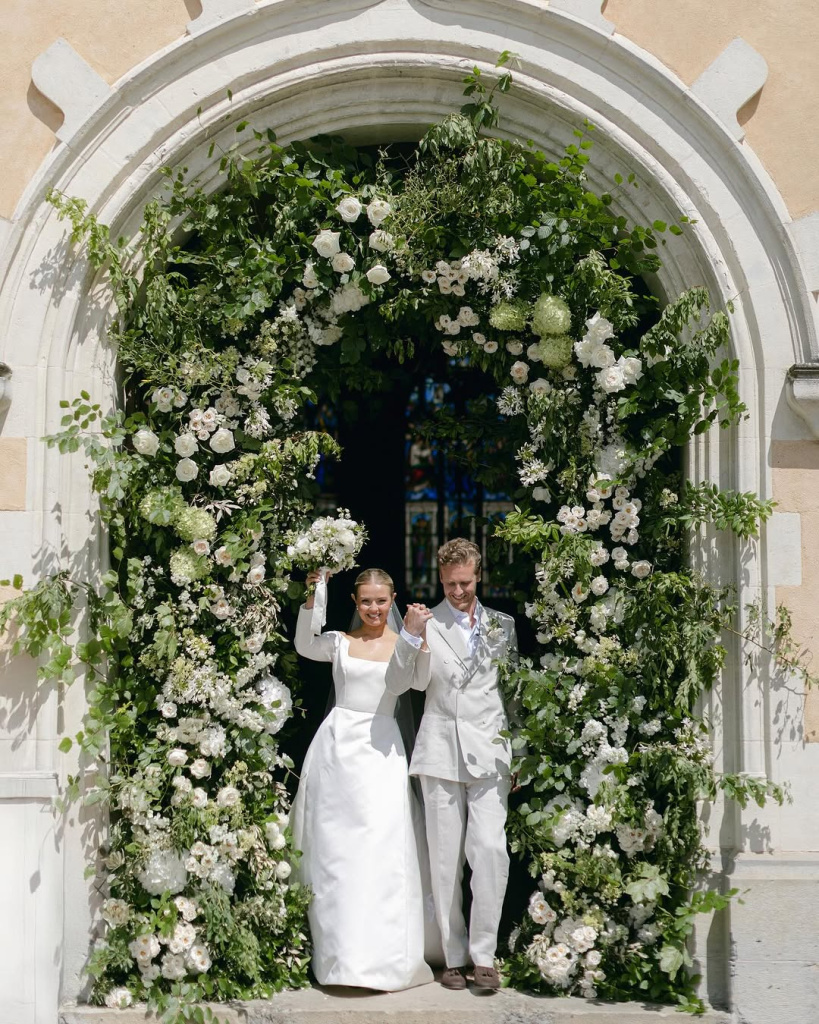
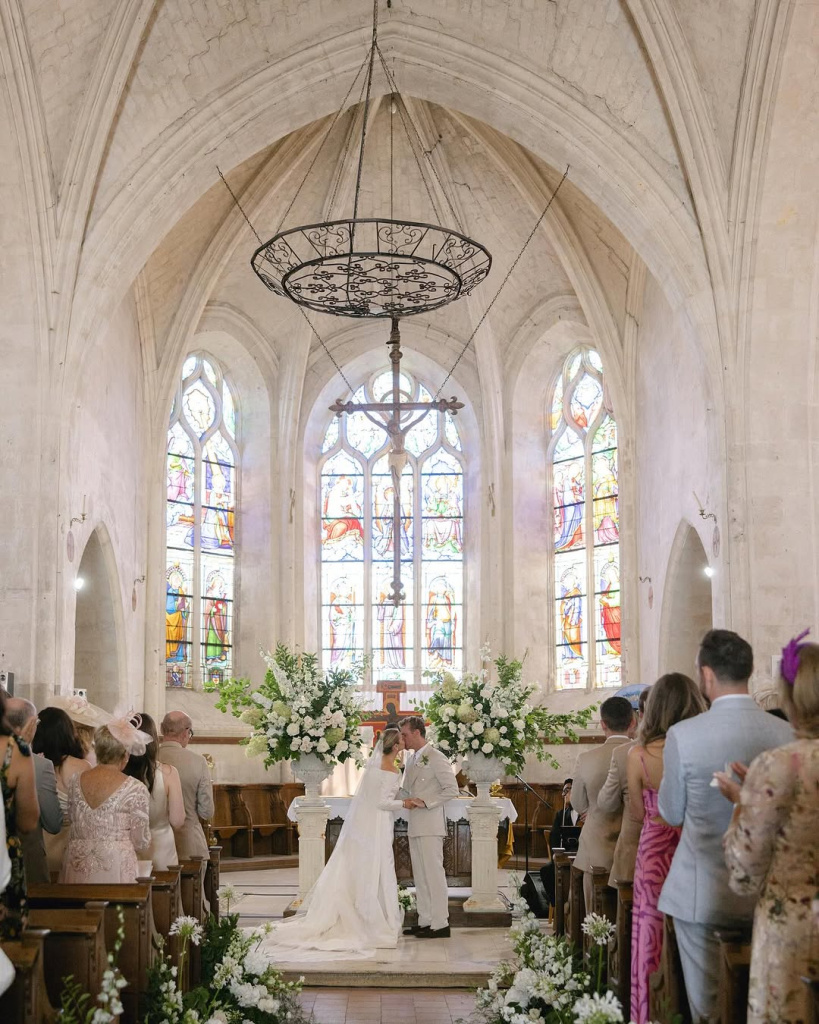
Finding the right florist is crucial in bringing the aesthetic of your French destination wedding to life. Flowers not only add beauty and color to your wedding but also help define the tone and style of the celebration.
Understand Your Floral Vision
Start by defining your floral preferences and the overall style you envision for your wedding. Whether you’re drawn to rustic wildflower arrangements, sophisticated roses, or lush greenery, having a clear vision will help you and your florist create a cohesive floral theme.
Research Local Florists
Look for florists who specialize in weddings and have experience with the type of flowers and arrangements you want. Check their portfolios for previous work that aligns with your style. Reading reviews and testimonials from other couples can also provide insight into their reliability and quality of service.
Consider the Seasonality of Flowers
Selecting flowers that are in season during your wedding not only ensures the freshest blooms but can also help reduce costs. Discuss with your florist which flowers will be available locally around your wedding date. This is particularly important in France, where local and seasonal flowers are often a focal point of wedding decor.
Coordinate with Your Venue
Ensure that your floral designs complement the venue’s aesthetics. For instance, a château might lend itself to opulent, dramatic floral displays, while a beachside setting might call for lighter, breezier arrangements. Your florist should be able to suggest flowers and styles that enhance the venue’s natural beauty and ambiance.
Discuss Budget and Logistics
Be upfront about your budget. Flowers can become a significant expense, so it’s important to discuss your budget limitations with your florist. Additionally, consider the logistics of flower delivery and setup, especially if your wedding venue is in a remote location. Make sure your florist is capable of handling these aspects efficiently.
Plan a Site Visit
If possible, plan a visit to the florist and potentially to the venue with them. This allows your florist to get a sense of the space and propose flower arrangements that fit perfectly within the physical context of your venue.
French Destination Wedding Planning Tips: Music and Entertainment Options
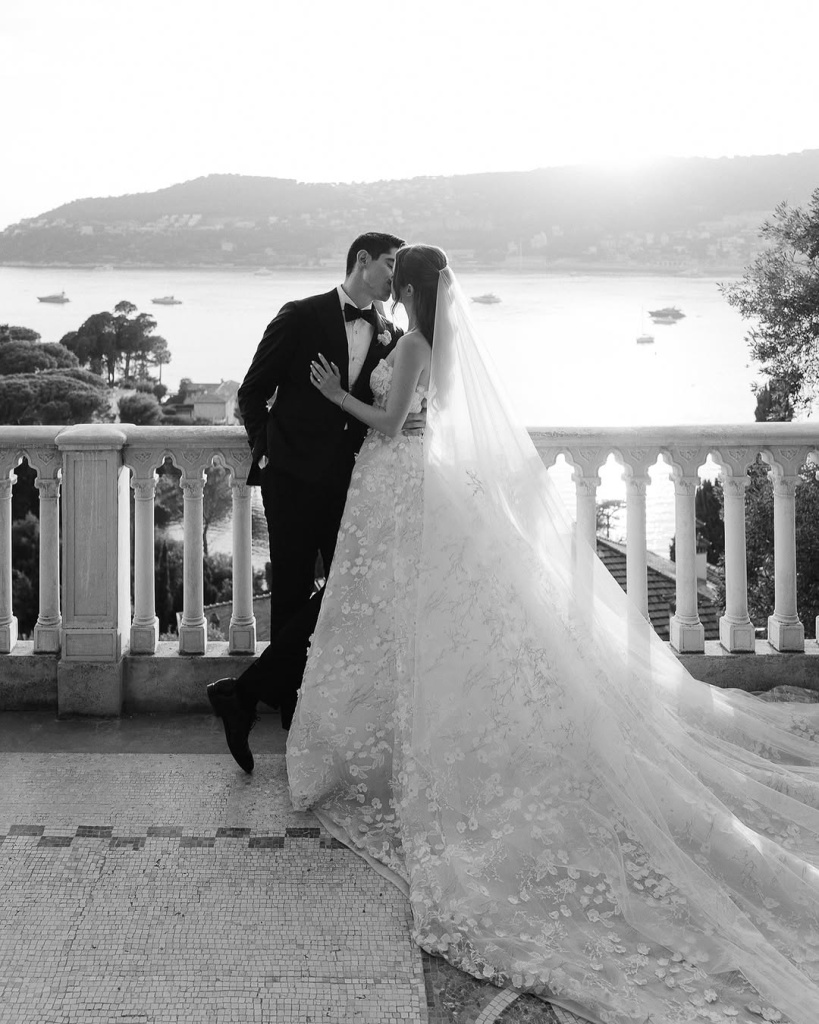
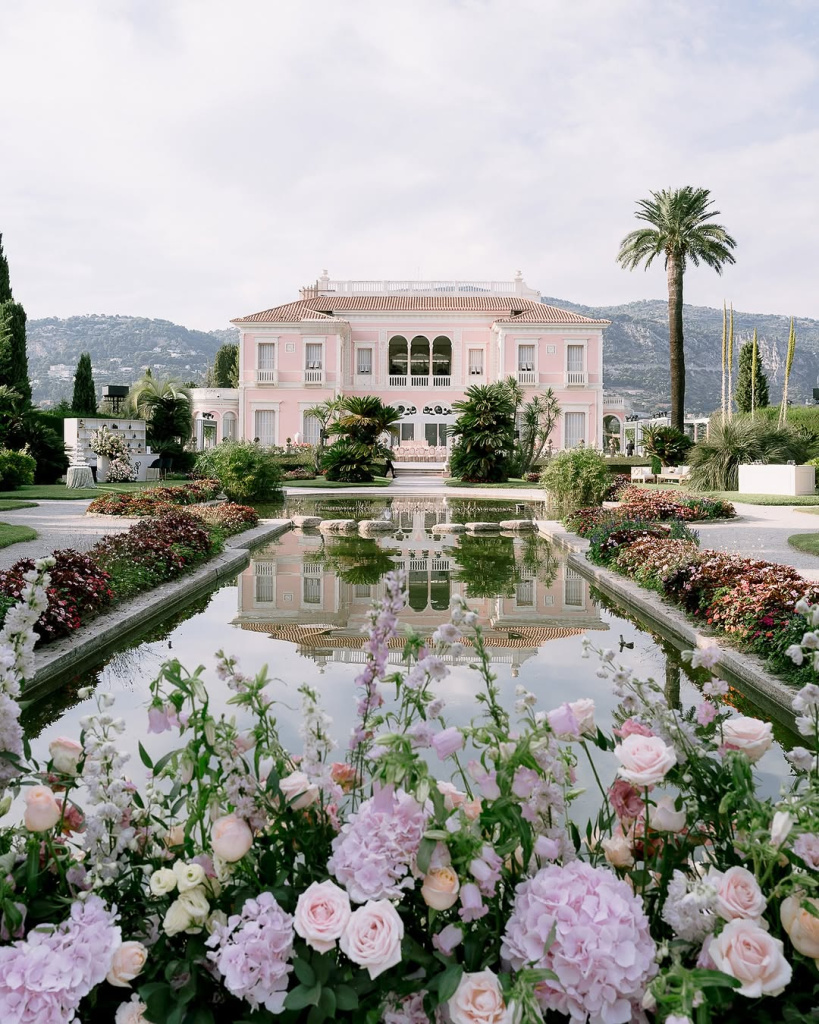
Music and entertainment are essential components of a wedding, setting the tone and enhancing the festive atmosphere. Here’s how to choose the right music and entertainment for your destination wedding in France.
Define the Mood
Decide on the type of ambiance you want to create. Whether you’re looking for a lively, upbeat atmosphere or a more formal, subdued setting will guide your choices in music and entertainment.
Explore Local Talent
France is rich with musical talent, offering a range of options from classical musicians and jazz bands to DJs and folk singers. Consider hiring local artists to give your wedding an authentic French touch. This can also be a practical choice, reducing costs associated with transporting performers from abroad.
Venue Considerations
Make sure your entertainment choices are suitable for your venue. Check any sound restrictions or space limitations your venue might have. For example, a historic venue might have sound level restrictions which could affect your choice of band or DJ.
Plan the Entertainment Schedule
Structure your entertainment to match the flow of the event. You might want a string quartet for the ceremony, a jazz band for the cocktail hour, and a DJ for the dancing portion of the evening. Timing your entertainment correctly can help maintain energy and ensure guests are engaged throughout the celebration.
Audio Equipment
Check if your venue provides the necessary audio equipment, or if you’ll need to rent equipment separately. Sometimes, bands and DJs have their own equipment, but verifying this in advance will avoid last-minute surprises.
Destination Wedding Essentials: Crafting an Authentic French Wedding Menu
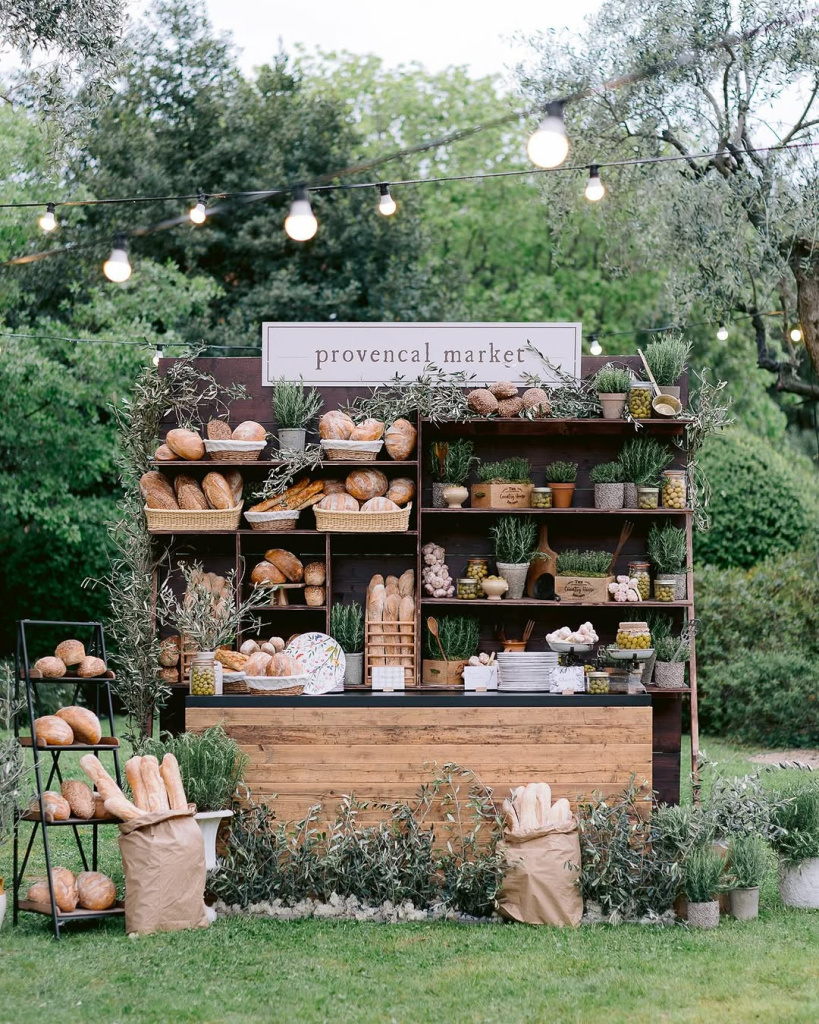
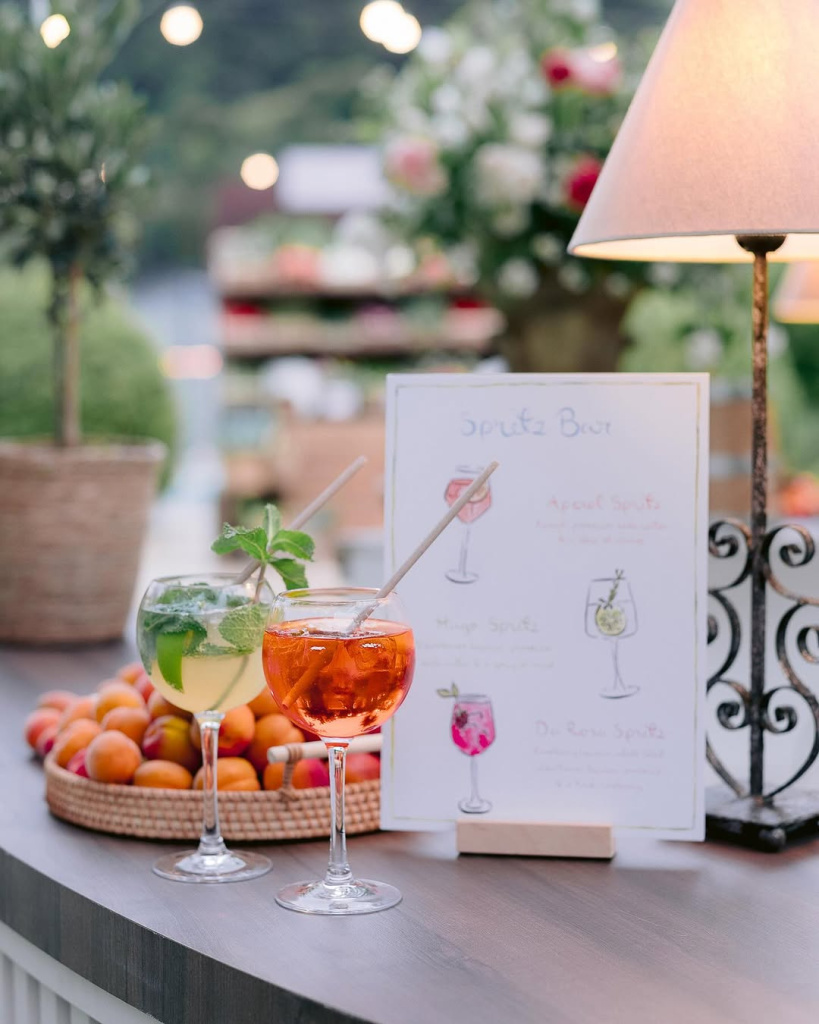
Creating a wedding menu that reflects the culinary traditions of France can be a delightful part of learning how to plan a destination wedding in France, enhancing the authentic ambiance of your celebration. French cuisine, renowned for its diversity and quality, offers a fantastic way to impress your guests and make your event truly special. Here’s how to craft an authentic French wedding menu that tantalizes the taste buds and pays homage to regional specialties.
Understand Regional Culinary Traditions
France is celebrated for its regional culinary diversity. From the seafood of Normandy to the rich, hearty dishes of Alsace and the light, Mediterranean flavors of Provence, each region offers unique specialties. Start by considering the location of your wedding and incorporate local dishes that highlight the best of what the region has to offer.
Collaborate with a Local Chef
Partner with a local chef or catering service that specializes in French cuisine. A local culinary expert will not only provide authentic dishes but also ensure that ingredients are fresh and of the highest quality. They can guide you through the process of selecting dishes that are seasonally appropriate and cater to your personal tastes while still being authentically French.
Plan a Tasting Menu
Consider offering a tasting menu that allows guests to experience a variety of French flavors. This could include a sequence of small plates featuring everything from classic French hors d'oeuvres like escargot and foie gras to regional cheeses and pastries. A tasting menu is particularly effective as it caters to diverse tastes and can be a conversation starter among guests.
Focus on Seasonal and Local Ingredients
Emphasize seasonal and locally sourced ingredients to enhance the flavor and quality of your dishes. France's markets are full of fresh produce, cheeses, meats, and seafood that reflect the seasons. Utilizing these ingredients not only supports local producers but also provides guests with the freshest possible dining experience.
Include French Wine and Spirits
No French menu is complete without a selection of French wines and spirits. Pair each course with a suitable wine that complements the flavors of the dish. Consider incorporating a Champagne toast, a selection of French wines, and even regional spirits like Cognac or Calvados for digestifs. If possible, arrange a wine tasting session with your caterer or a local sommelier to carefully select wines that match your menu.
Offer a Signature French Dessert
End the meal on a high note with a classic French dessert. Options like crème brûlée, tarte tatin, or a croquembouche (a traditional French wedding cake made from choux pastry balls piled into a cone and bound with threads of caramel) are popular choices that can be both visually stunning and delicious.
Ensuring Seamless Communication with Vendors
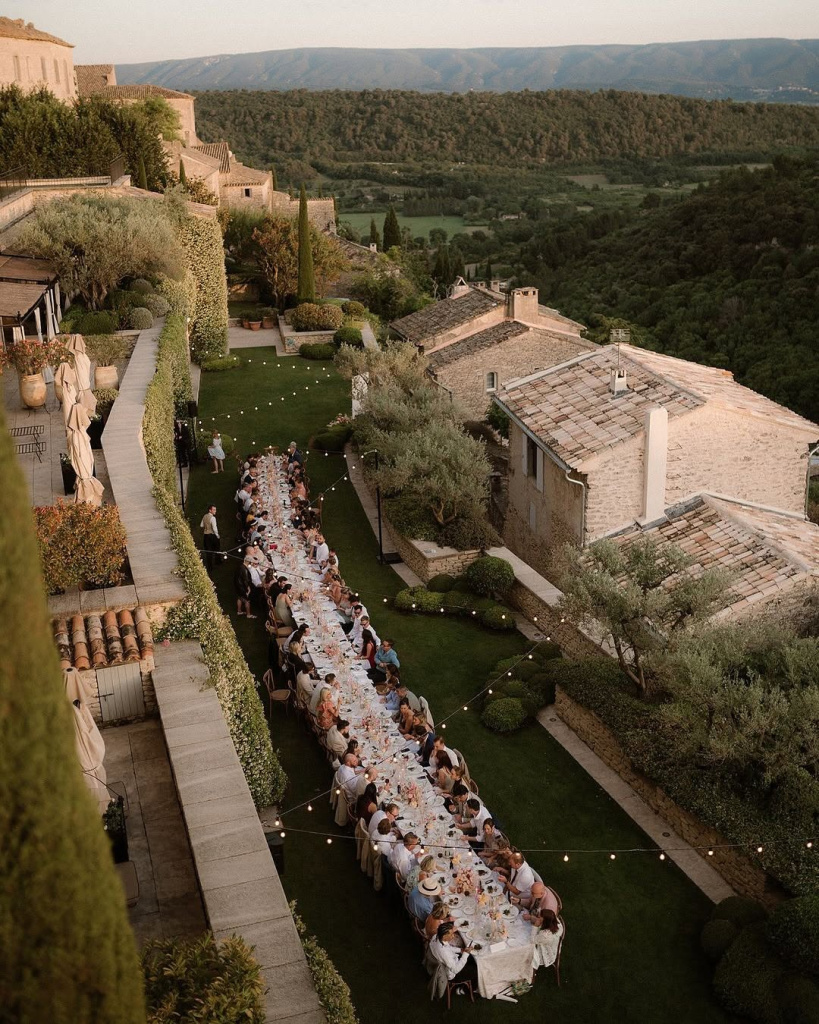
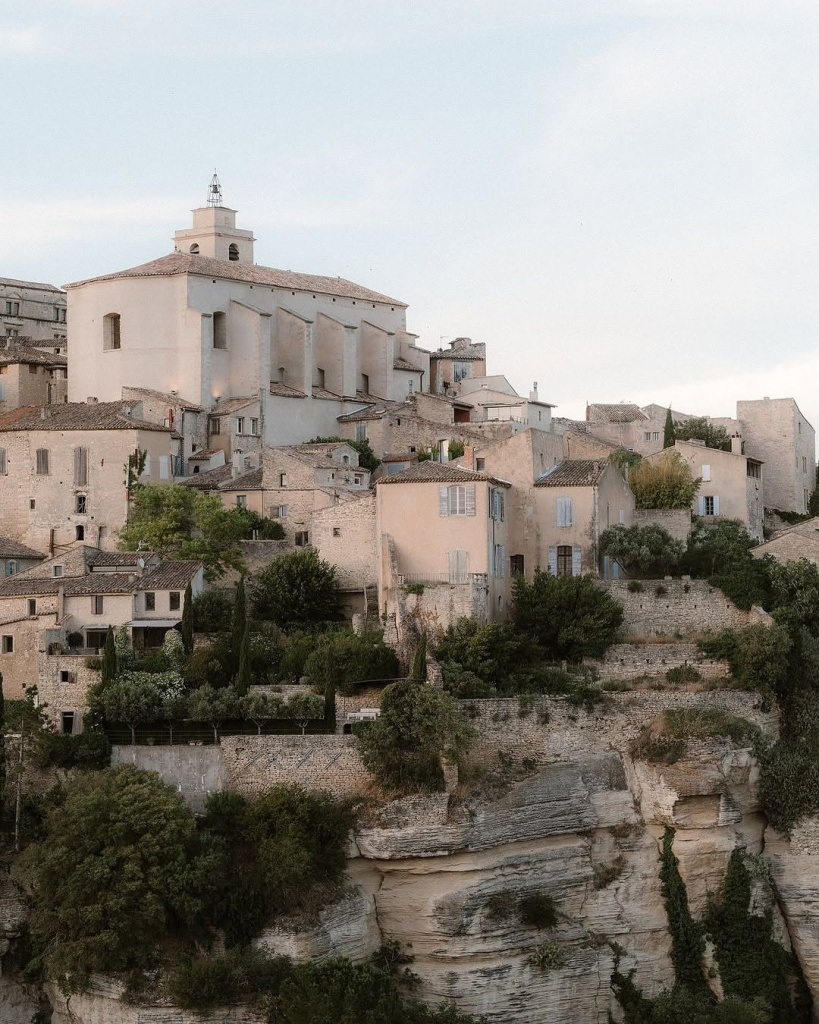
Effective communication with your vendors is one of the essentials of planning your dream French wedding. Ensuring that every detail is communicated clearly is crucial for the seamless execution of your big day. Here are key strategies to maintain clear and effective communication with your vendors:
- Use Technology: Utilize communication tools like email, video calls, and messaging apps to maintain clarity and keep records of discussions.
- Language Services: If you’re not fluent in French, consider hiring a bilingual coordinator or using translation services to avoid miscommunications.
- Regular Updates: Schedule regular check-ins with your vendors to discuss progress and changes. This keeps everyone on the same page and builds a reliable working relationship.
- Detailed Contracts: Ensure all agreements with vendors are detailed in written contracts. This includes timelines, costs, and specific expectations to avoid any misunderstandings.

Personalized Wedding Décor and Themes
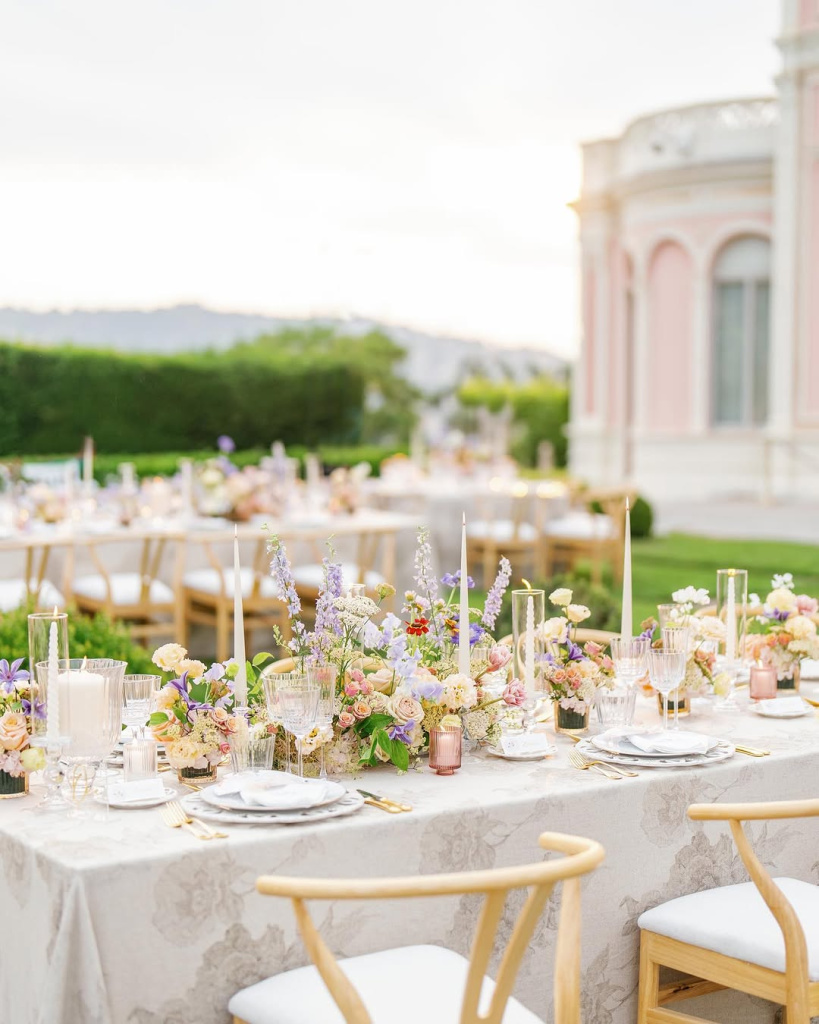

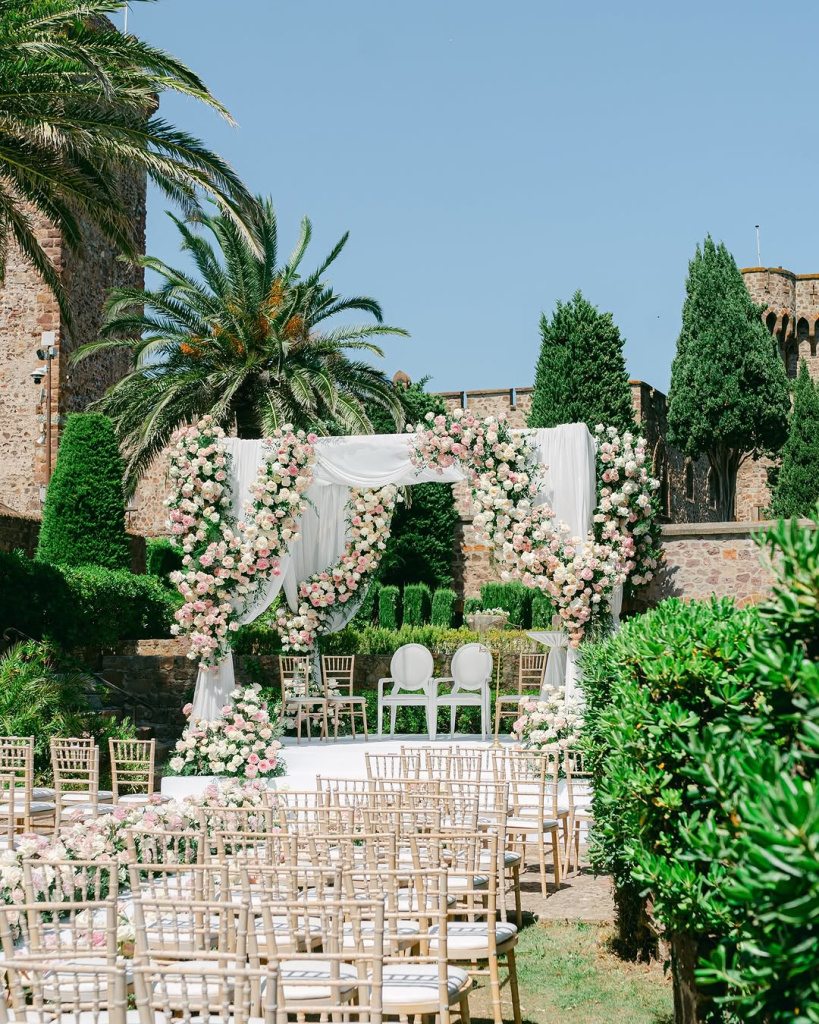
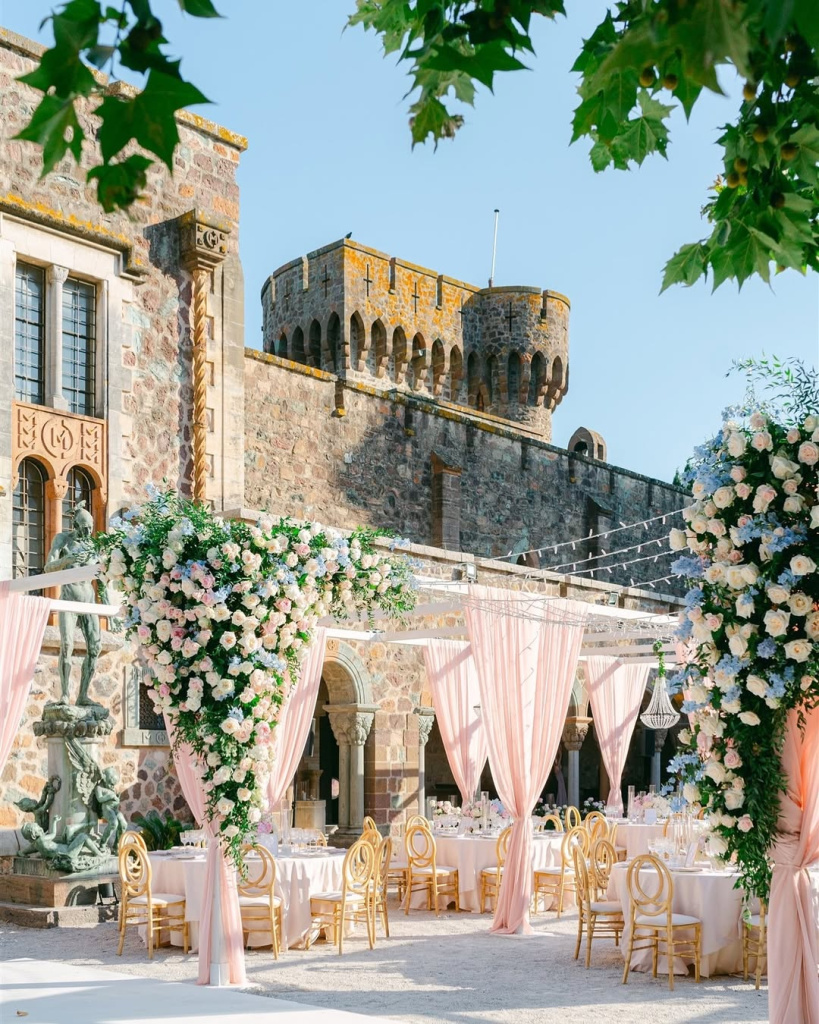
Decor and themes that reflect your personal style are central elements of any destination wedding planning guide, making your wedding truly memorable. Here’s how to personalize your wedding décor and themes to ensure your special day feels uniquely yours:
- Incorporate Personal Elements: Use symbols or items that are meaningful to your relationship, such as colors from a memorable date or decorations that hint at shared interests or stories.
- Custom Signage: Create custom signs for seating arrangements, welcome boards, or cocktail menus, using your wedding motif or monogram.
- DIY Elements: Add a touch of personality with DIY décor elements, whether it’s handcrafted table centerpieces or homemade favors.
- Themed Photo Booths: Set up a photo booth that matches your wedding theme, complete with props and backgrounds that encourage guests to take memorable photos.
- Unique Table Settings: Design table settings that reflect your theme, using custom place cards, unique napkin rings, or centerpiece designs that stand out.
- Heritage Elements: Integrate aspects of your or your partner's cultural heritage into the décor, such as using traditional fabrics for tablecloths or featuring art from your backgrounds in the venue design.
- Memory Lane: Create a photo walkway featuring pictures from different stages of your relationship or from the lives of your loved ones to add a nostalgic and intimate touch.
- Favorite Quotes: Use your favorite literary quotes or lyrics as part of the décor, such as on centerpieces, the invitations, or even written on a welcome sign at the entrance.
- Seasonal Themes: Reflect the season of your wedding in your décor. For a fall wedding, use autumn leaves and pumpkins; for a spring wedding, use fresh flowers and pastel colors.
Sustainable and Eco-Friendly Wedding Ideas
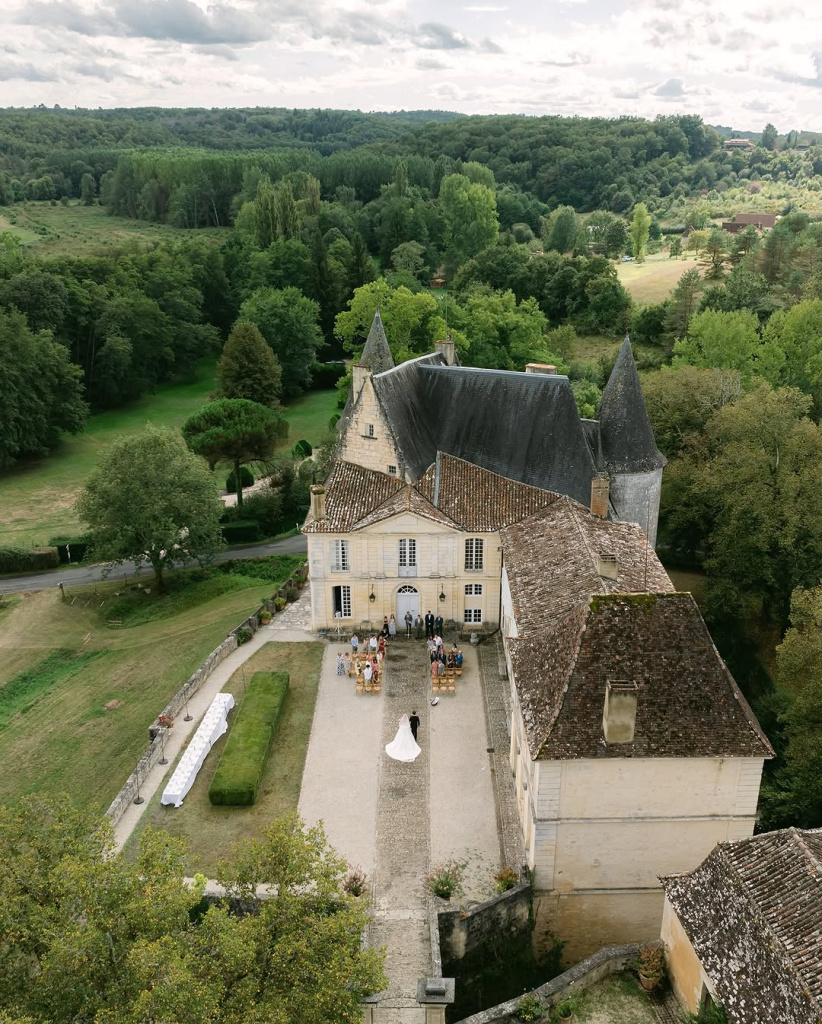
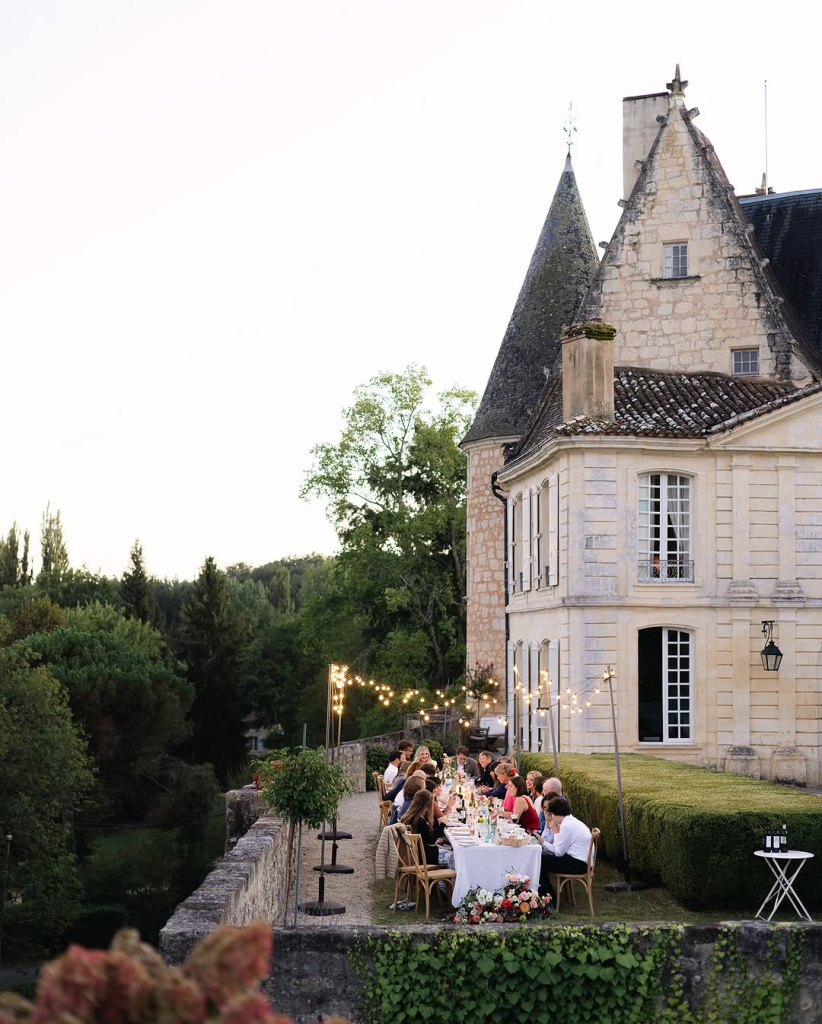
Planning a sustainable wedding not only helps the environment but also adds a meaningful layer to your celebration. Here are eco-friendly ideas to consider:
- Local and Organic Menu: Choose a menu with local and organic ingredients to reduce the carbon footprint and support local agriculture.
- Recycled or Biodegradable Décor: Opt for decorations made from recycled or biodegradable materials. Consider renting items rather than buying new.
- Digital Invitations: Use digital invitations for save-the-dates and wedding updates to reduce paper waste.
- Eco-Friendly Venues: Select venues that prioritize sustainability, such as those powered by renewable energy or those that offer recycling programs.
- Charitable Donations: Instead of traditional wedding favors, consider making a donation to an environmental charity in the name of your guests.
- Sustainable Invitations: Opt for plantable seed paper for your invitations, which guests can later plant in their gardens.
- Eco-Friendly Confetti: Replace traditional confetti with biodegradable alternatives like dried flower petals or birdseed, which are both beautiful and environmentally friendly.
- Green Transportation: Encourage guests to carpool, or arrange for group transportation like buses or shared rides to reduce carbon emissions.
- Eco-Favors: Give guests eco-friendly favors such as small potted plants, homemade jams in reusable jars, or personalized reusable shopping bags.
Exploring French Wedding Dress Trends

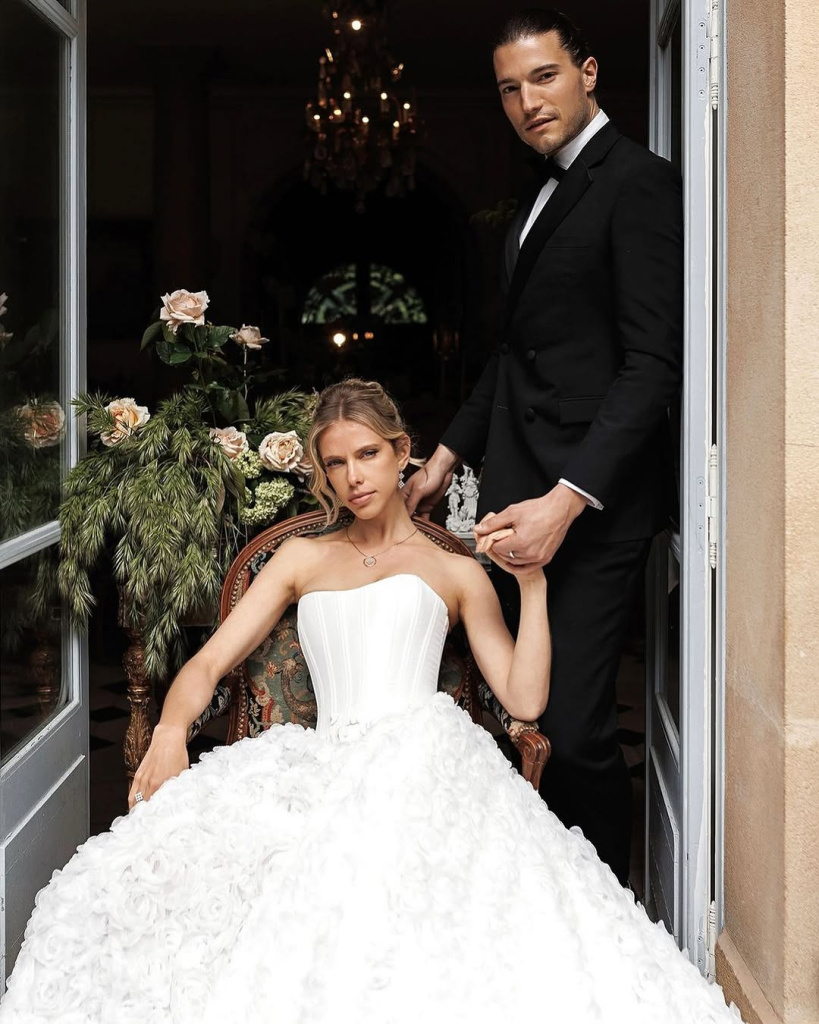
When it comes to the ultimate guide to planning your dream destination wedding in France, selecting the perfect wedding dress that resonates with French elegance is crucial. French wedding dress trends are renowned for their sophistication and a blend of timeless charm with contemporary fashion. Here’s a look at the latest trends in French bridal couture, which play a pivotal role in enhancing the romantic atmosphere of your special day.
Minimalist Elegance
There’s a growing trend toward minimalist designs that focus on exquisite craftsmanship and high-quality fabrics without excessive embellishment. These gowns often feature clean lines, simple silhouettes, and a focus on perfect fits. This style reflects a chic, understated elegance that is very much in line with the classic French approach to fashion.
Vintage Revival
Many French designers are drawing inspiration from the past, creating gowns that reflect vintage styles from the 1920s to the 1970s. These dresses often incorporate lace, silk, and intricate embroidery, offering a nostalgic appeal combined with modern tailoring. This trend is perfect for brides who love a historical touch with contemporary comfort.
Bold Femininity
There's an emergence of designs that play with traditional concepts of femininity through bold structures and details. This includes dramatic puff sleeves, deep V-necks, and unexpected cut-outs, all while maintaining an overall delicate and romantic feel. These designs cater to brides looking to make a strong yet graceful statement.
Ethereal and Flowy Fabrics
Soft, flowing fabrics like tulle and chiffon are being used to create ethereal and dreamy silhouettes. These materials lend themselves to designs that move beautifully and offer a fairy-tale aesthetic that many brides desire. They are often seen in dresses with layered skirts or those with a gentle, fluid drape.
Detailed Backs and Sleeves
Designers are paying more attention to the parts of the dress that often go unnoticed. Intricate details on the backs and sleeves of wedding dresses, such as buttons, lace overlays, and embroidered accents, are becoming focal points. This trend caters to the visual impact during the ceremony, where the back of the bride's dress is often in view.
Color Infusions
While white remains a classic choice, there is an increasing openness to incorporating colors. Soft pastels, nude undertones, and even floral patterns are being embraced by French designers, offering brides more personalized options that break away from traditional norms.
Incorporating French Traditions and Customs
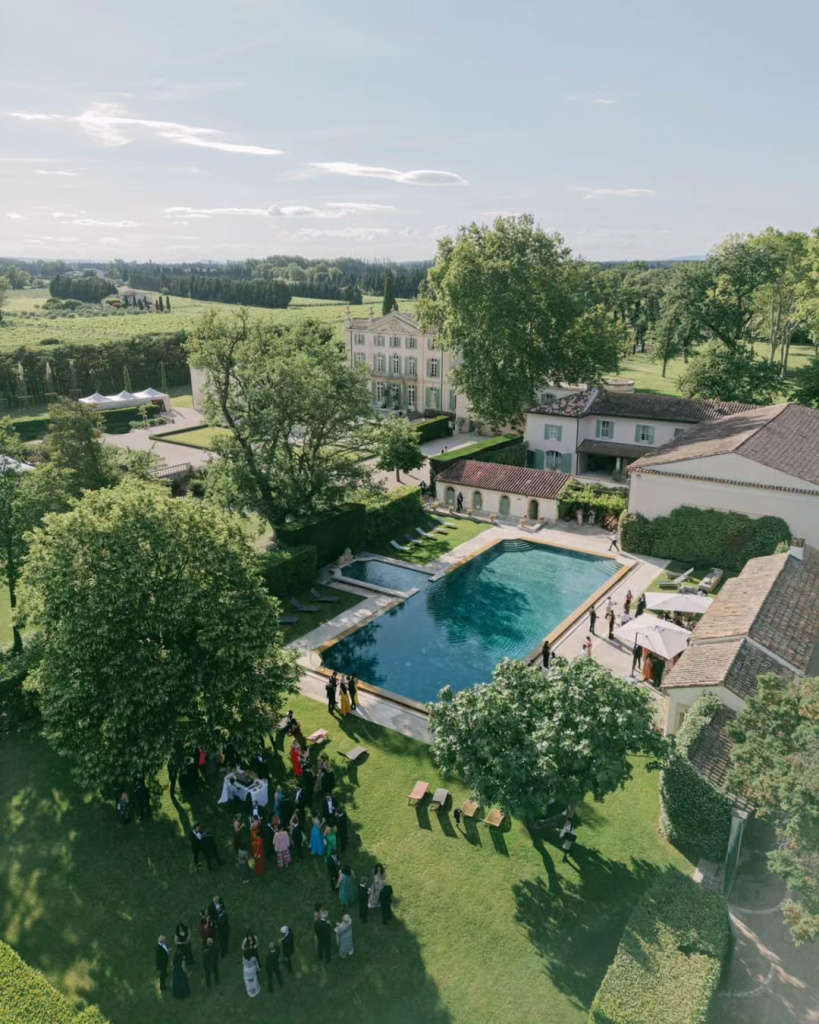
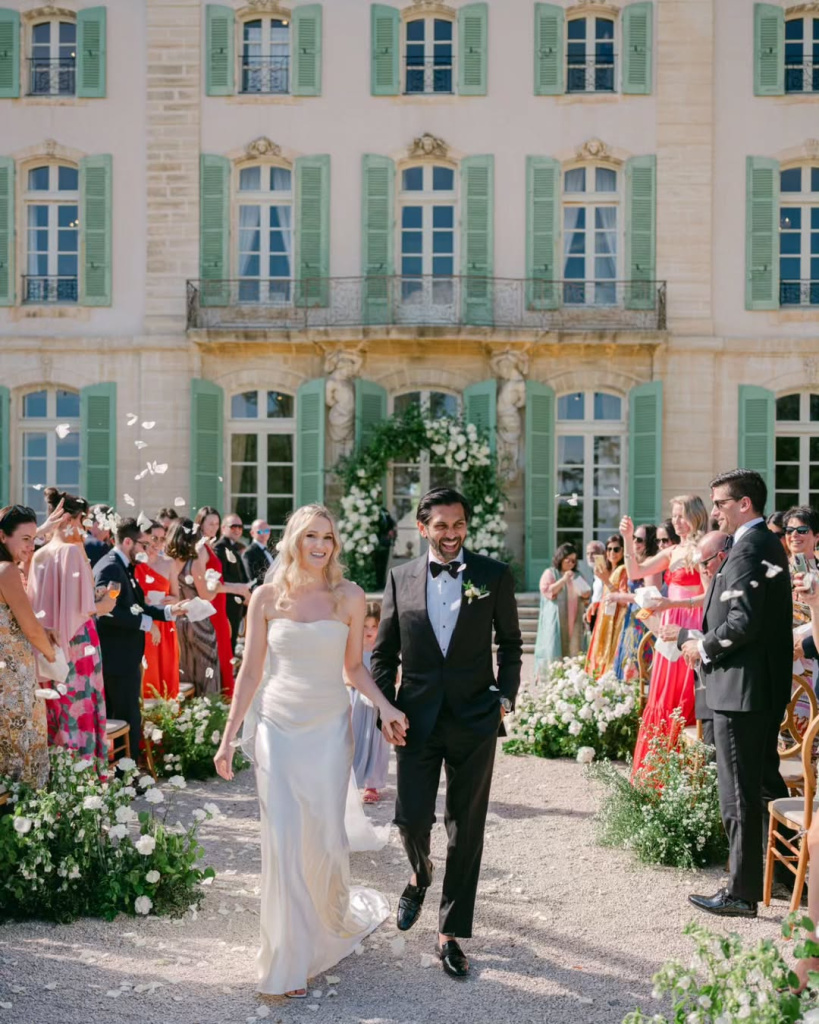
The next part of our ultimate guide to planning a wedding in France is about incorporating local traditions and customs into your wedding. In fact, it is a beautiful way to honor the cultural heritage of France and add a unique and meaningful dimension to your celebration. Here are some cherished French traditions and customs that you can consider including in your destination wedding in France.
Le Vin d'Honneur
"Le Vin d'Honneur" is a traditional French reception held before the official wedding dinner. It's an extended cocktail hour where guests who aren't invited to the wedding dinner can come to toast the couple. This gathering often includes Champagne, canapés, and light refreshments, allowing the bride and groom to greet and socialize with guests in a less formal setting.
La Mairie
In France, it's legally required to have a civil ceremony at the local town hall ("mairie") before any religious or symbolic ceremony. This tradition underscores the importance of the legal aspect of marriage in French culture, and it can be a unique experience for couples from other countries.
Les Dragées
French weddings often feature "les dragées" as favors. These are sugar-coated almonds that symbolize good luck and are given to guests as a token of gratitude and friendship. The almonds typically come in an elegant pouch or box, which can be personalized to match your wedding theme.
La Piece Montée
The traditional French wedding cake is not a cake at all but a "croquembouche," a tower of cream-filled, caramel-glazed profiteroles. It's often spectacularly presented, sometimes with fireworks or sparklers, and is a centerpiece of the reception.
La Soupe à l'Oignon
This is a fun and hearty tradition where onion soup is served in the early hours of the morning, especially after a long night of dancing and revelry. It's meant to revive guests and give them energy to continue celebrating.
The Saber Champagne Opening
A dramatic way to kick off the reception is to open a Champagne bottle with a saber, a tradition that dates back to the Napoleonic era. It's a show-stopping performance and definitely a memorable moment.
Bridal Procession through the Village
In some rural parts of France, it's customary for the wedding procession to walk through the village on the way to the ceremony location. Local residents may join in or watch from their homes, creating a community celebration feel.
The Essential Guide to Planning Your Dream Destination Wedding in France: Cultural Etiquette and Expectations
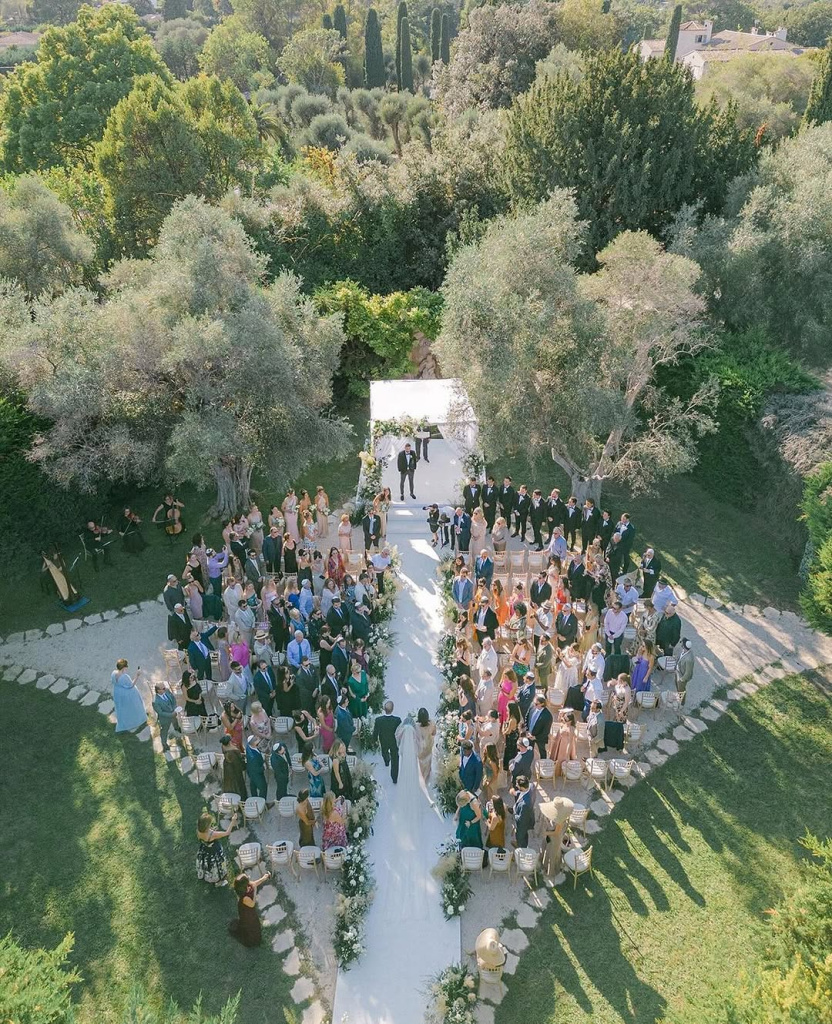
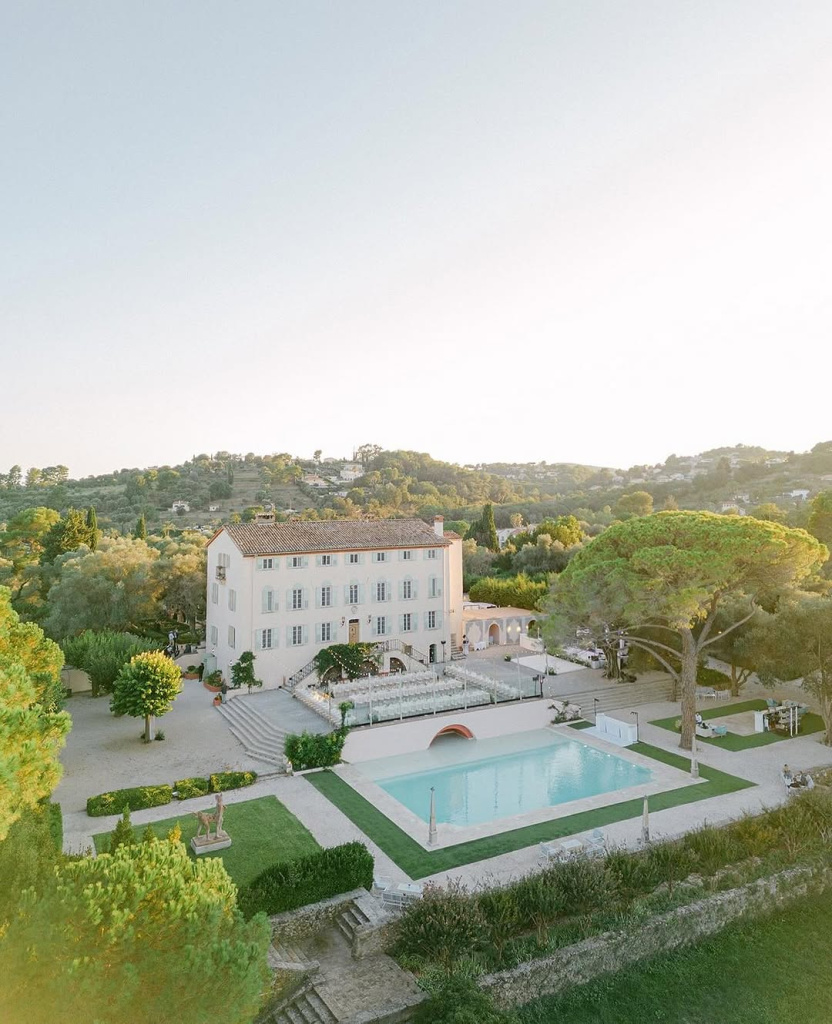
Understanding and adhering to French cultural etiquette is crucial when planning your dream destination wedding in France. Here are key etiquette and cultural expectations to consider ensuring your celebration respects local customs and traditions:
- Formal Attire: French weddings often lean towards formal attire. It’s advisable to specify a dress code on your invitations, such as "black tie" or "cocktail attire," to align with local expectations.
- Punctuality: While some cultures are more relaxed about timing, punctuality is respected in France. It's important for the wedding party and guests to arrive on time for both the civil and any religious or celebratory ceremonies.
- Language Considerations: Even if you provide translations or conduct ceremonies in English, incorporating some French phrases or traditions is appreciated and shows respect for the local culture.
- Gift Etiquette: It is customary in France for guests to give newlyweds "envelopes" (envelopes containing money) as a wedding gift. This tradition helps the couple start their new life together with a small financial boost.
- Toast Etiquette: In France, it’s traditional for the father of the bride to make the first toast at the wedding reception. Following that, other close family members and friends may offer their toasts.
- Table Manners: French dining etiquette can be quite formal. Ensure that you and your guests are familiar with basic French table manners such as placing the napkin on the lap, using utensils properly, and keeping elbows off the table.
- Respect for Silence: During ceremonies and formal parts of the reception, it’s expected that guests will remain silent and attentive. Talking or moving around during speeches or formal dances is considered rude.
- Dancing Traditions: Often, the first dance is reserved for the bride and her father, followed by the groom and his mother, before other guests join in. This traditional sequence is respected at most French weddings.
- Farewell Protocol: Unlike in some cultures where the bride and groom are the first to leave, French tradition holds that the bride and groom are the last to leave, personally saying goodbye to their guests.
Steps to Planning a Destination Wedding in France: Understanding the Seasonal Weather
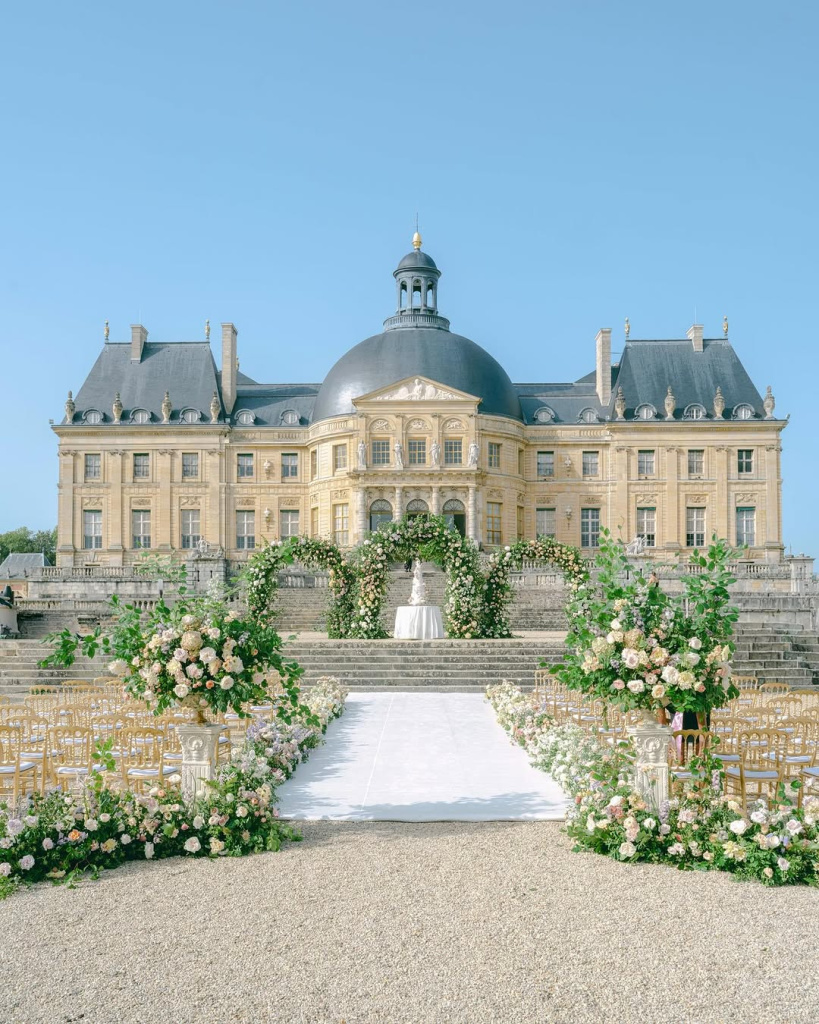
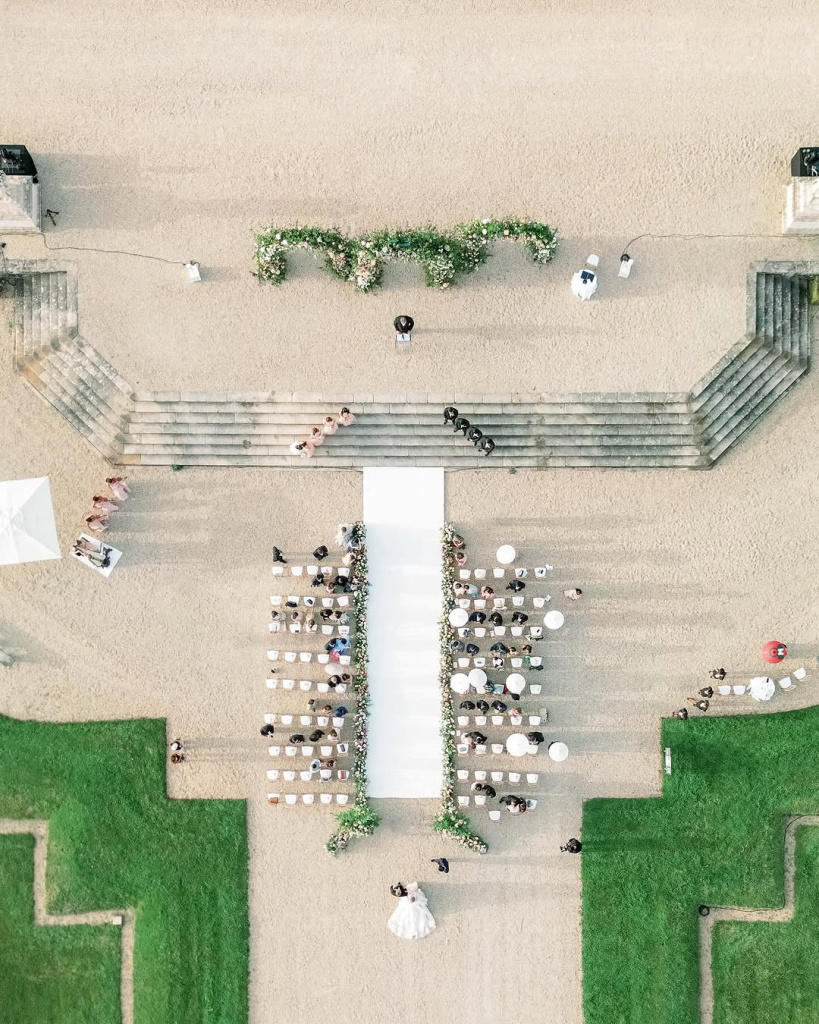
When planning a destination wedding in France, it's important to consider the seasonal weather variations, as they can significantly influence your wedding day and guest experience.
Spring (March to May)
Spring in France is known for its mild and pleasant weather, with the countryside blooming beautifully. However, the weather can be quite unpredictable, especially in early spring.
Temperature Range: Temperatures gradually warm from cool to comfortable, ranging from 50°F (10°C) to 68°F (20°C).
Considerations: While the scenery is stunning with flowers and greenery, it’s wise to prepare for sudden showers, particularly in April. Venues with indoor options or tents for outdoor events are recommended.
Summer (June to August)
Summer is the most popular season for weddings in France, especially in regions like Provence and the French Riviera, due to long sunny days and warm weather.
Temperature Range: Temperatures can range from 68°F (20°C) to 86°F (30°C), occasionally reaching higher in the south.
Considerations: Consider venues with air conditioning or ample shade for outdoor events, and ensure hydration options are readily available for guests, as the midday sun can be intense.
Autumn (September to November)
Autumn brings a magical palette of colors to the French landscape, particularly in regions like the Loire Valley and Burgundy. The weather remains mild early in the season but can become chilly as November approaches.
Temperature Range: Early autumn sees temperatures from 59°F (15°C) to 68°F (20°C), cooling down to 41°F (5°C) to 59°F (15°C) in late autumn.
Considerations: The weather can be unpredictable, with the potential for rain and wind, so having a backup plan for outdoor ceremonies is crucial. The natural autumn colors provide a stunning backdrop for photography.
Winter (December to February)
Winters are generally cold, and in some regions like the Alps, it’s the peak season for snow, offering a winter wonderland setting.
Temperature Range: It can be quite cold, with temperatures ranging from 32°F (0°C) to 46°F (8°C). In mountainous areas, temperatures will be lower, and snow is common.
Considerations: Winter weddings in France can be incredibly romantic, especially with a snow-covered backdrop. Venues with cozy indoor settings and adequate heating are essential. It’s also a great season for a budget-friendly wedding, as many venues offer off-peak rates.
Regional Considerations
- Northern France: Generally cooler and more prone to rain across all seasons.
- Southern France: Warmer, particularly along the Mediterranean coast, with mild winters and hot summers.
- Mountainous Regions: Cooler with potential for snow during late autumn through early spring.
Accommodation Options for You and Your Guests
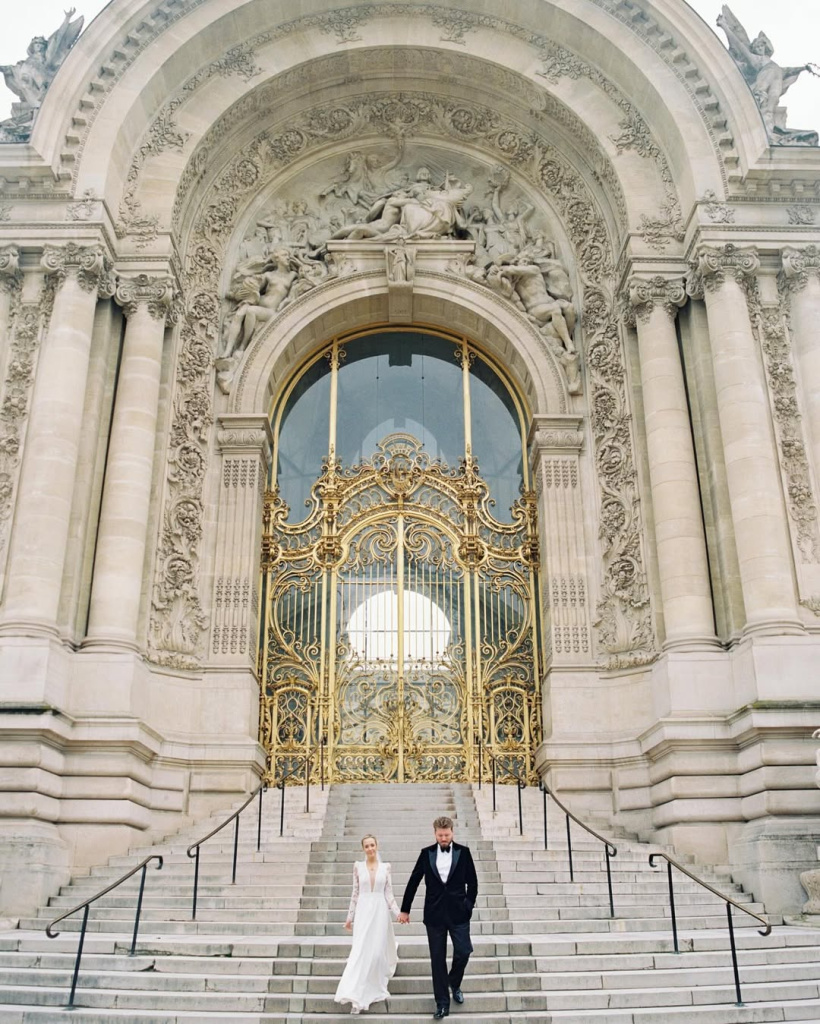
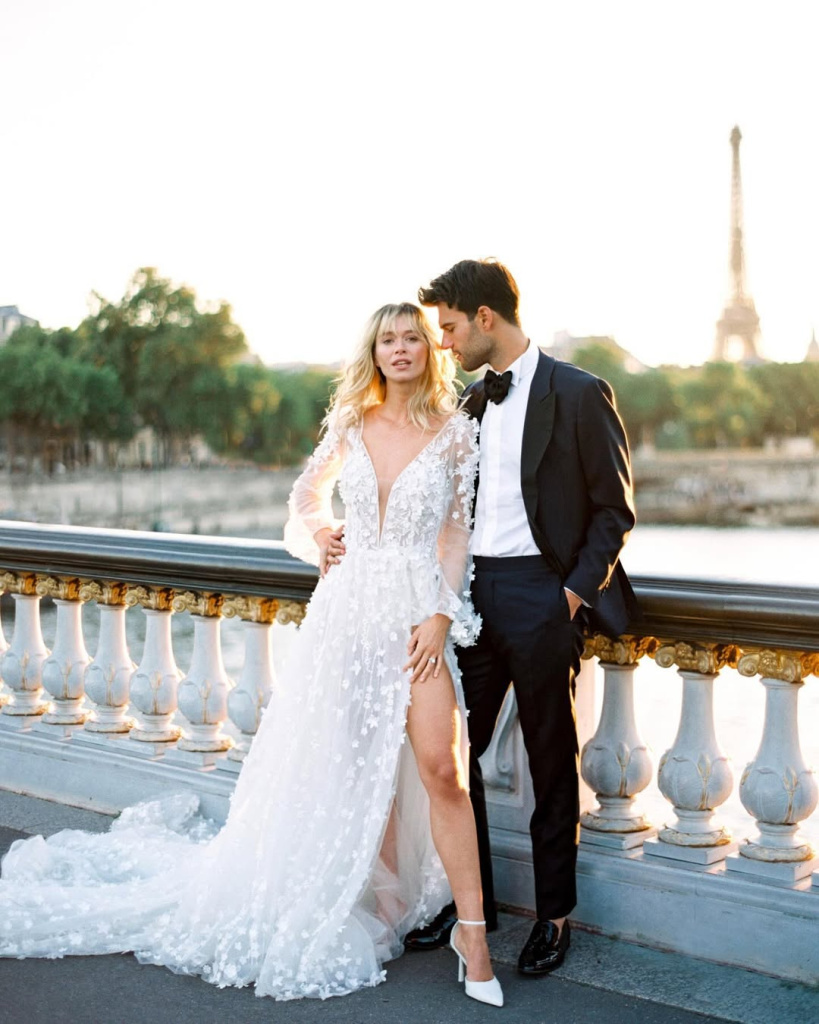
When thinking about how to plan your dream wedding - selecting the right accommodations is essential. This way you can ensure your guests have a comfortable stay during your destination wedding in France. Here are some accommodation options and considerations.
Hotels
- Range of Choices: France offers a wide range of hotels, from luxury 5-star hotels to boutique hotels and budget-friendly options.
- Group Rates: Negotiate group rates with hotels near your wedding venue. Many hotels offer discounts for booking multiple rooms.
- Amenities: Consider what amenities are important for your guests' comfort, such as free breakfast, Wi-Fi, or spa facilities.
Châteaux and Country Houses
- Exclusive Experience: Renting a château or a country house can provide a unique and intimate setting for your wedding party.
- All-in-one Venue: Many of these properties offer not just accommodation but also event spaces for your ceremony and reception.
- Privacy: Enjoy greater privacy and control over the wedding events, ideal for smaller, more intimate gatherings.
Bed and Breakfasts
- Charming Atmosphere: B&Bs offer a cozy, home-like atmosphere, often with personalized service.
- Local Experience: Your guests can enjoy a more authentic local experience, often in picturesque settings.
- Cost-Effective: They can be more budget-friendly compared to hotels and often include homemade breakfasts.
Vacation Rentals
- Flexibility: Renting vacation homes through services like Airbnb can offer flexibility for families or groups wanting to stay together.
- Variety of Options: Choose from apartments in city centers to countryside homes, depending on your wedding location.
- Home Comforts: Provides amenities like kitchens and laundry, ideal for longer stays.
Considerations for Choosing Accommodations
- Proximity to Venue: Ensure accommodations are not too far from the wedding venue to make transportation easier.
- Accessibility: Consider accessibility for elderly or disabled guests, ensuring everyone can enjoy the celebration without hassle.
- Stay Duration: Encourage guests to book for an extra day or two before or after the wedding for a mini-vacation, which can also help them acclimate and be rested for the wedding day.
Transportation Logistics for Your Wedding Party
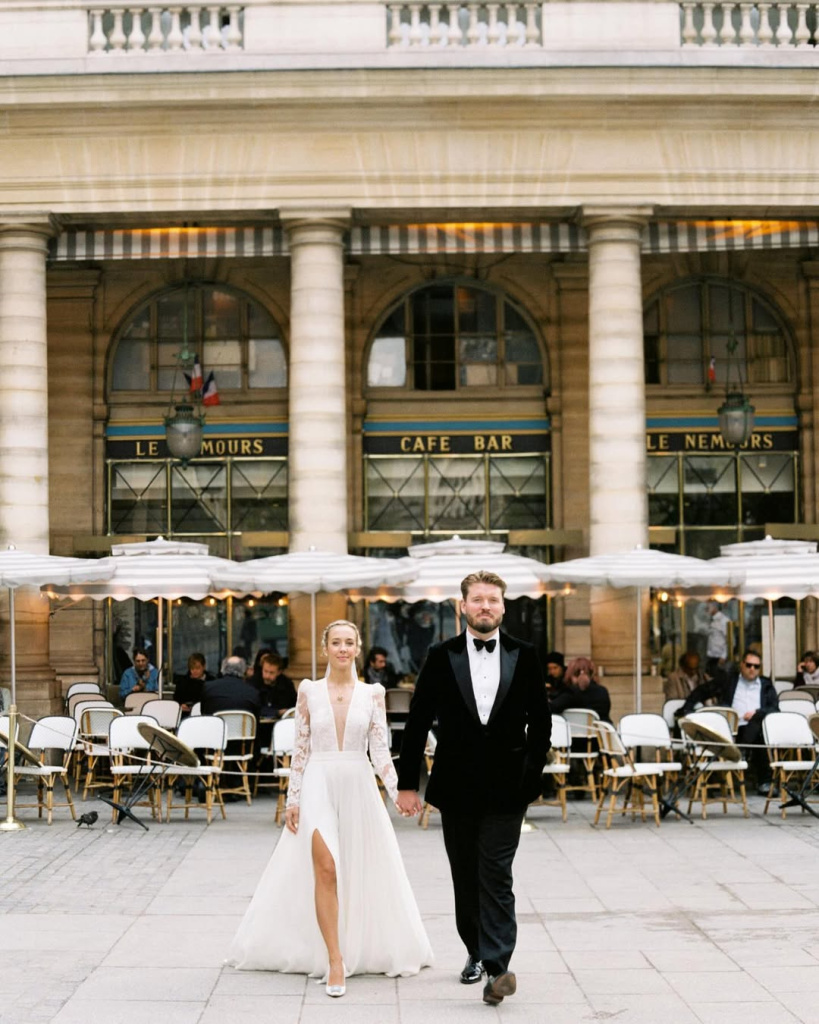
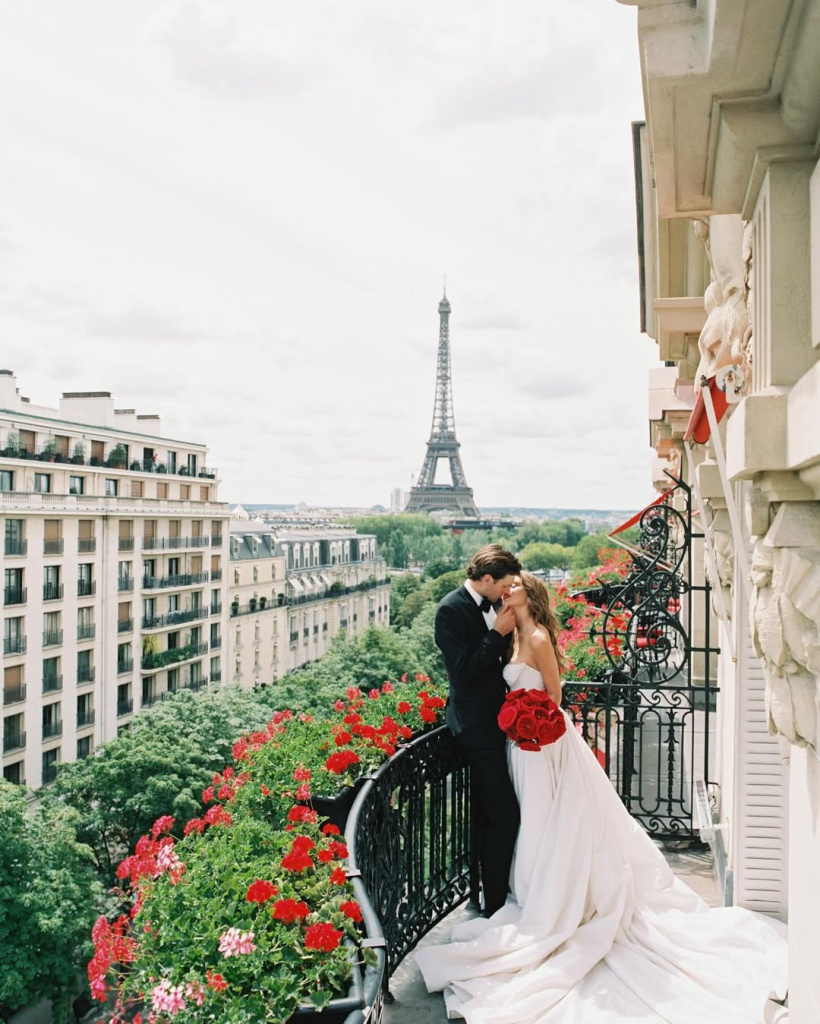
Efficient transportation logistics are vital to ensure that your wedding day goes smoothly. Here are key aspects to consider.
Coordinating Arrival Times
Coordinate arrival times and provide guests with detailed schedules. Consider setting up a shared document or app where guests can list their arrival times and dates.
Transportation to and from the Venue
- Shuttle Services: Arrange shuttle services to transport guests between their accommodations and the wedding venue. This is particularly important if the venue is in a remote location.
- Timings: Schedule shuttles to leave ample time before and after the event, ensuring guests do not feel rushed.
Day-Of Coordination
An on-site coordinator or dedicated point person can help manage transportation logistics, ensuring that vehicles arrive on time and guests know where to be. Provide clear signage and instructions for transport pick-up points, both at the accommodations and the wedding venue.
Special Arrangements
Consider arranging special transportation for the bridal party and close family, such as limousines or classic cars, to make them feel extra special. Provide guests with information on local transportation options, including taxi numbers, rental car options, and public transport details if they prefer to explore the area independently.

Creating Memorable Wedding Favors
Wedding favors are a lovely way to thank your guests for their presence and provide them with a memento of your special day. Here are some creative and memorable ideas for wedding favors that can delight your guests:
- Local Treats: Gift boxes filled with local specialties such as French macarons, chocolates, or a small bottle of regional wine or olive oil.
- Customized Keepsakes: Personalized items like engraved keychains, coasters, or glassware that commemorate the date and location of your wedding.
- Handmade Soaps or Candles: Beautifully scented soaps or candles made from local ingredients, perhaps lavender if you're in Provence.
- Miniature Artworks: Commission small, original artworks or prints from a local artist, reflecting the scenery or culture of the wedding location.
- DIY Kits: Create do-it-yourself kits for a fun activity, like a mini cocktail set with ingredients and a recipe for a signature drink from your wedding.
- Cultural Mementos: Items that reflect the local culture, such as a small piece of pottery or a fabric item characteristic of the area.
- Vintage Postcards: Postcards that feature the wedding locale, which can be vintage or specially designed for the occasion.
- Homemade Goodies: Jars of homemade jam, honey, or even a local spice mix that guests can use at home.
- Practical Items: Elegant fans, parasols, or custom sunglasses that guests can use during the outdoor ceremony and take home afterwards.
Planning Pre-Wedding and Post-Wedding Activities in France
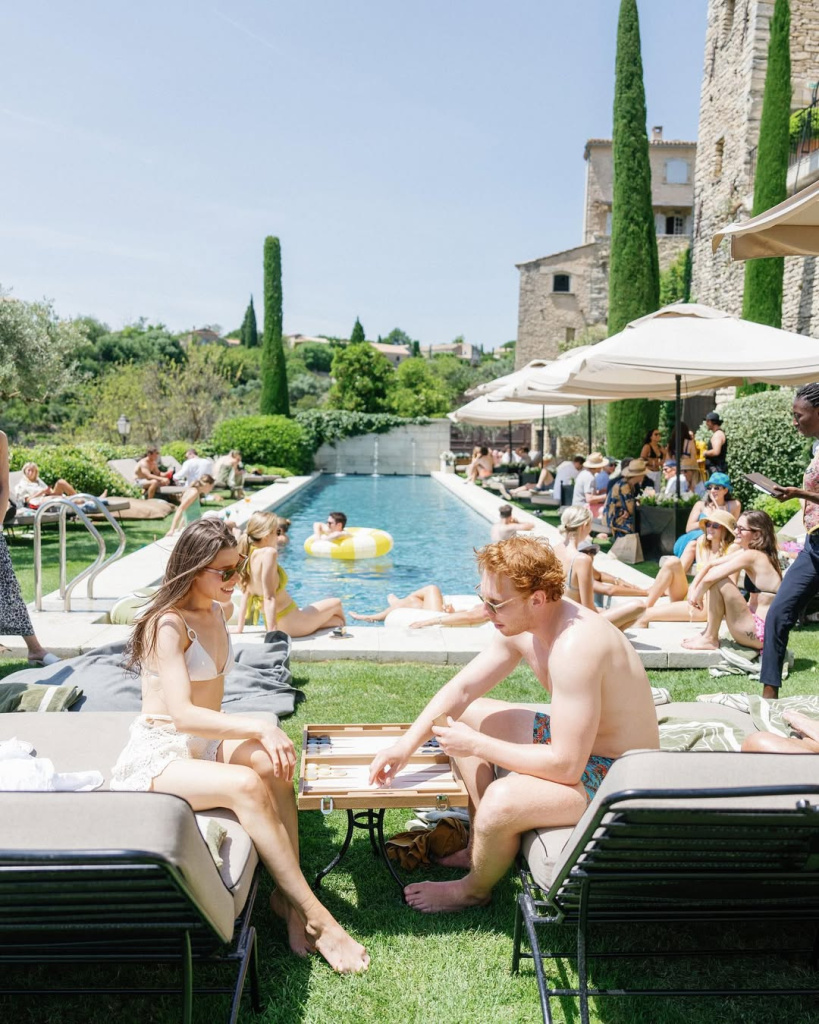
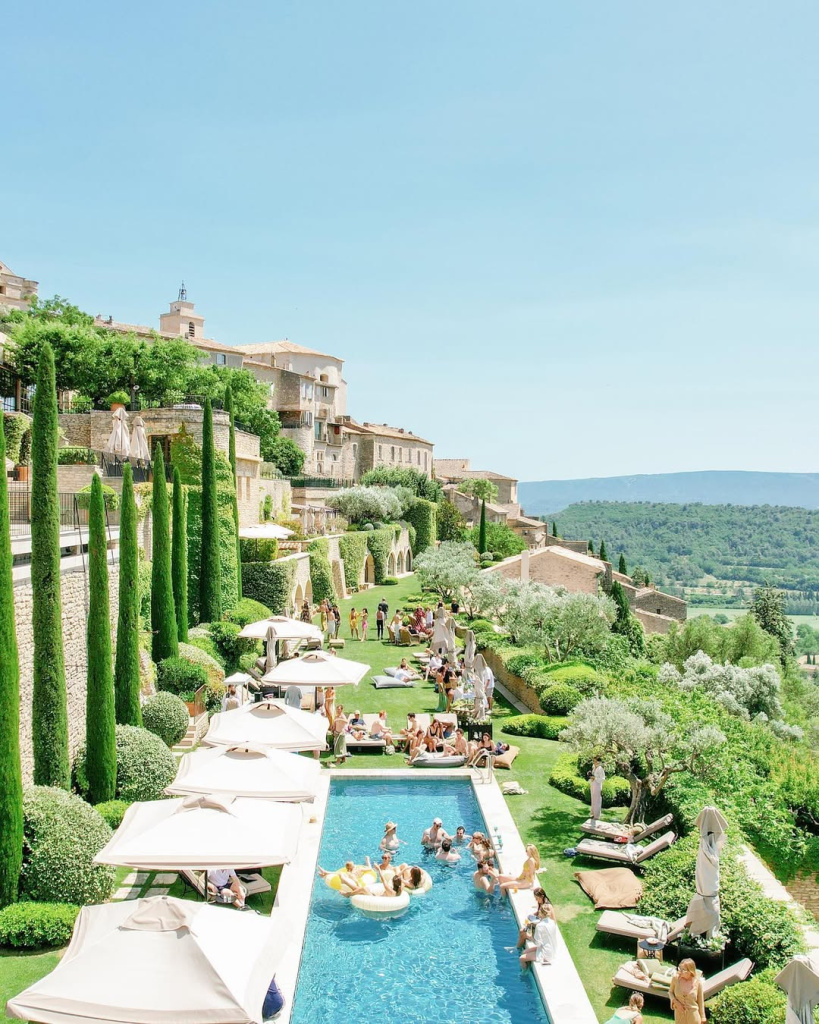
Offering a range of pre-wedding and post-wedding activities can greatly enhance the experience for your guests, turning your wedding celebration into a memorable vacation for everyone involved. Here’s a list of essential tips for planning your dream destination wedding activities in France.
Pre-Wedding Activities
- Welcome Dinner: Host a welcome dinner at a local restaurant or at the. wedding venue itself. This is a great way for guests to mingle and settle in before the big day.
- Wine Tasting Tour: Organize a wine tasting tour in a nearby vineyard. Regions like Bordeaux, Burgundy, or the Loire Valley are perfect for such activities, offering a taste of France's world-renowned wines.
- Cooking Classes: Arrange for a cooking class where guests can learn how to make traditional French dishes. This can be a fun and interactive way to immerse your guests in French culture.
- Guided Tours: Provide guided tours of the local town or city. Whether it’s the historic landmarks of Paris, the lavender fields of Provence, or the beaches of the French Riviera, a local guide can offer insights and stories that enrich the experience.
- Market Visits: Organize a visit to a local market. French markets are vibrant and colorful, offering a variety of fresh foods, flowers, and local crafts.
- Spa Day: Set up a relaxing spa day for your guests. Many regions in France are home to luxurious spas that provide a range of services, perfect for unwinding before the wedding.
Post-Wedding Activities
- Brunch: Host a post-wedding brunch the next morning. This gives everyone a chance to recap the festivities of the night before and say their goodbyes in a relaxed setting.
- Group Excursions: Plan group excursions to nearby attractions. For instance, if you’re in Paris, a group visit to the Louvre or a boat cruise along the Seine can be unforgettable.
- Hiking Trips: For the more adventurous, organize a hiking trip through some of France’s scenic regions like the Alps or the Pyrenees.
- Beach Day: If you’re near the coast, a day at the beach can provide a relaxing and enjoyable way to wind down after the wedding festivities.
- Photography Tour: Organize a photography tour with a professional photographer who can capture beautiful moments of your guests enjoying the local scenery.
- Farewell Party: Consider a farewell party if many guests are staying longer. This could be something informal like a picnic in a park or a gathering at a local café.
By planning thoughtful pre-wedding and post-wedding activities, you not only enhance the overall wedding experience but also give your guests the opportunity to create lasting memories of their time in France.
How to Plan a Dreamy Destination Wedding: Navigating Language Barriers
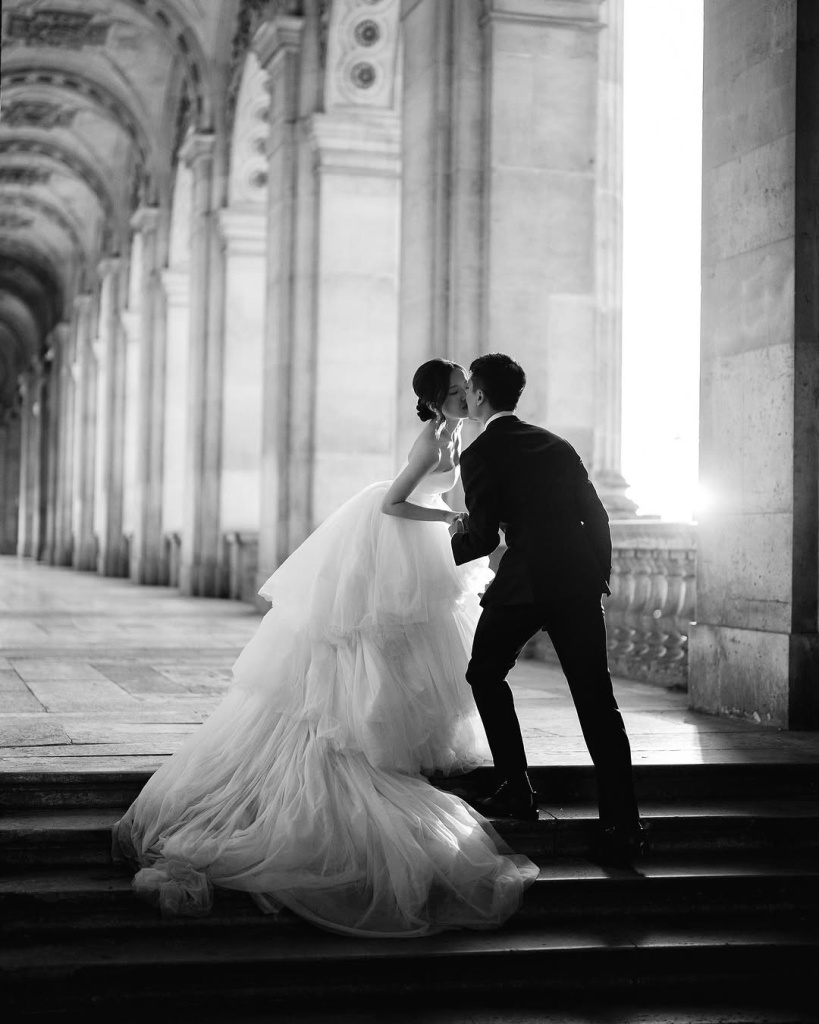
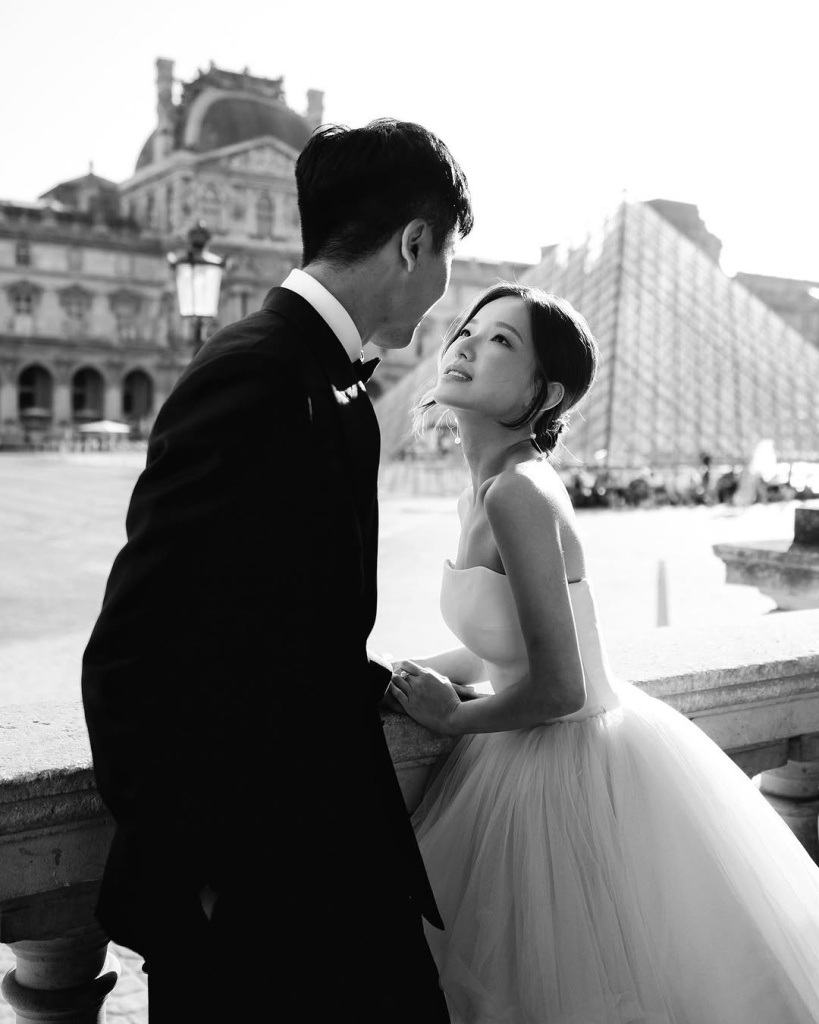
Planning a destination wedding in a country where you don’t speak the language fluently can present some unique challenges. Here are strategies to effectively navigate language barriers during your wedding planning process in France.
- Hire a Bilingual Wedding Planner: A local wedding planner who is fluent in both your language and French can be invaluable. They can serve as a bridge between you and local vendors, ensuring that your ideas and expectations are clearly communicated and understood.
- Use Translation Services: For important documents or communications, professional translation services can ensure accuracy. This is crucial for contracts, menus, and legal documents.
- Prep Key Phrases: Learning a few key phrases in French not only helps with basic communication but also shows respect for the local culture. Phrases for greetings, gratitude, and wedding-specific terms can be particularly useful.
- Provide Multilingual Support for Guests: Consider providing your guests with wedding itineraries, menus, and ceremony guides in both French and your native language. This can help ensure that all your guests feel included and informed.
- Cultural Preparation: Understanding the basics of French etiquette and common practices can also help mitigate misunderstandings that might arise not just from language but also from cultural differences.
Health and Safety Considerations
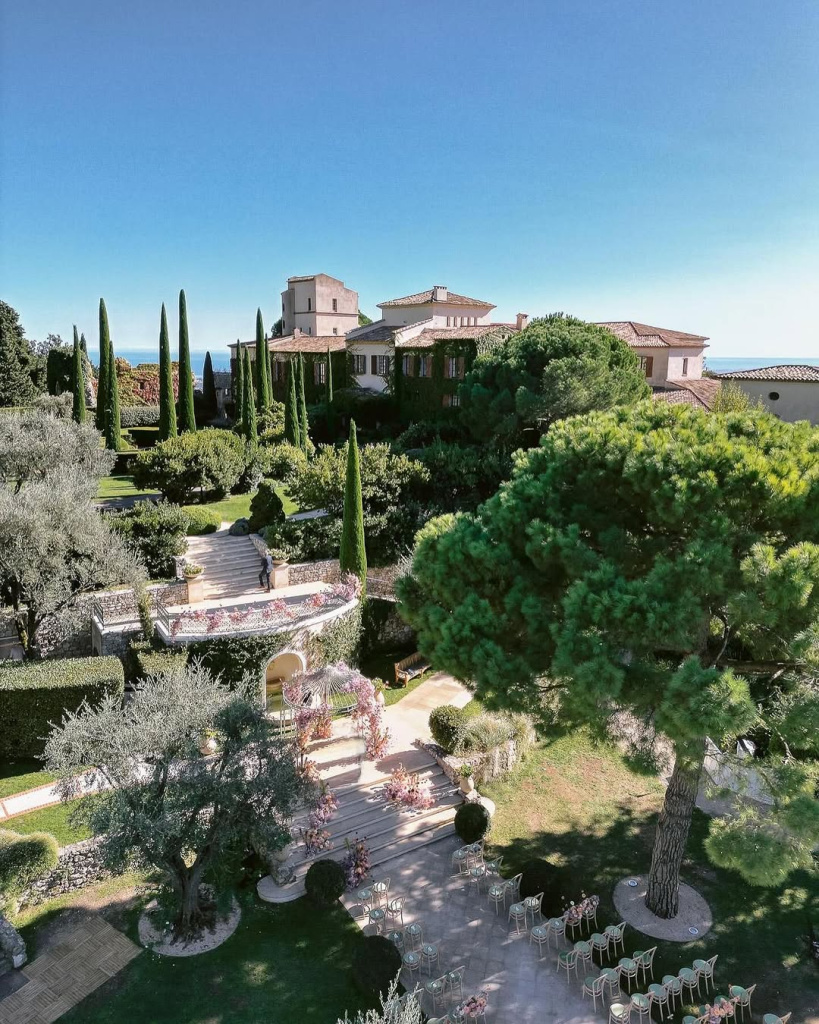
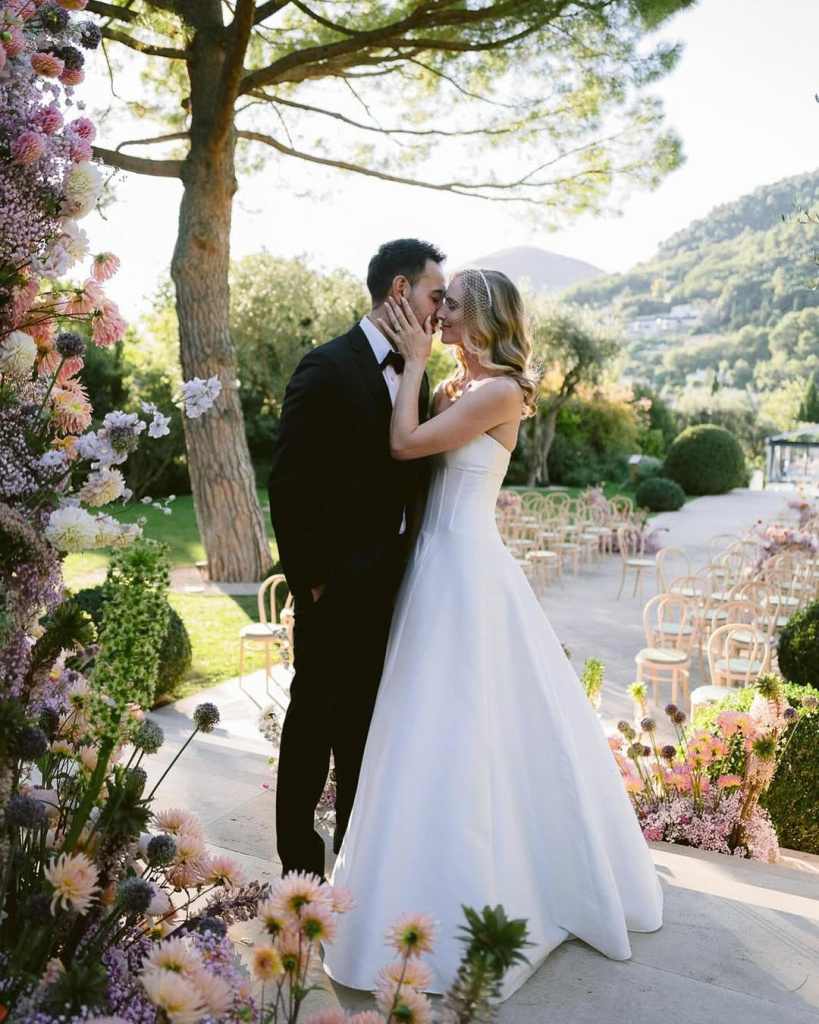
Ensuring the health and safety of everyone involved in your destination wedding is paramount. In this part of your destination wedding guide, we explore how crucial it is to address health and safety considerations effectively. Here’s how you can ensure a safe and enjoyable experience for all your guests.
- Understand Local Healthcare: Familiarize yourself with the healthcare services near your wedding venue. Know where the nearest hospital or pharmacy is located and how to access emergency services in France.
- Food Allergies and Dietary Restrictions: Clearly communicate any food allergies or dietary restrictions of your guests to your caterer. Consider having detailed descriptions of ingredients in menu items to prevent any allergic reactions.
- Wedding Insurance: Consider purchasing wedding insurance that covers health and safety liabilities. This can provide peace of mind by covering costs in case of illness, accidents, or unforeseen cancellations.
- Emergency Contacts: Compile a list of emergency contacts, including local doctors who speak your language, and distribute it to your guests and wedding party.
- Travel Health Advice: Advise your guests about any necessary vaccinations or health precautions they should take before traveling to France. This may include updates on any ongoing health concerns in the region.
- Safety Briefing: Brief your guests on safety practices, especially if your wedding involves activities like boating, hiking, or other potentially risky endeavors. Ensure that everyone is aware of how to stay safe while enjoying these activities.
Packing Essentials for a French Wedding
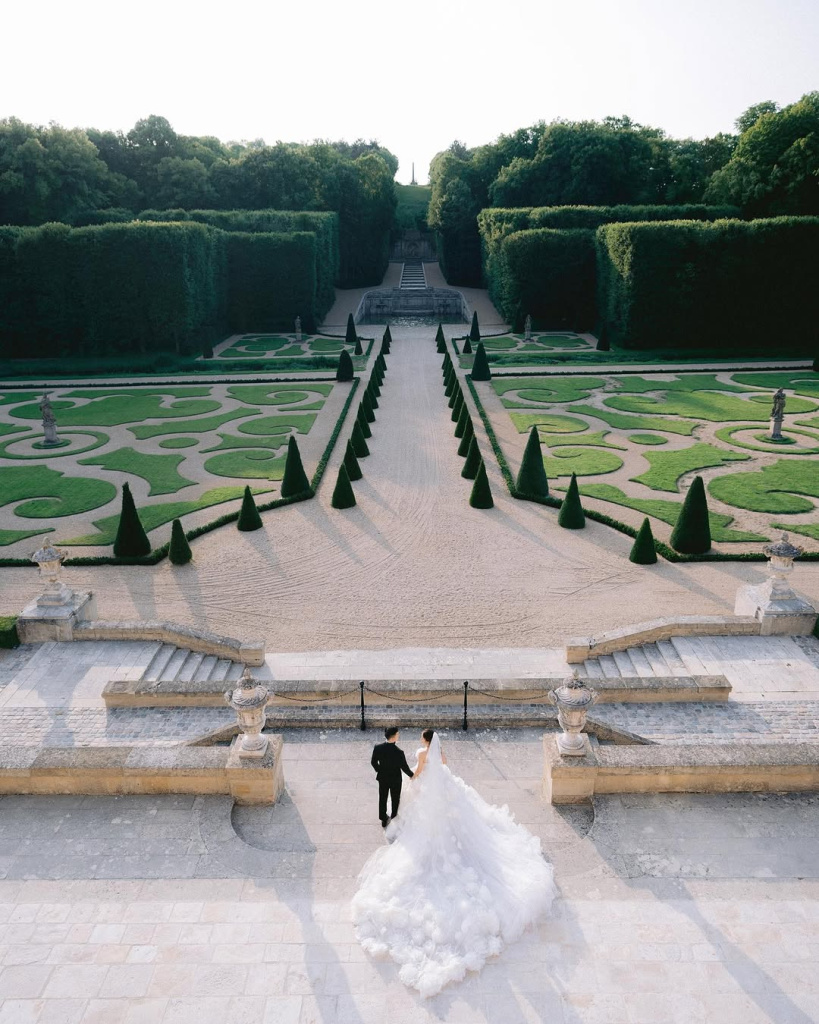
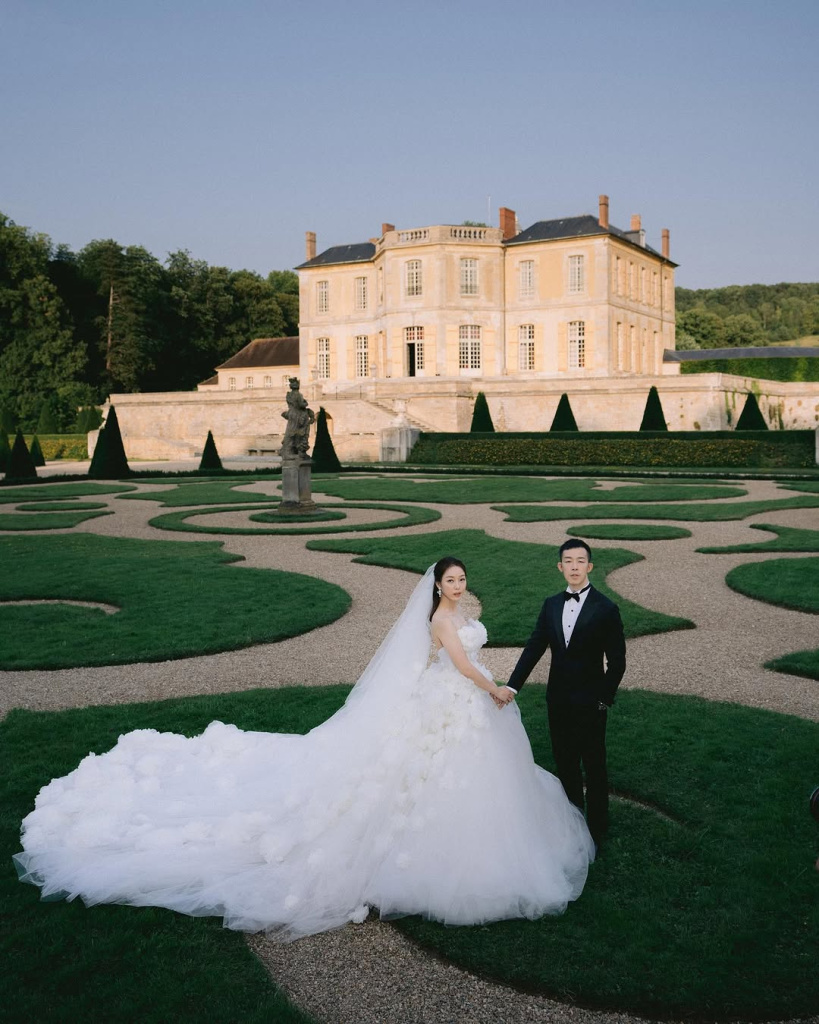
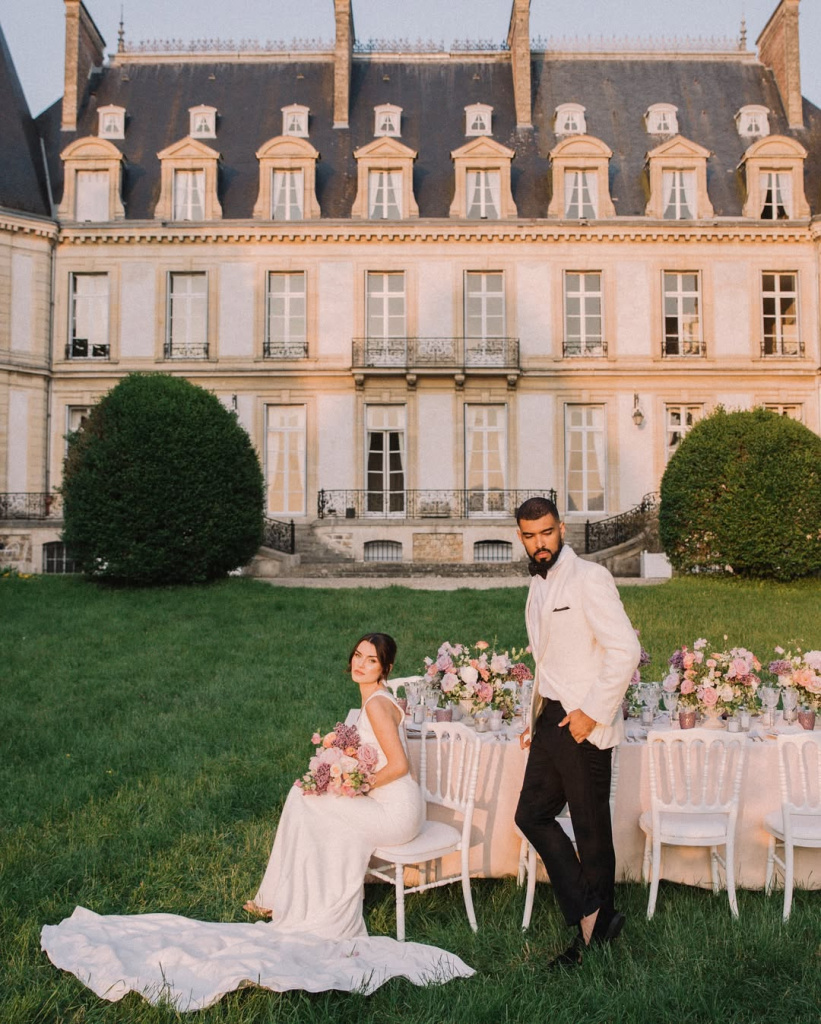
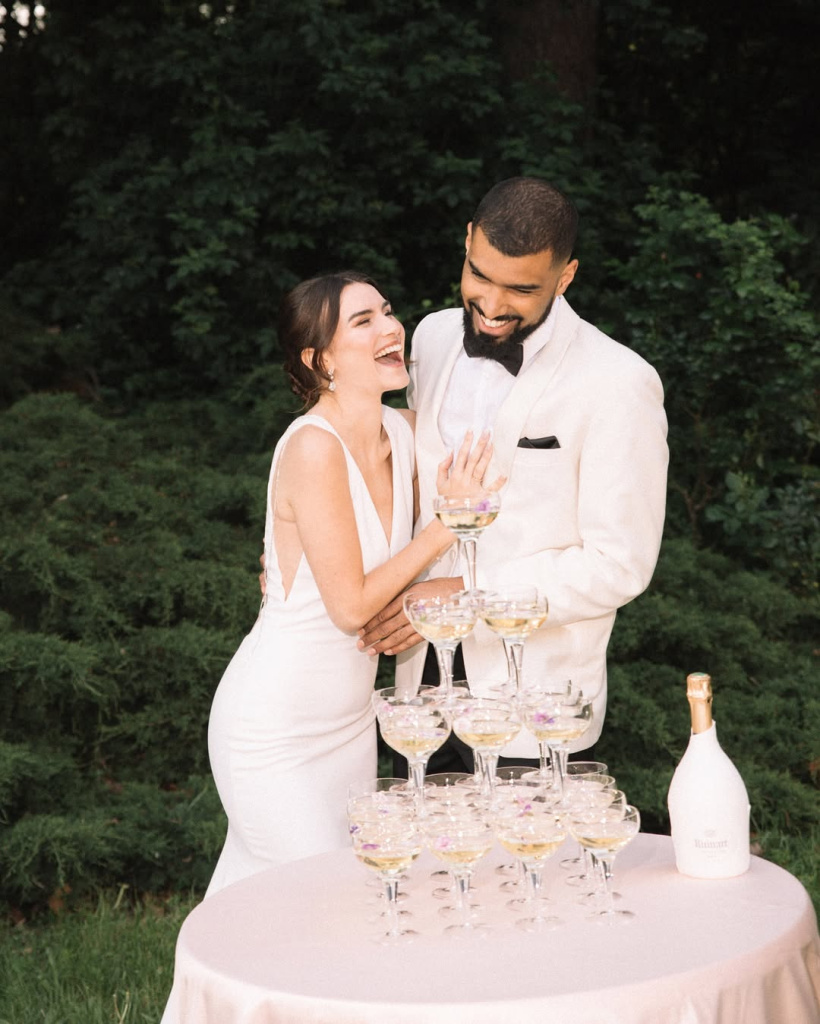
When preparing for a destination wedding in France, packing smartly is essential. This step is a vital component of the ultimate guide to planning a perfect wedding in France, ensuring that you and your guests have everything needed for a seamless and memorable celebration.
For the Bride and Groom
- Wedding Attire: Bring your wedding dress, suit, and any specific undergarments needed for the attire.
- Shoes: Include both the wedding shoes and comfortable shoes for dancing or walking.
- Accessories: Pack all necessary accessories like jewelry, cufflinks, ties, and hair accessories.
- Wedding Rings: Ensure the wedding rings are securely packed and kept in a safe place.
- Makeup and Hair Products: Bring your makeup kit and hairstyling products, especially if you plan to do them yourself or have specific products you prefer.
- Emergency Kit: Include a wedding day emergency kit with items like safety pins, sewing kit, stain remover, and double-sided tape.
For the Guests
- Formal Wear: Inform guests of the wedding dress code, so they bring appropriate attire.
- Comfortable Attire: Pack comfortable clothes for pre-wedding and post-wedding activities.
- Footwear: Advise bringing both formal and casual footwear, suitable for different venues and activities.
- Weather-Appropriate Gear: Depending on the season, suggest packing items like a light jacket, umbrella, or sunscreen.
- Health Essentials: Include personal medications, travel-sized toiletries, and possibly a basic first aid kit.
General Travel Essentials
- Travel Documents: Ensure passports, visas (if needed), tickets, and itineraries are all up to date and securely packed.
- Electronics: Pack cameras, phones, chargers, and adaptors for European outlets.
- Cash and Cards: Bring a combination of cash and cards, informed about international transaction fees from your bank.
- Travel Insurance Information: Keep a copy of your travel insurance details handy.
Wedding-Specific Documents
- Marriage License: Bring all necessary documents required for your wedding ceremony.
- Vendor Contacts: Keep a list of all vendor contacts, including phone numbers and addresses.
- Guest List and Seating Chart: Have copies of the guest list and seating arrangements accessible.
- Wedding Planner/Coordinator Information: Maintain contact information for your wedding planner or coordinator for any last-minute confirmations.
Making the Most of French Honeymoon Destinations
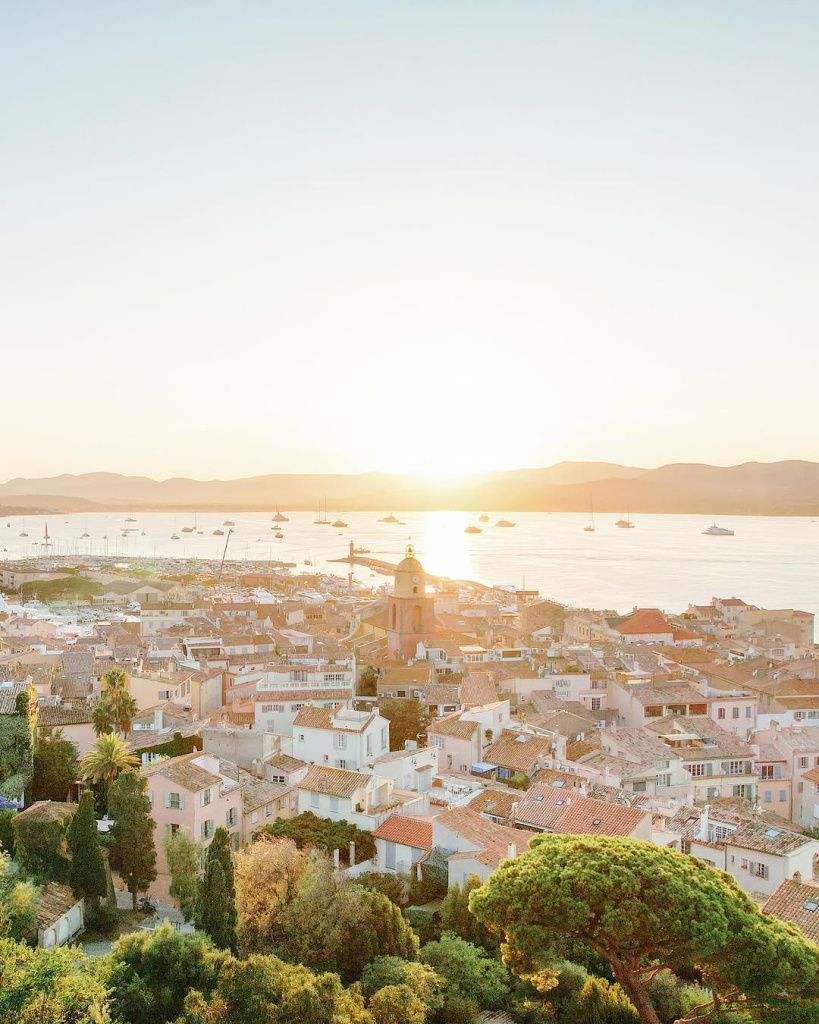
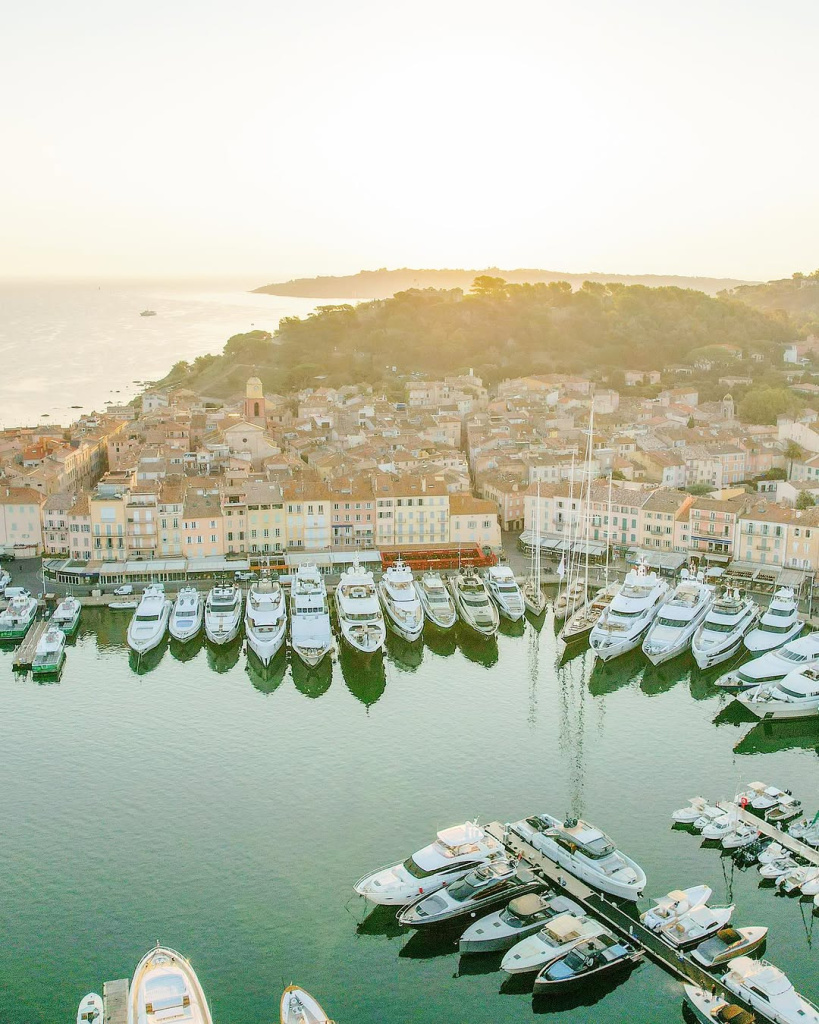
Welcome to the final part of our complete guide on planning a wedding in France! This country offers a myriad of enchanting locations perfect for a honeymoon, each rich in culture, scenery, and romance. Whether you're sipping wine in Bordeaux, lounging on the beaches of the French Riviera, or exploring the historic streets of Paris, making the most of these destinations can turn your honeymoon into an unforgettable experience.
Culinary Adventures
- Wine Tours: Participate in wine tours and tastings in some of France’s most famous wine regions like Bordeaux, Burgundy, or Champagne. These tours not only offer insights into wine-making but also provide a taste of the local terroir.
- Cooking Classes: Take cooking classes together to learn how to prepare authentic French dishes, which is not only a fun activity but also a great way to bring a piece of your honeymoon home with you.
- Local Markets: Visit local markets to sample regional specialties. It’s a flavorful way to immerse yourselves in French culture and cuisine.
Romantic Experiences
- Hot Air Balloon Rides: For a unique perspective, consider a hot air balloon ride over the Loire Valley or Provence. It’s a memorable way to see the stunning landscapes.
- Spa Days: Indulge in a relaxing spa day, especially in regions known for thermal baths like Aquitaine.
- Private Tours: Book private tours of museums, historical sites, or attractions to enjoy the experience at your own pace, away from crowds.
By embracing these elements, you can make the most of your honeymoon in France, creating a bespoke experience that combines adventure, romance, and relaxation. Whether it's through leisurely exploration, culinary delights, or simply soaking in the breathtaking views, France offers endless possibilities to celebrate your new life together.






